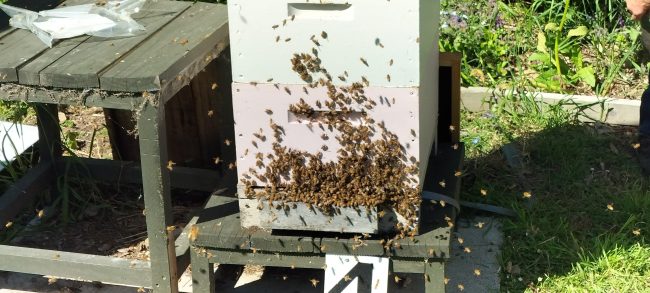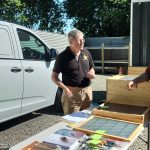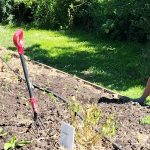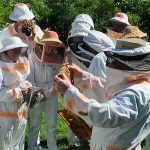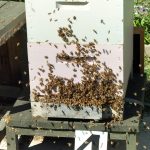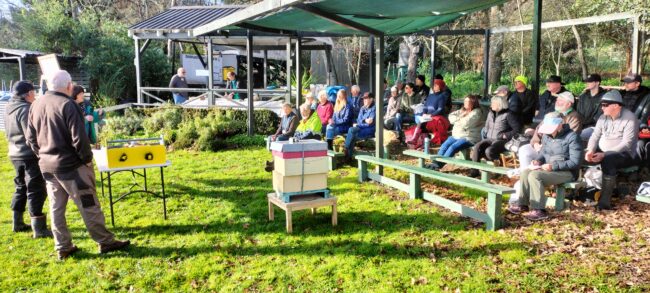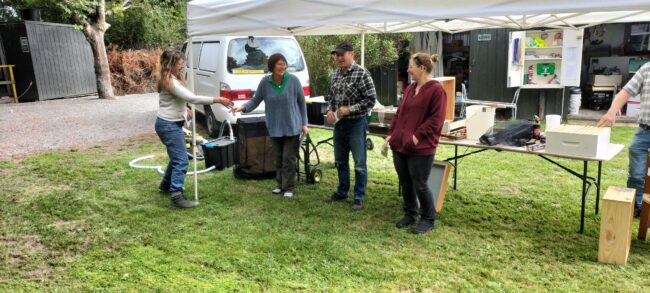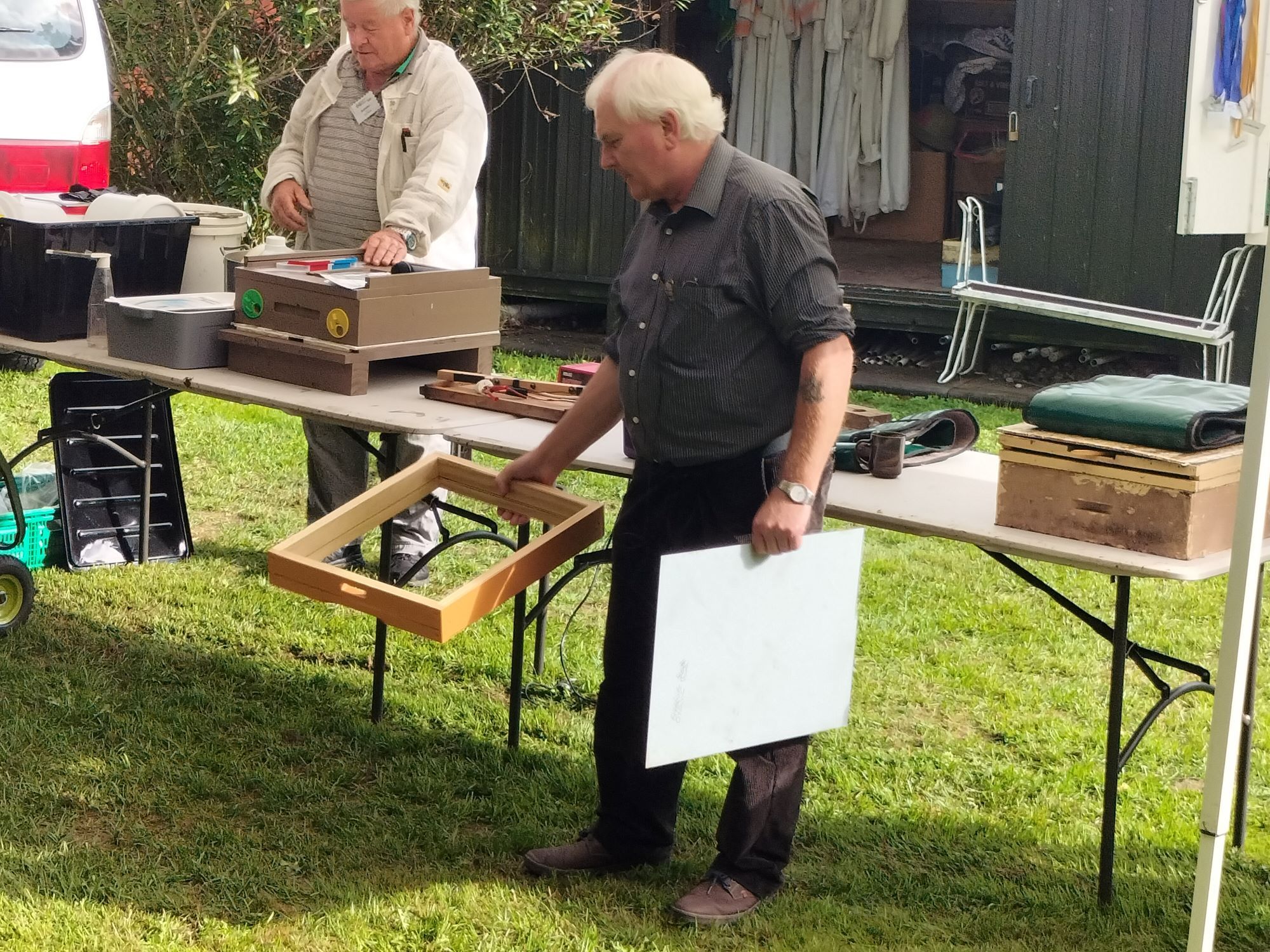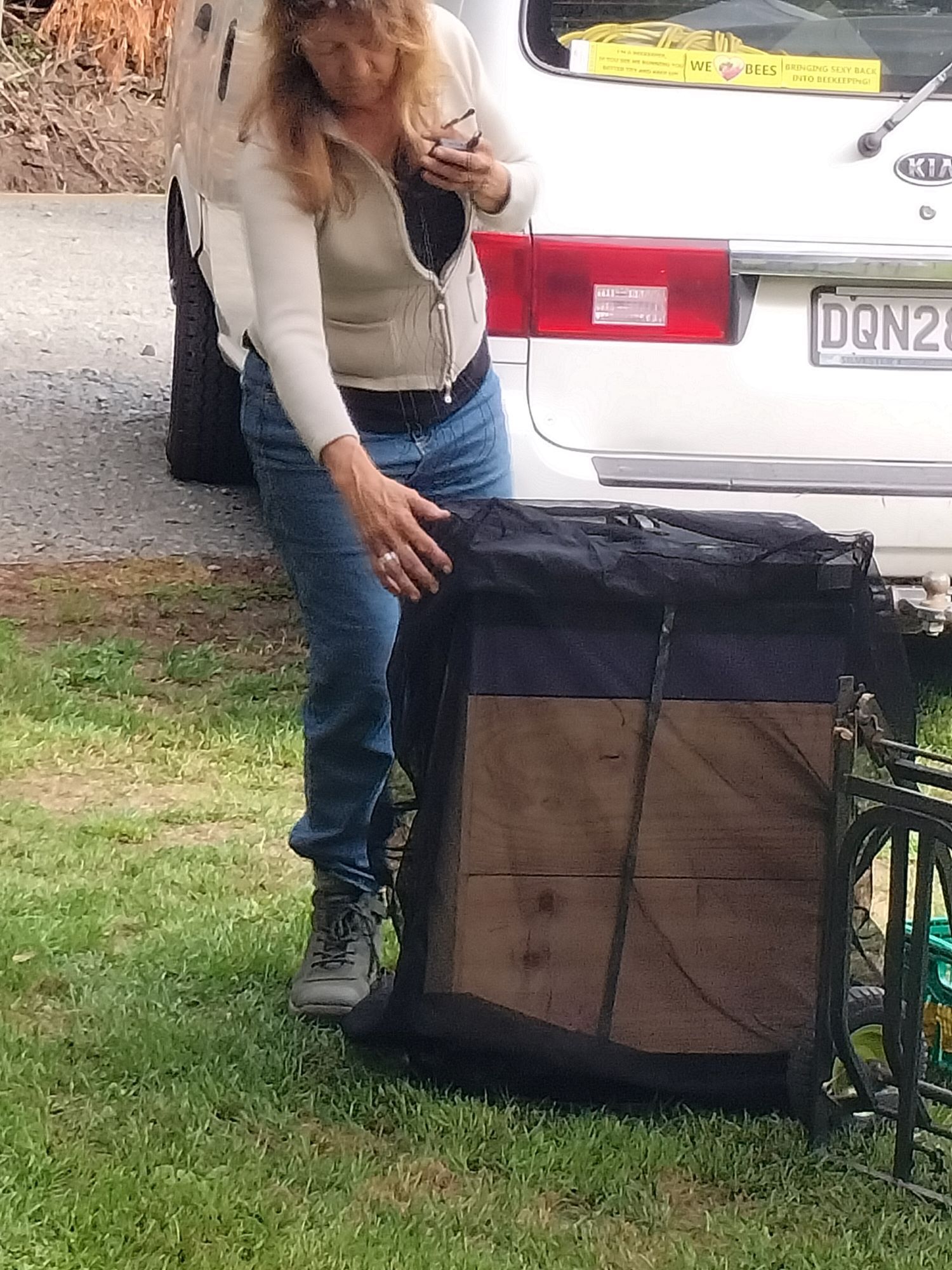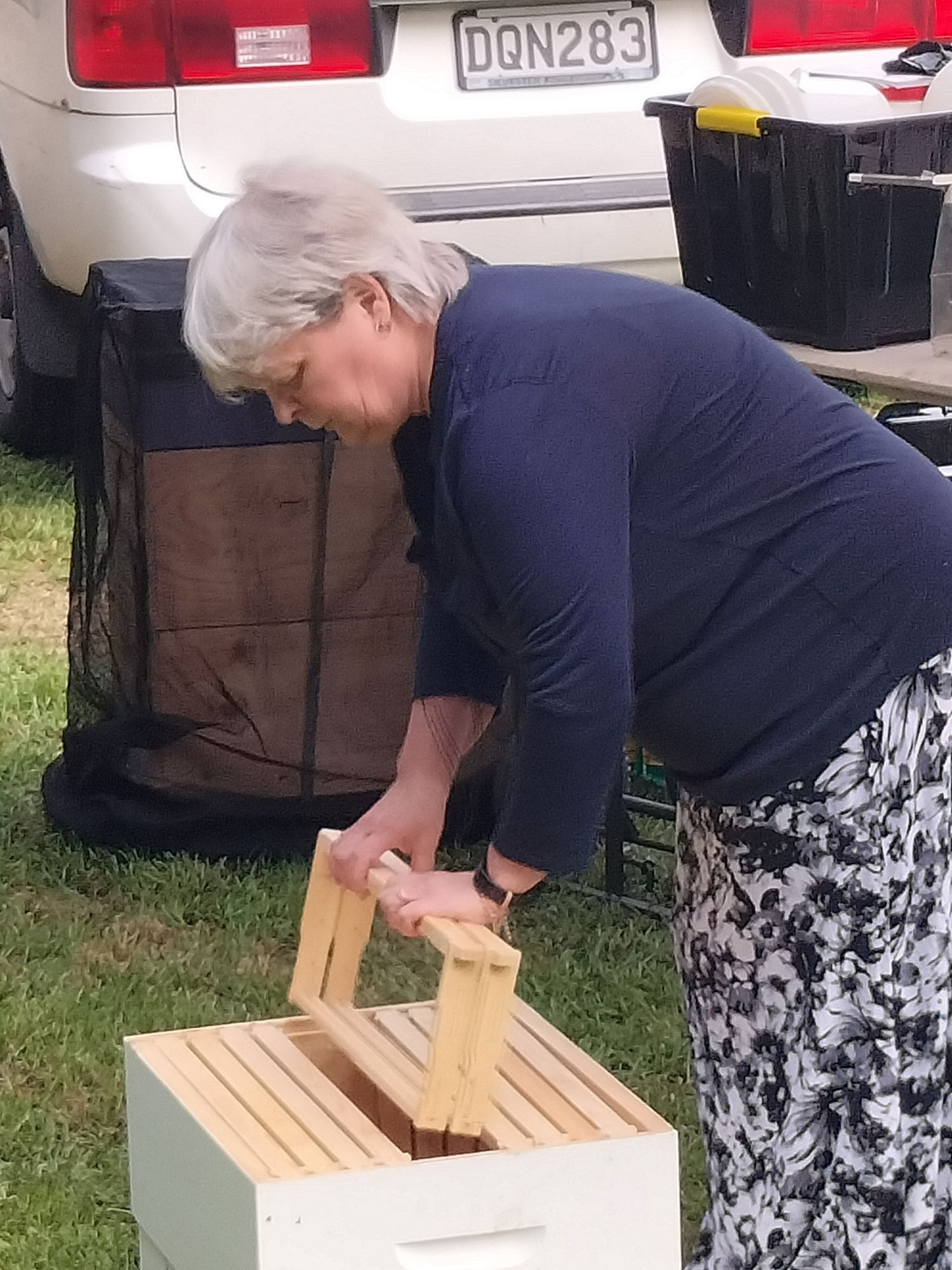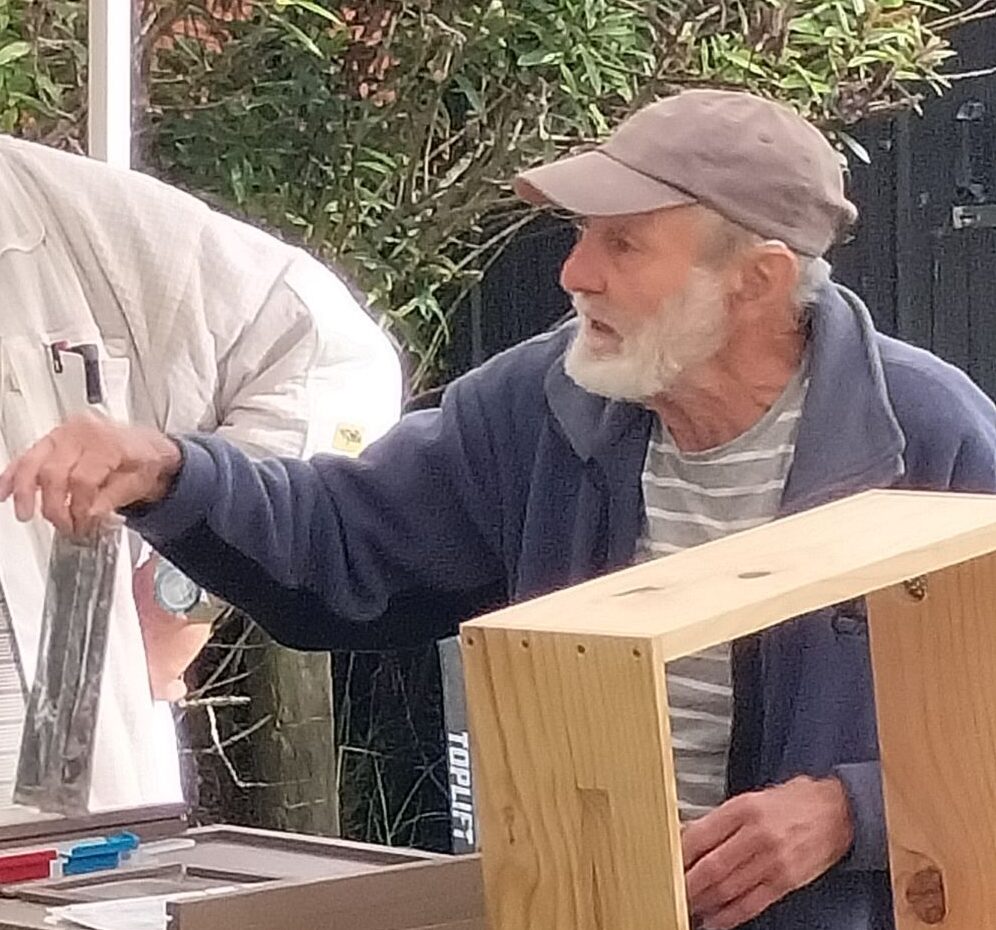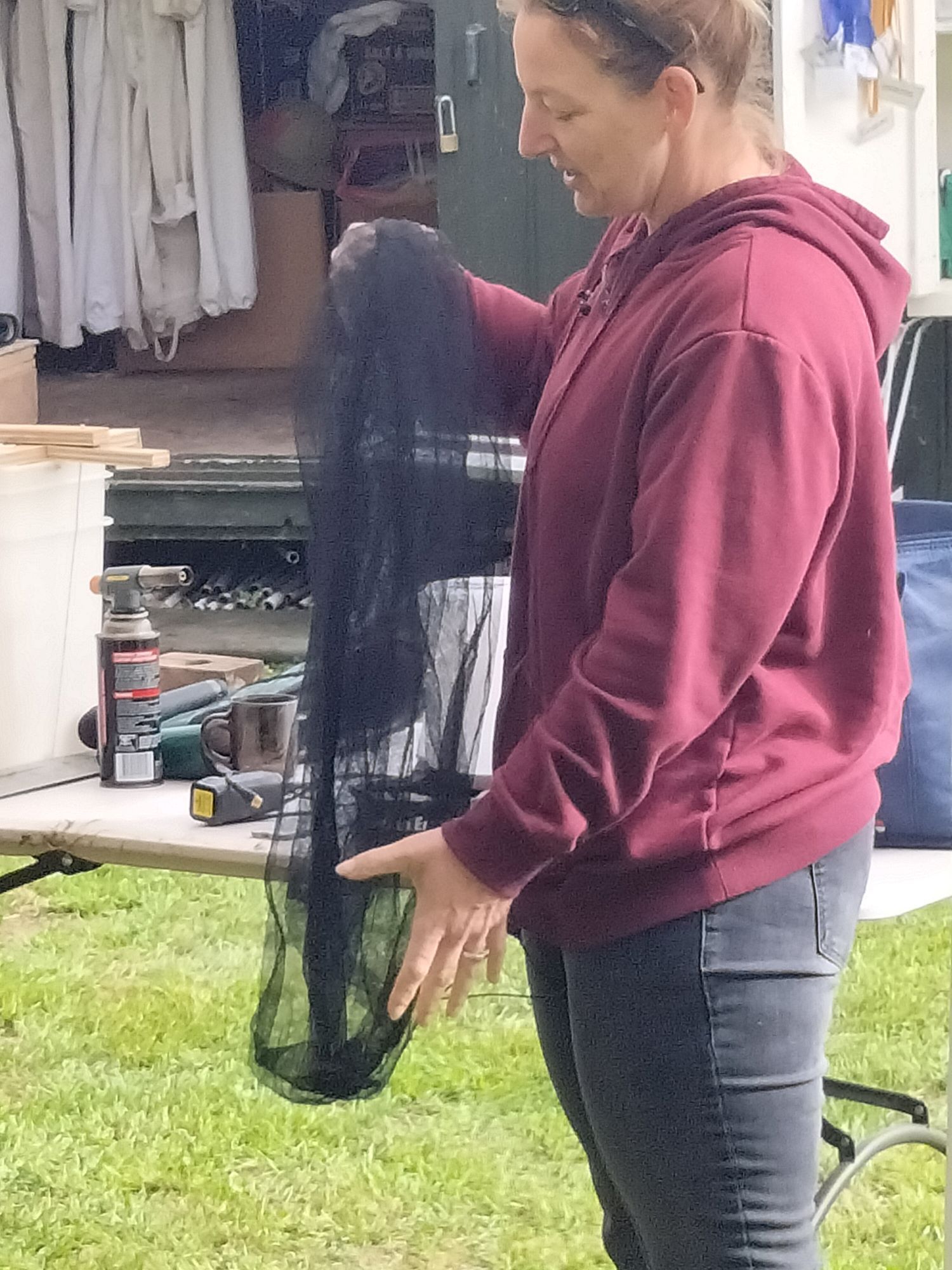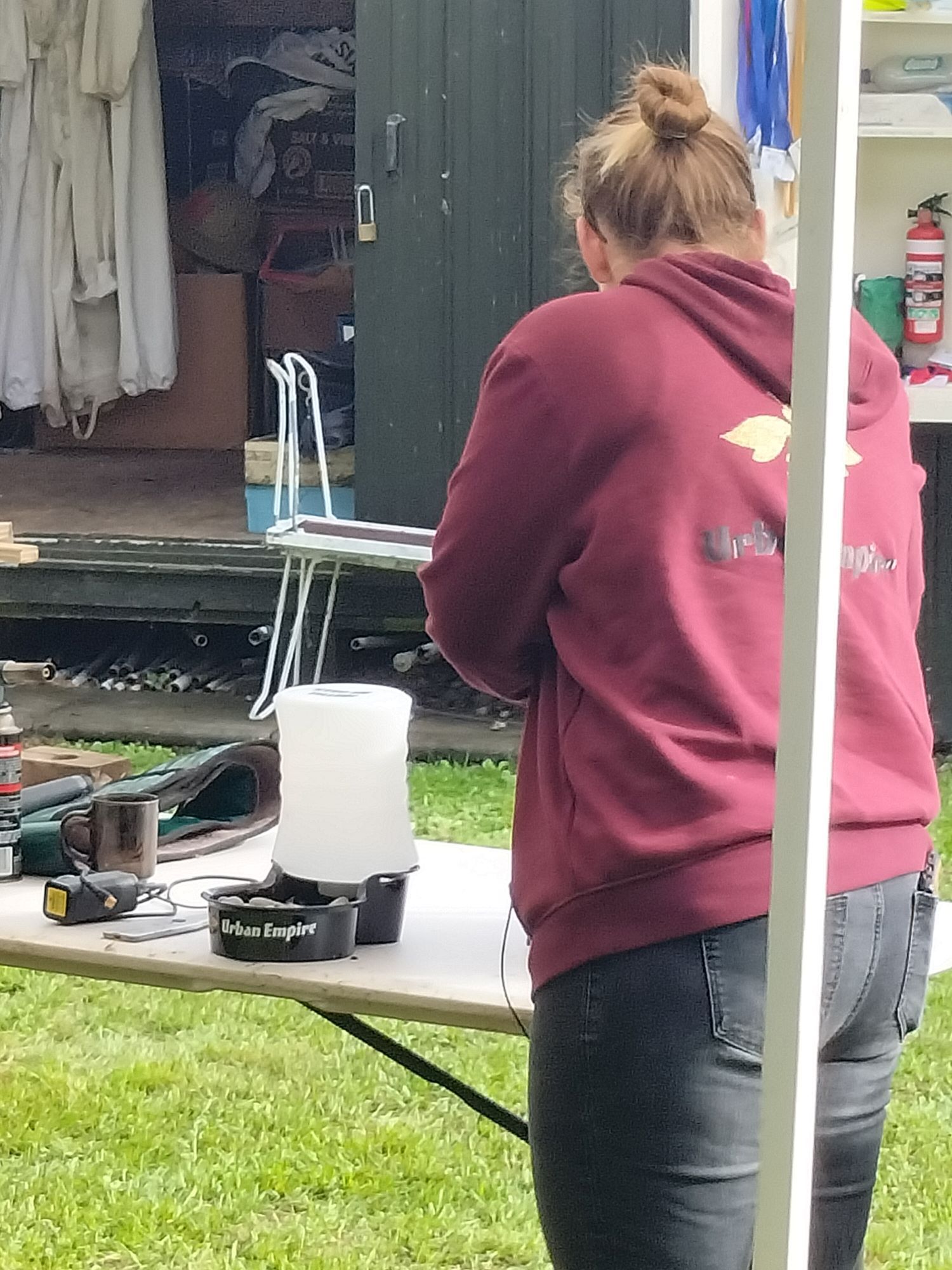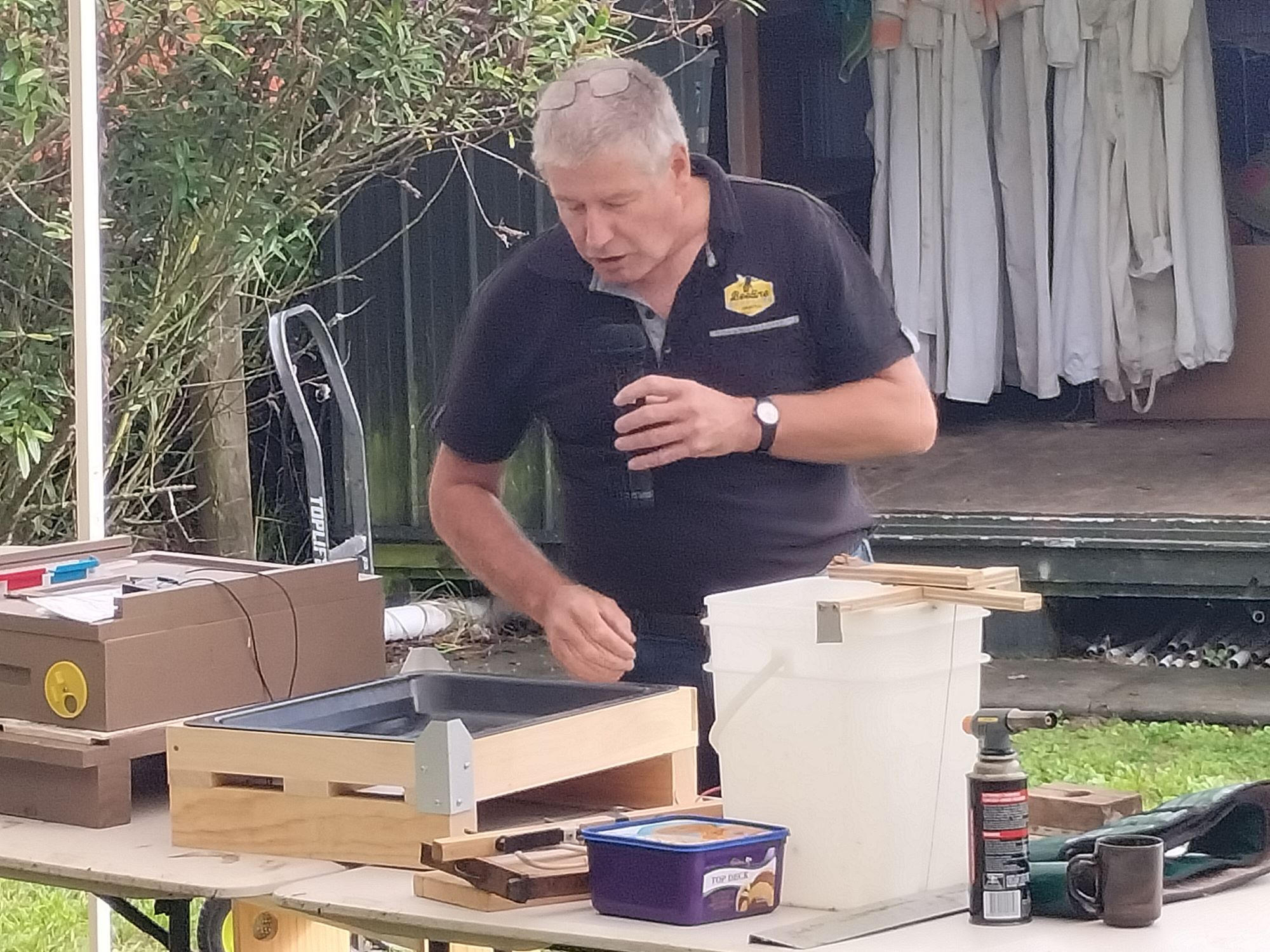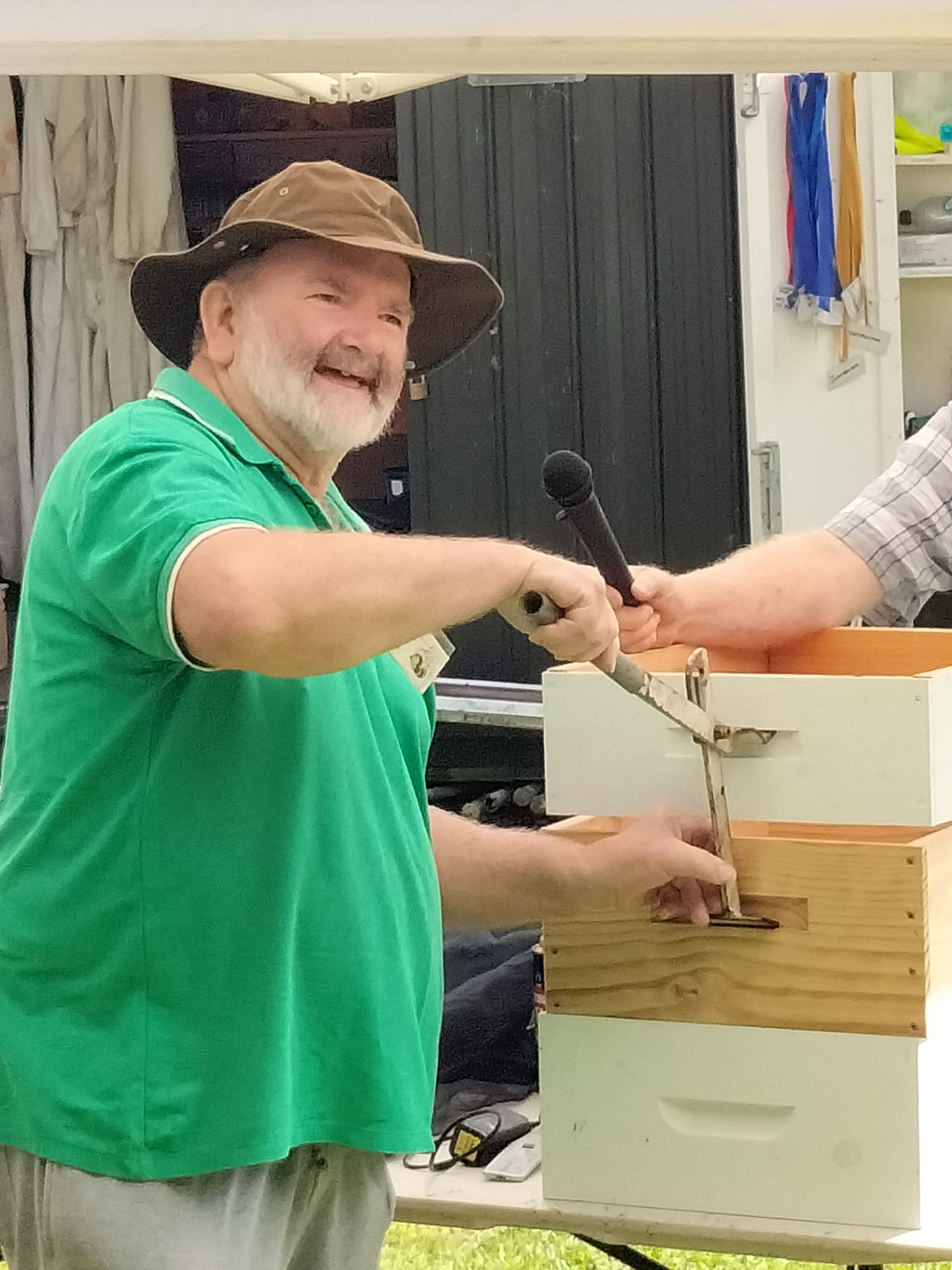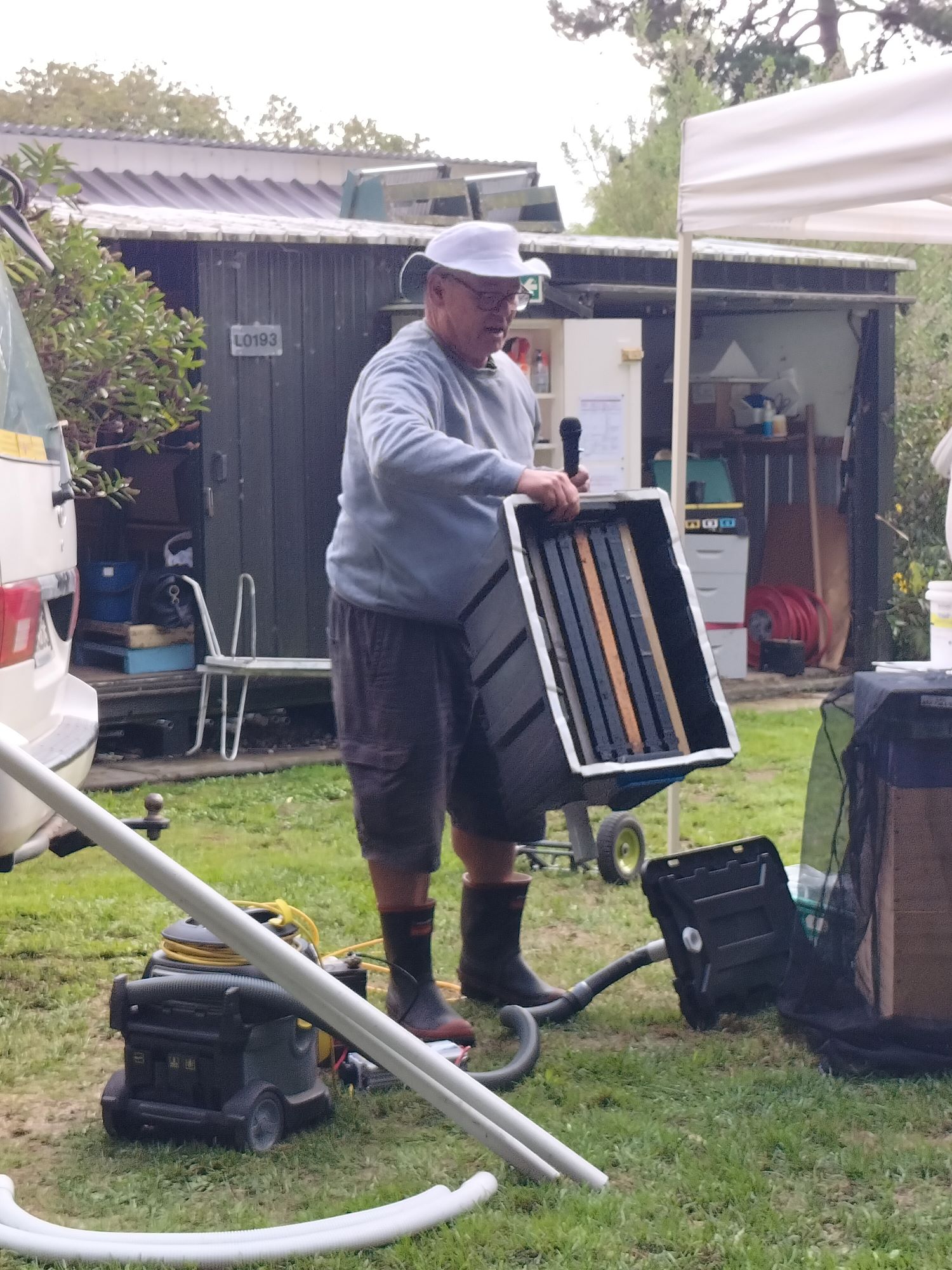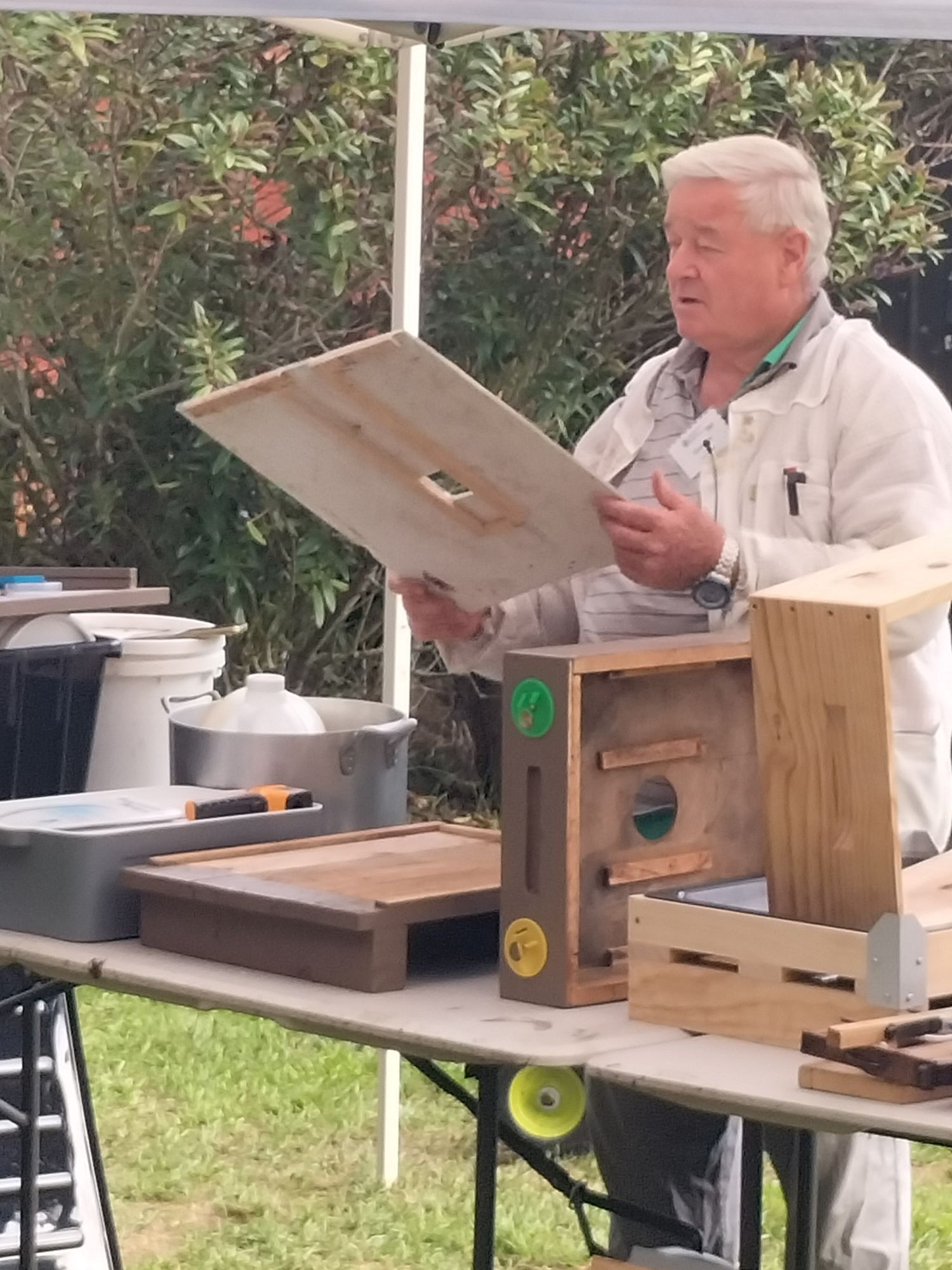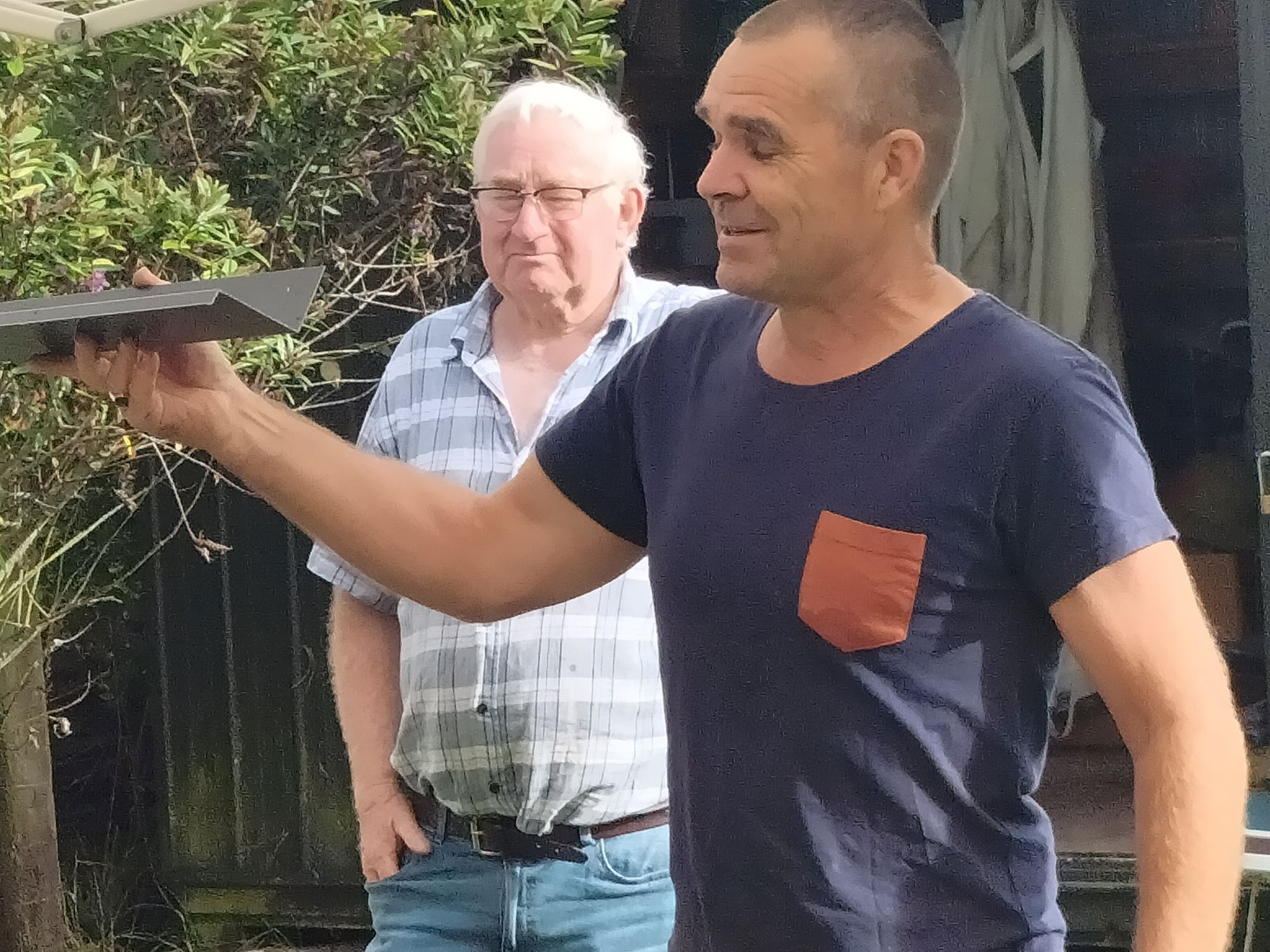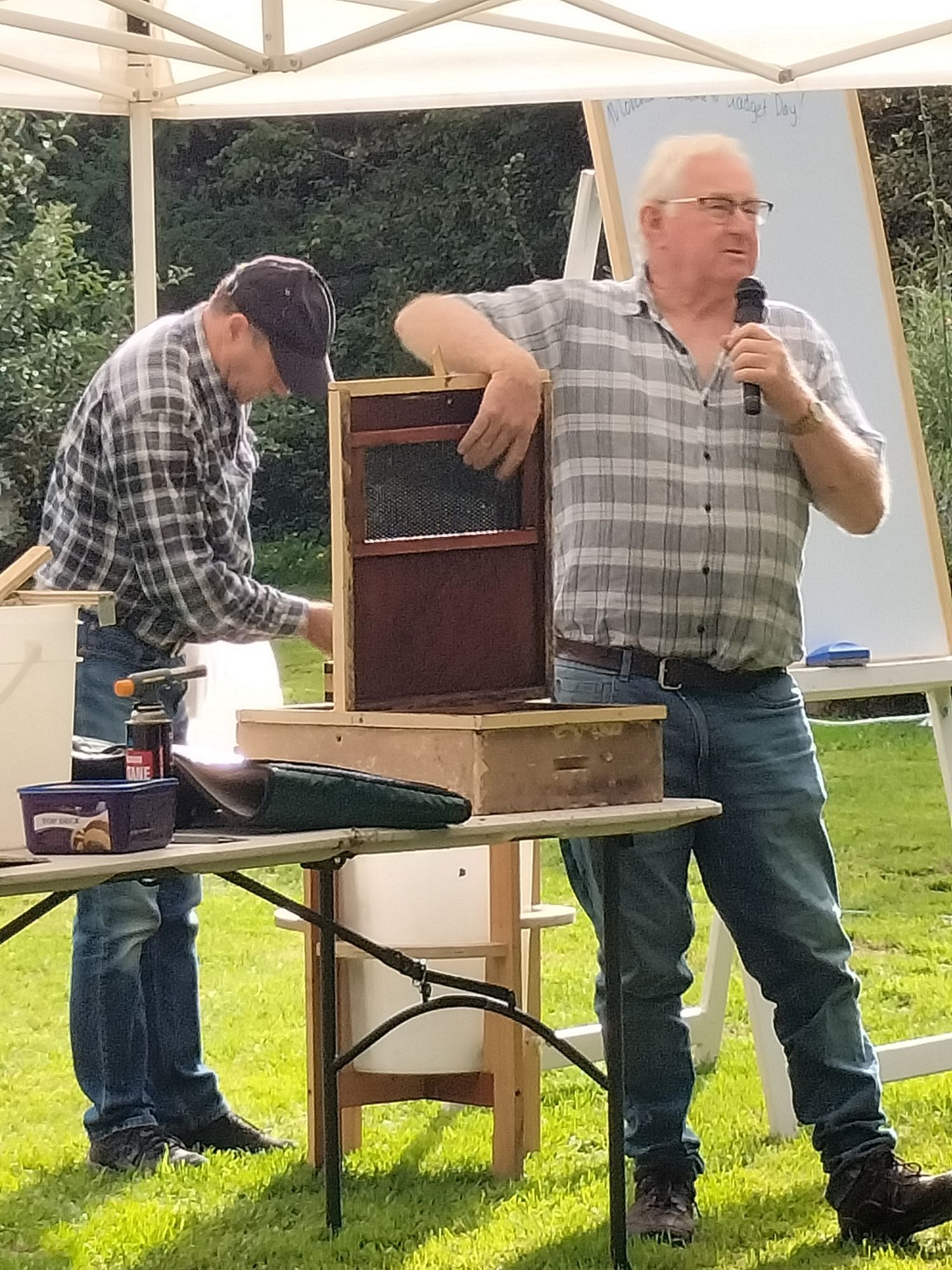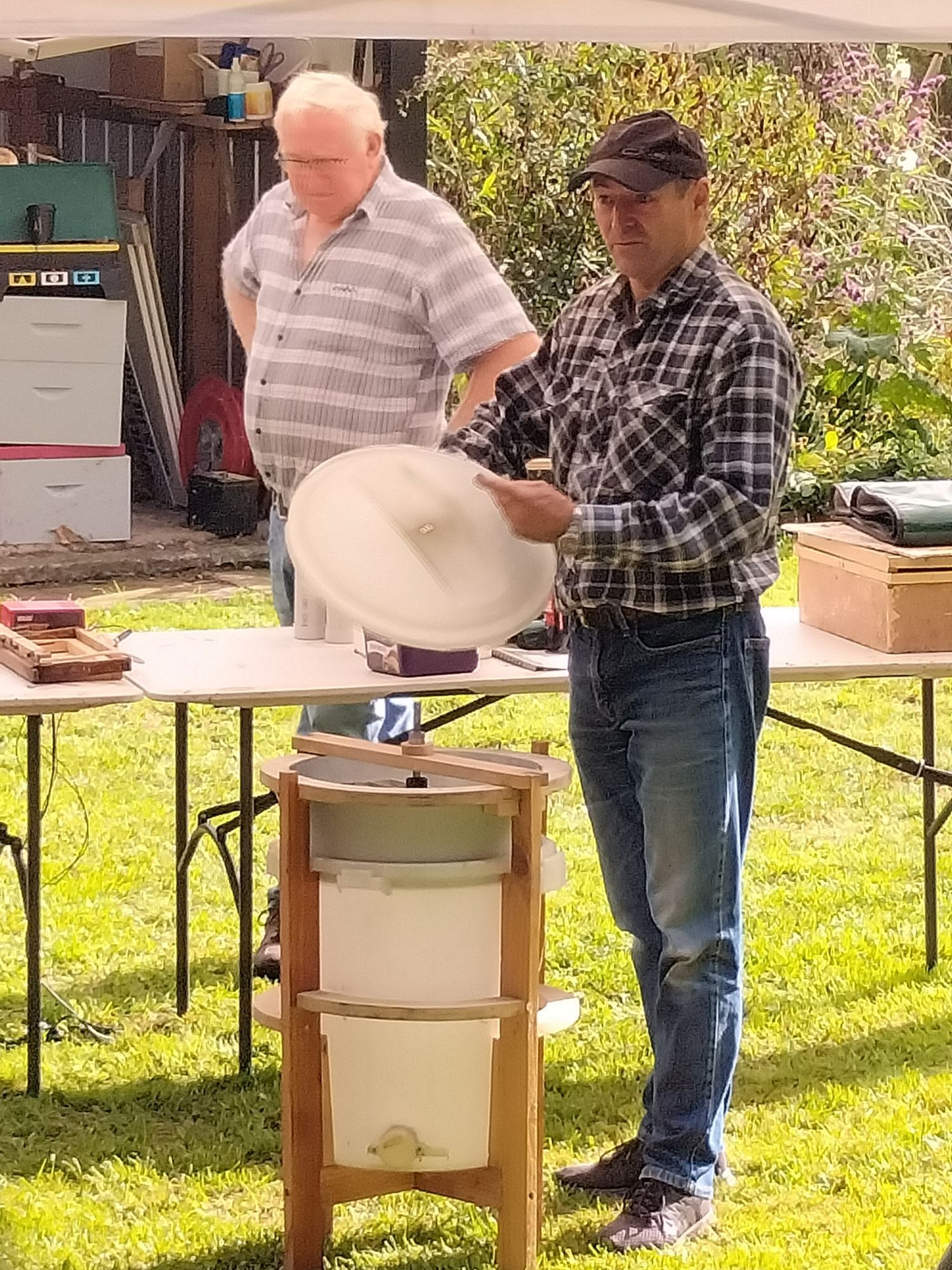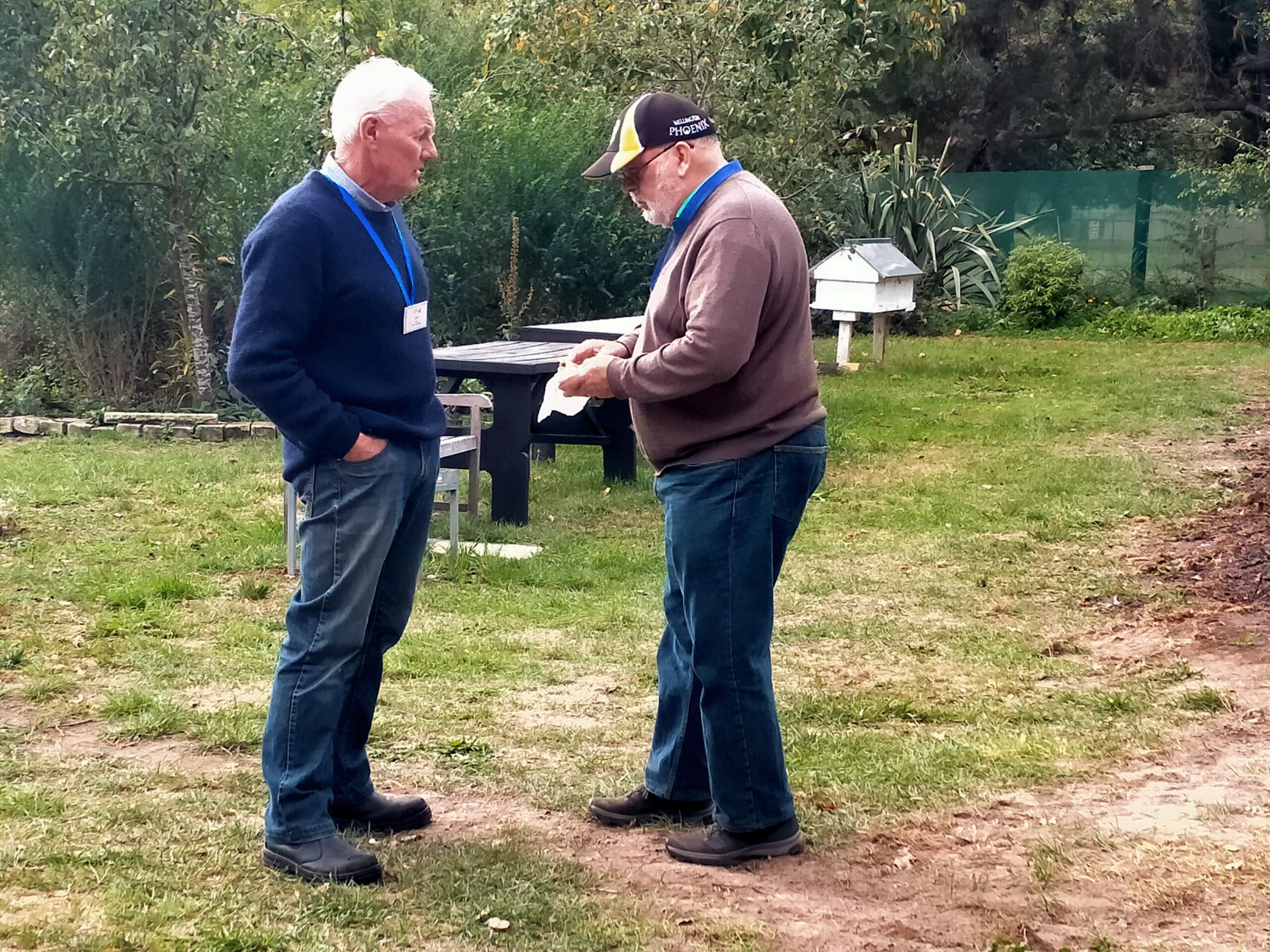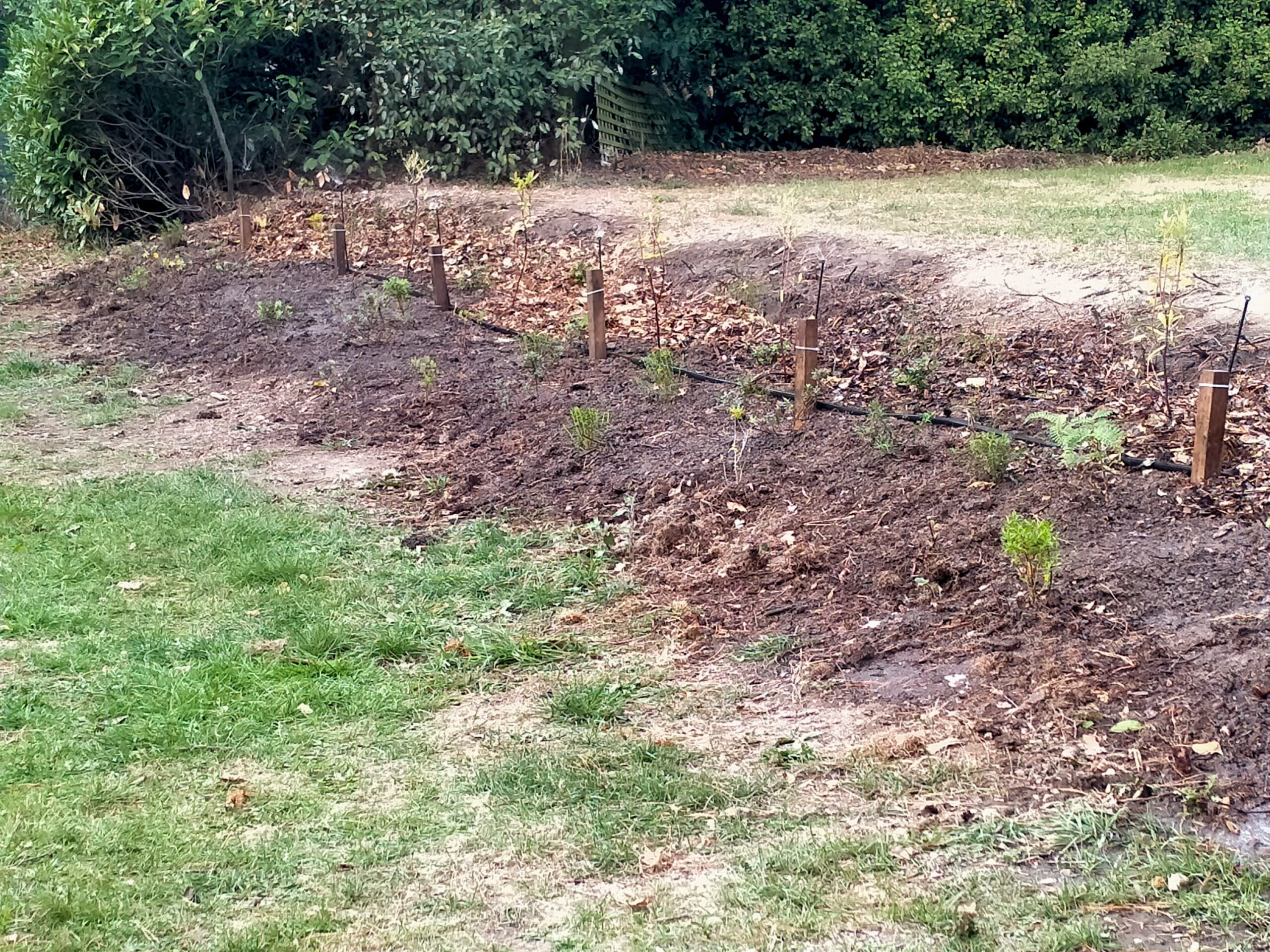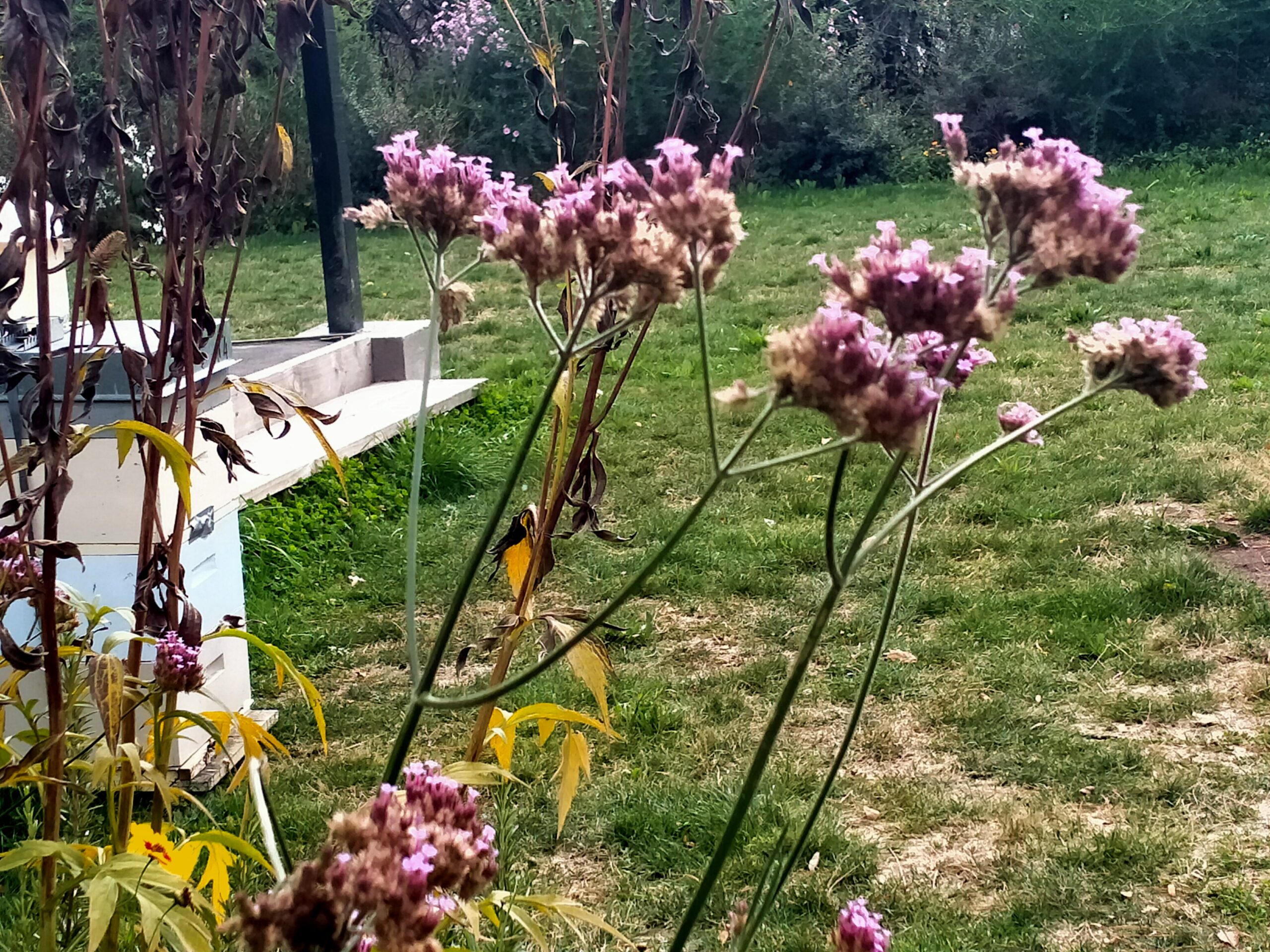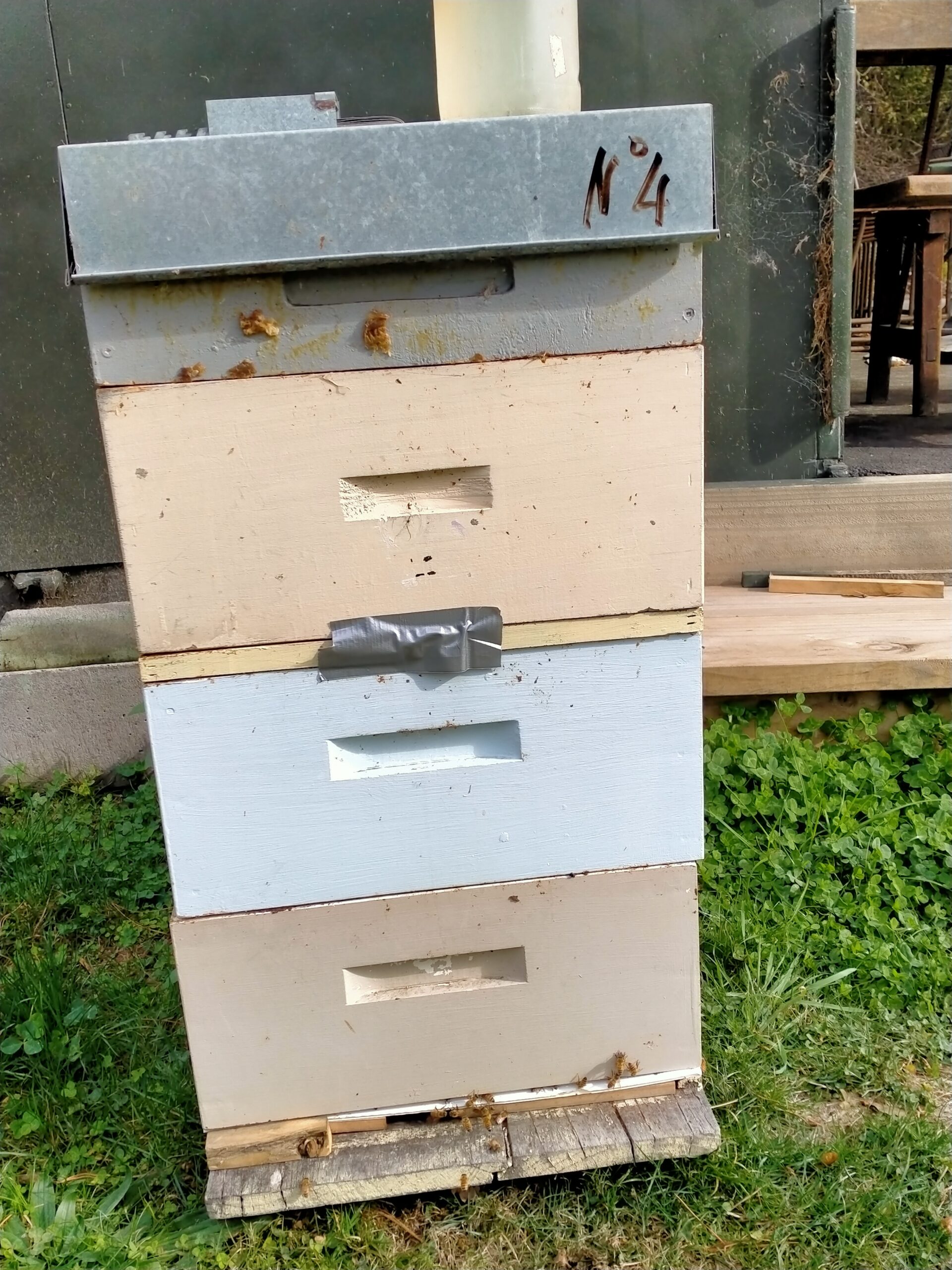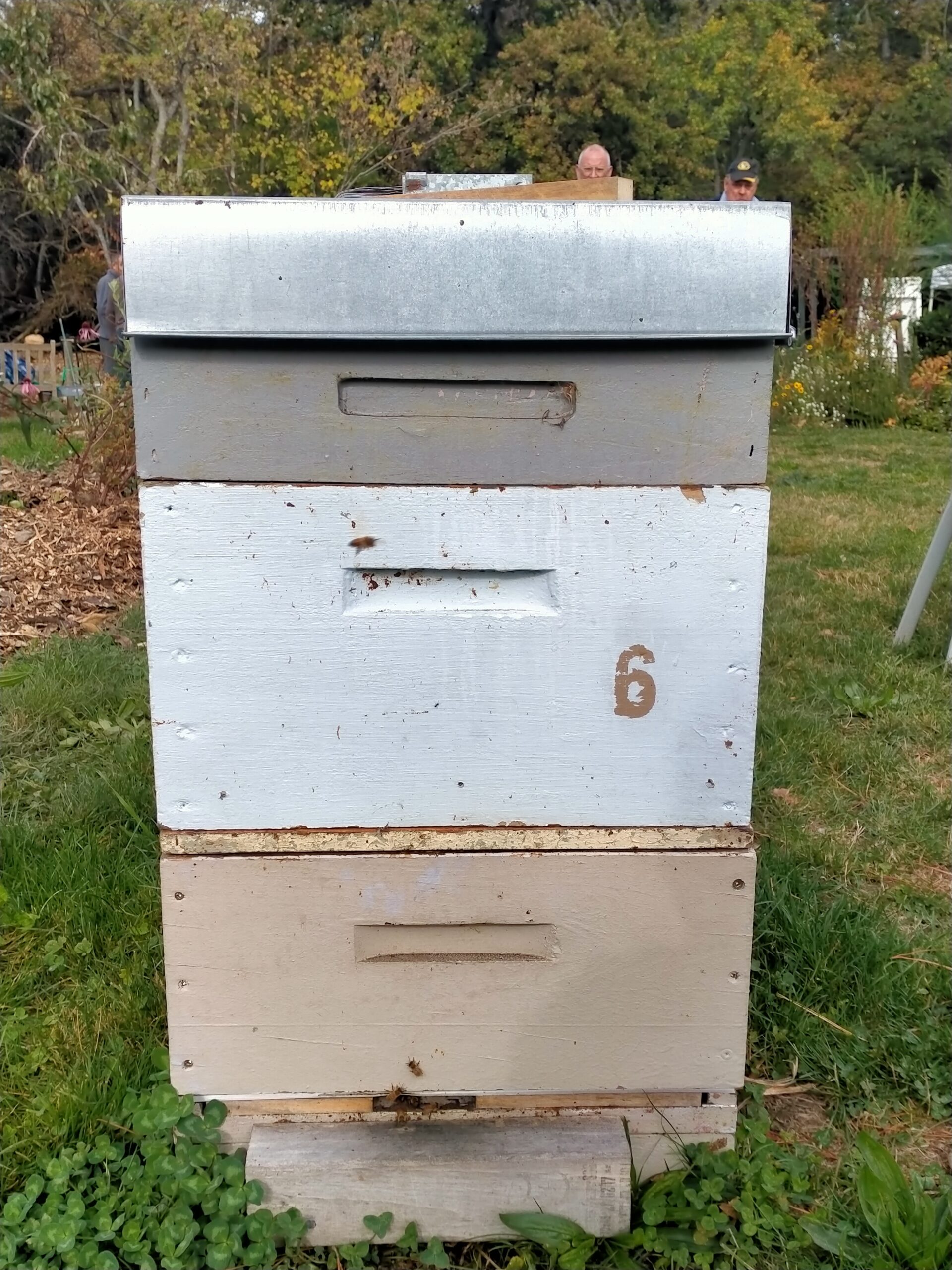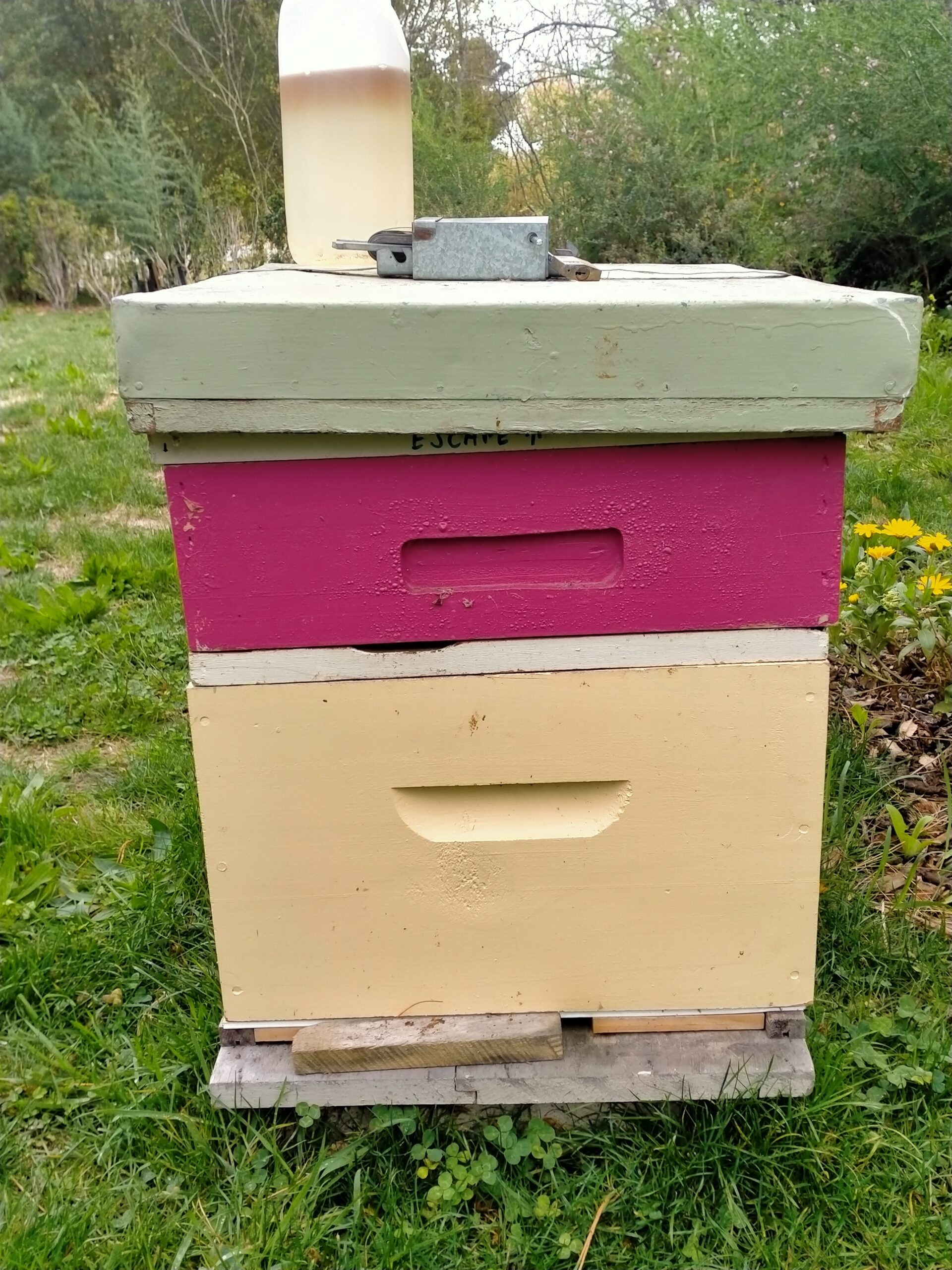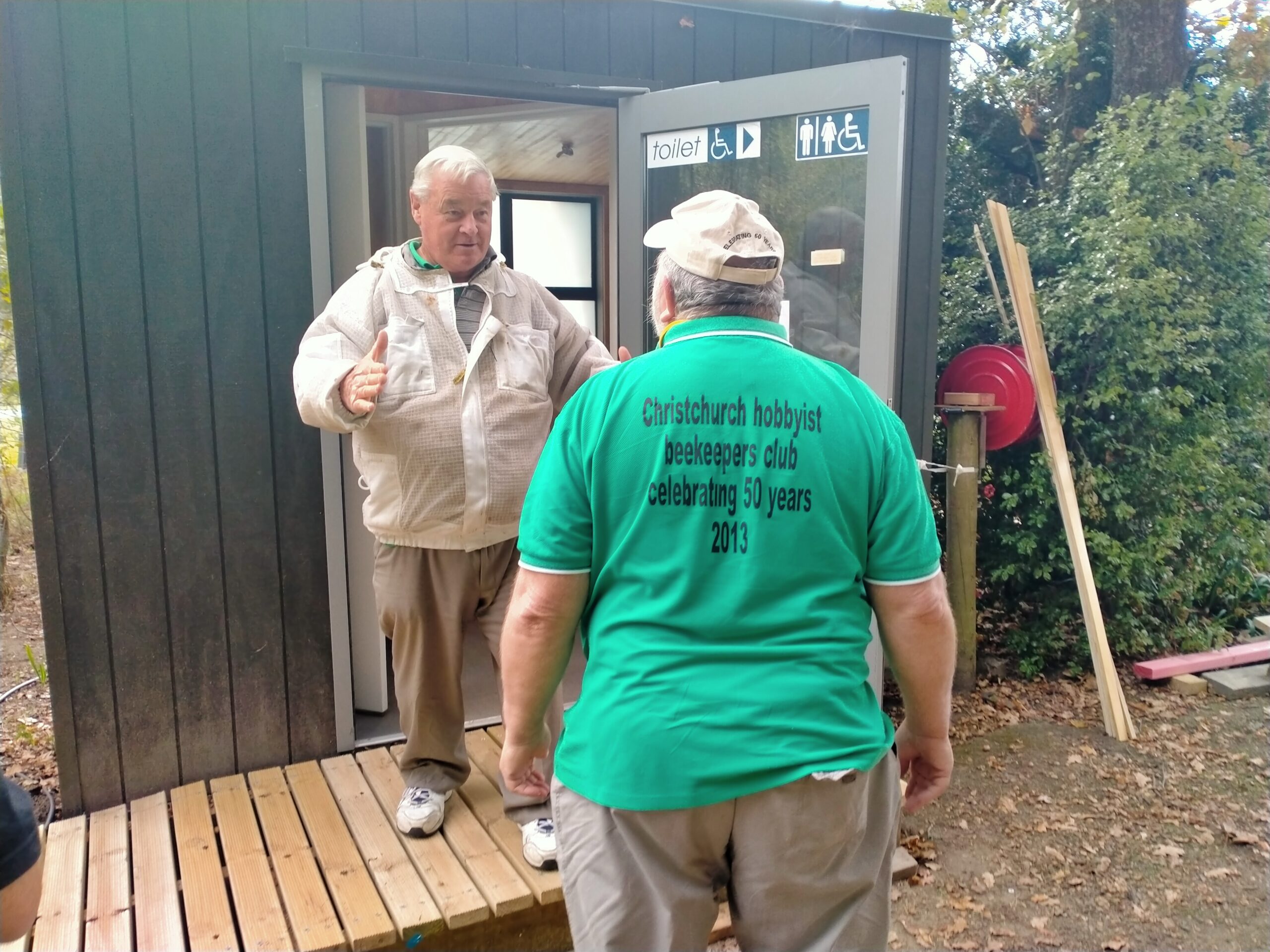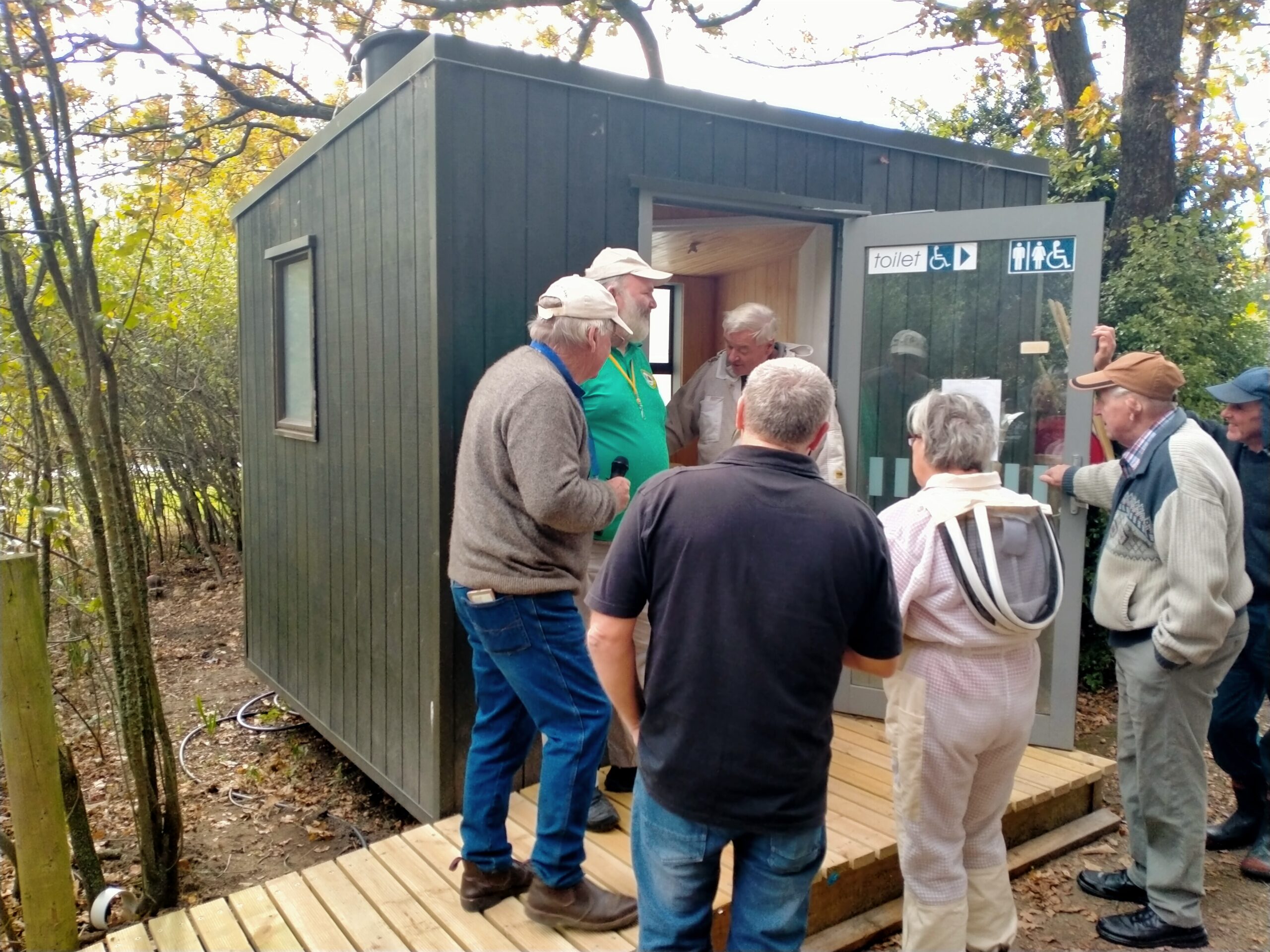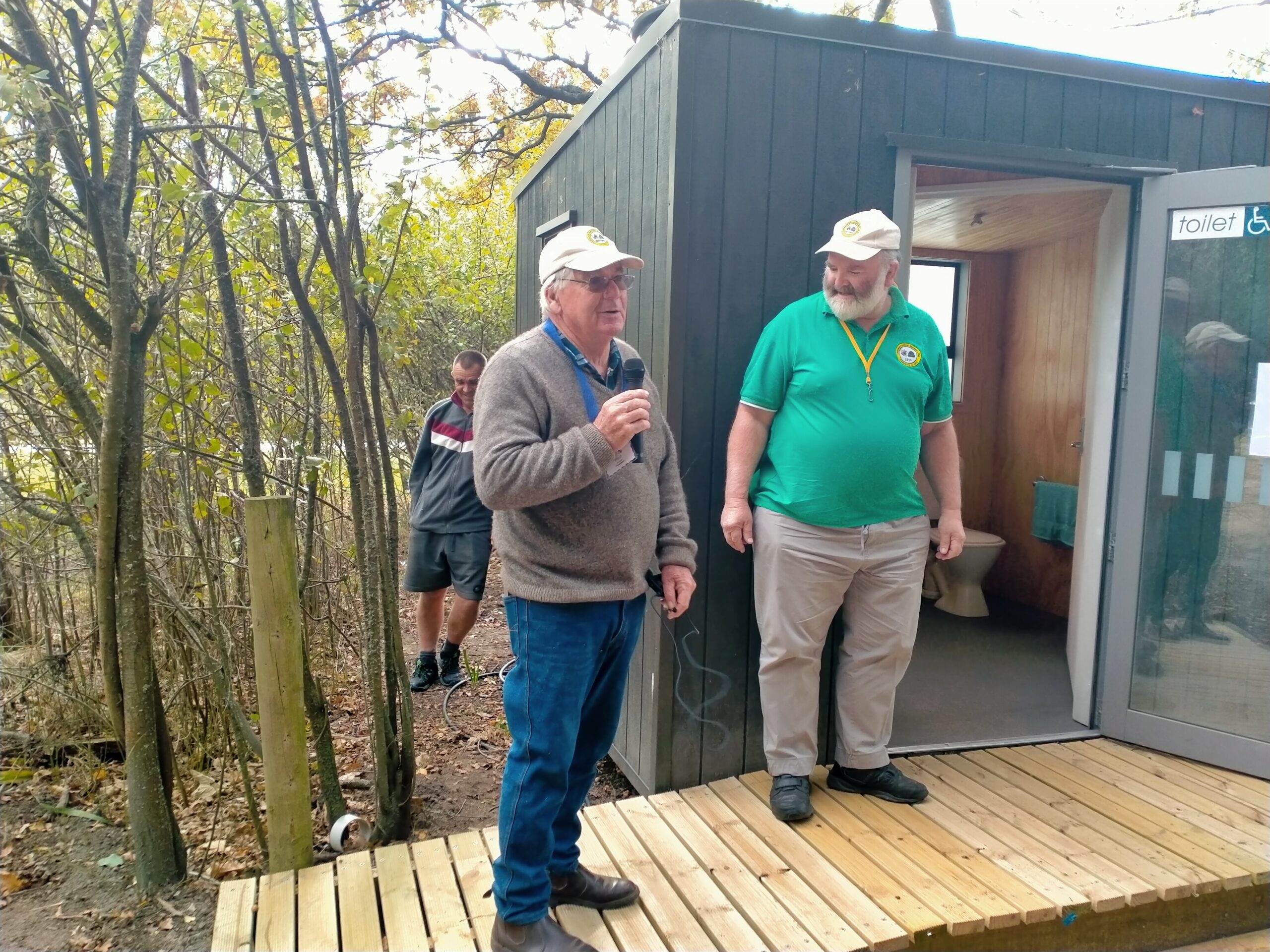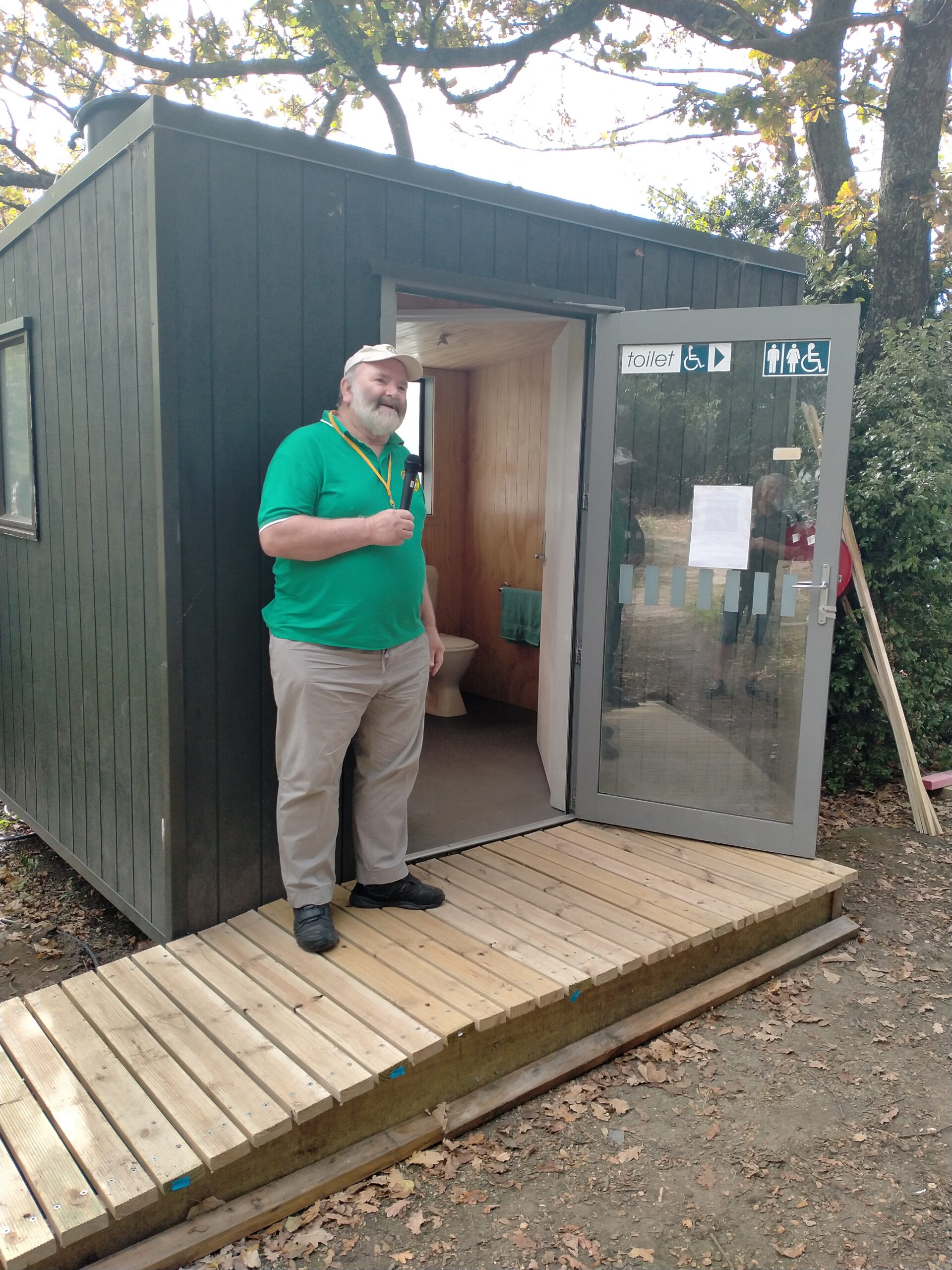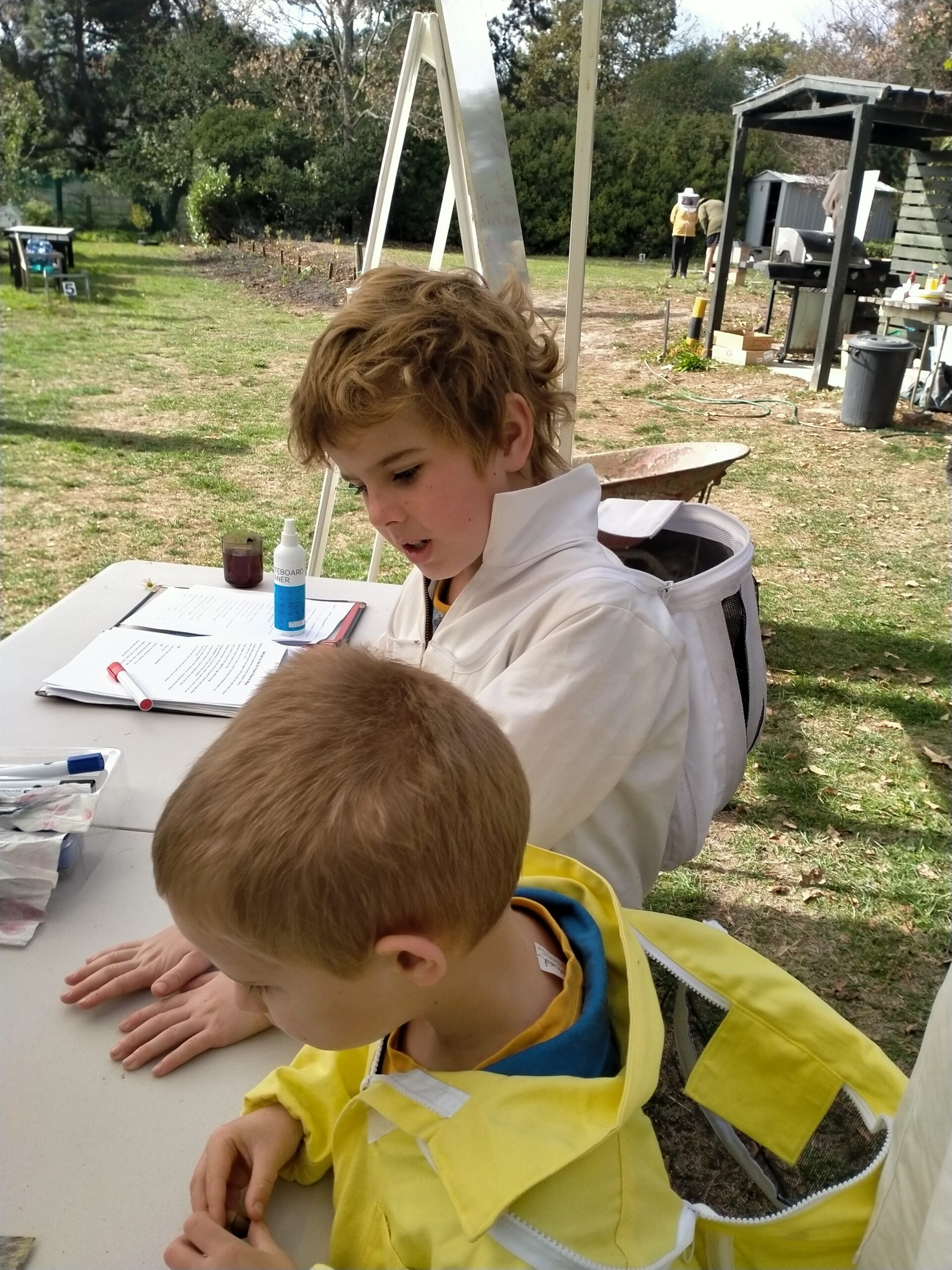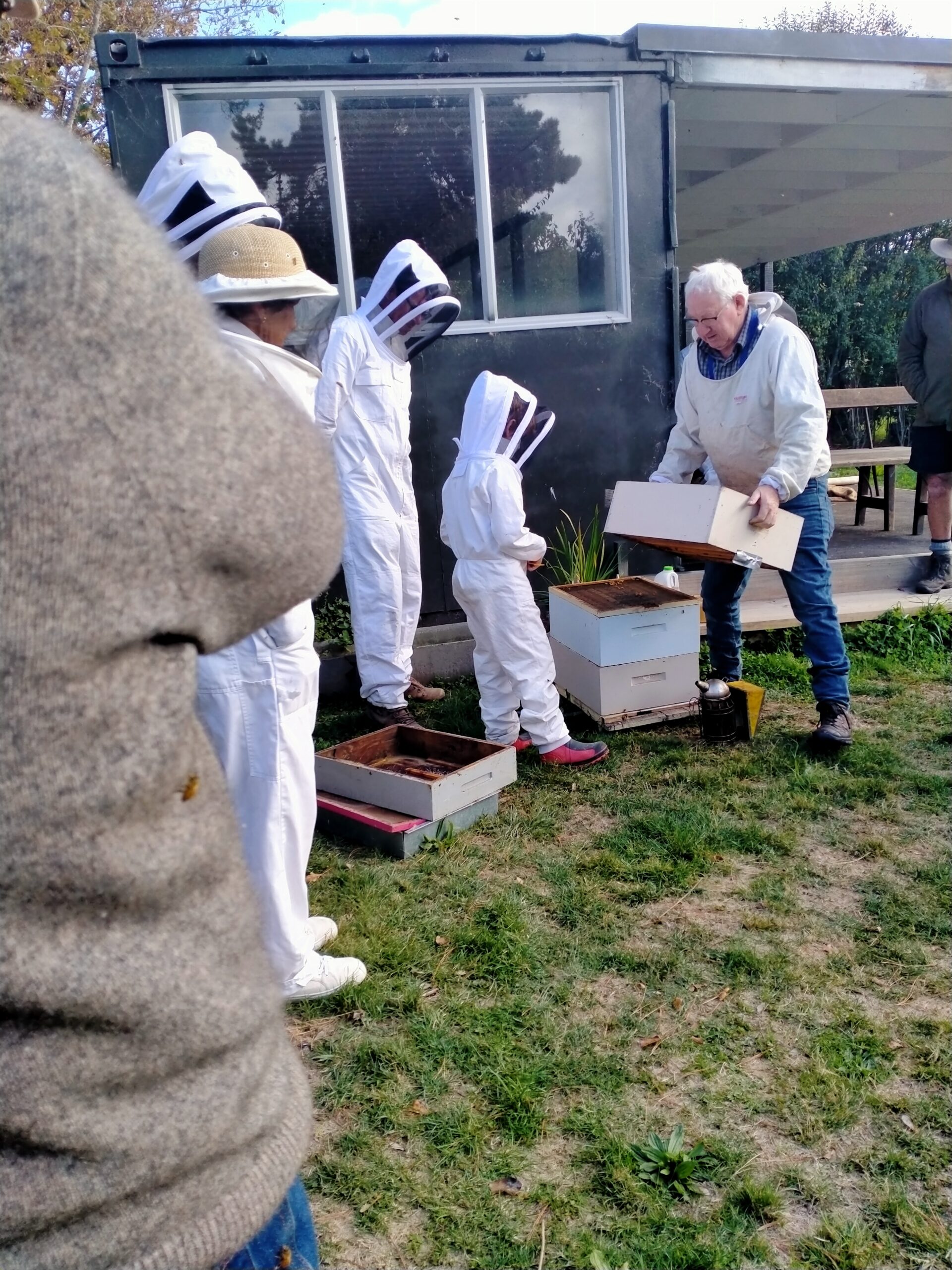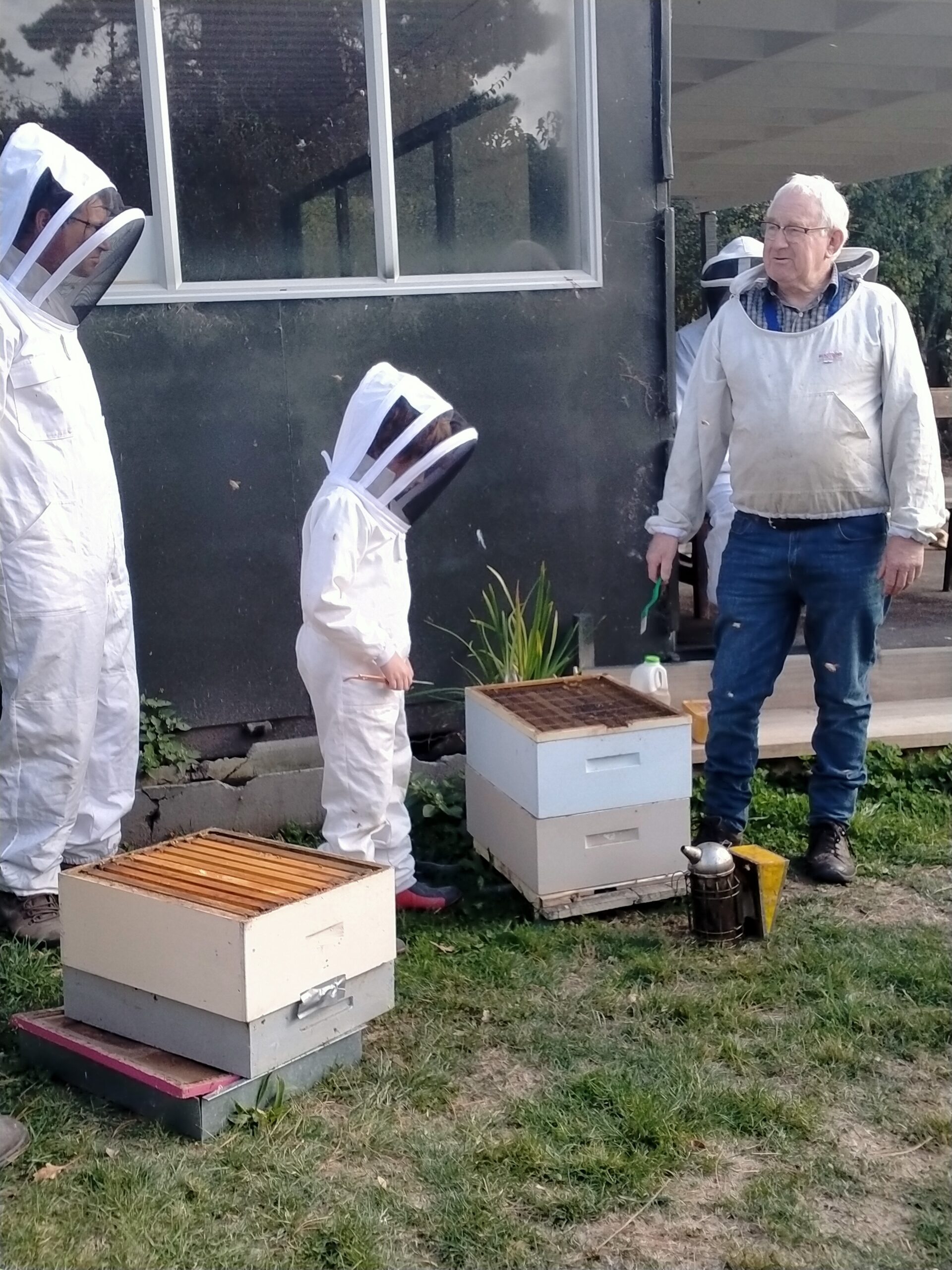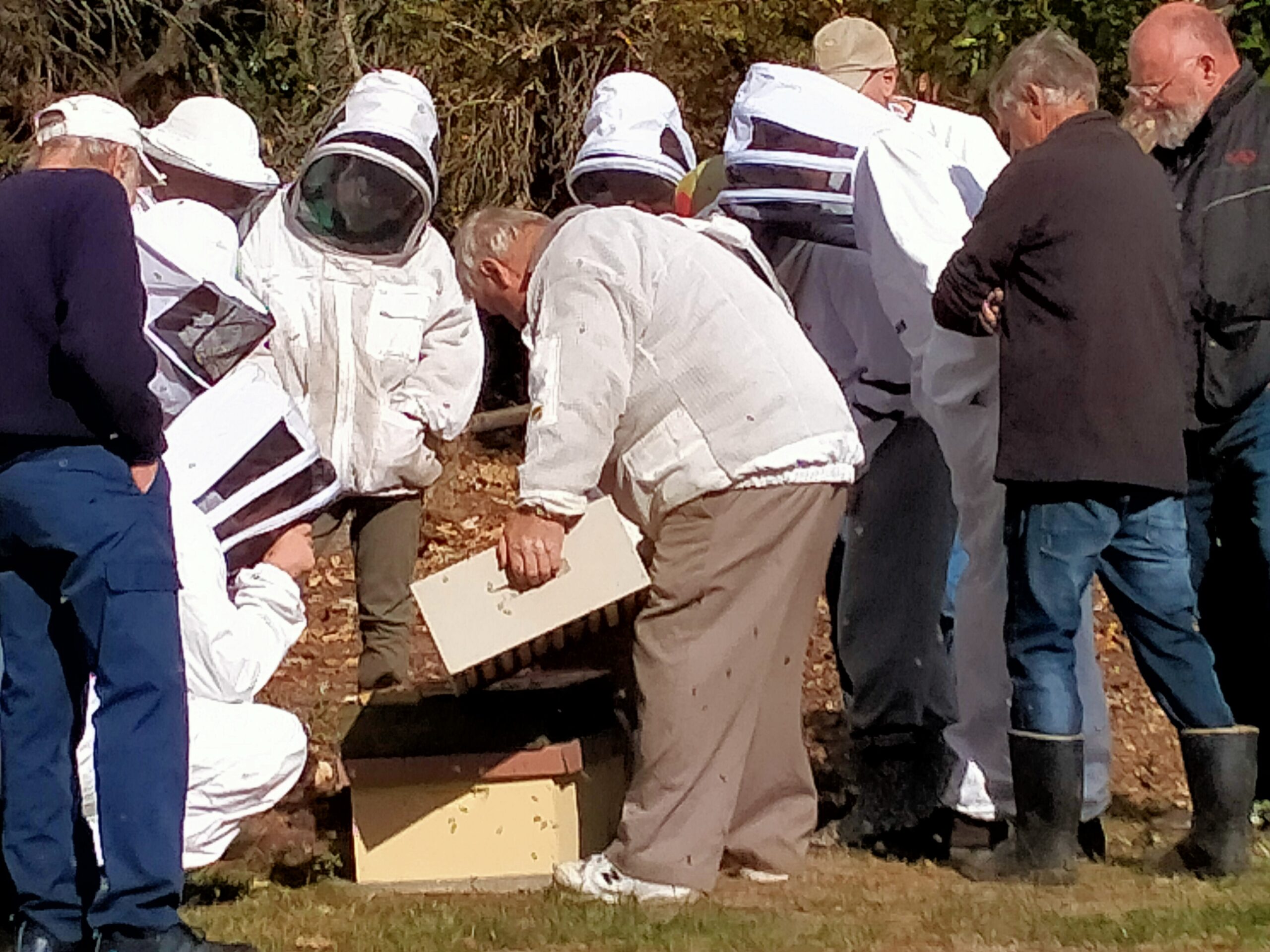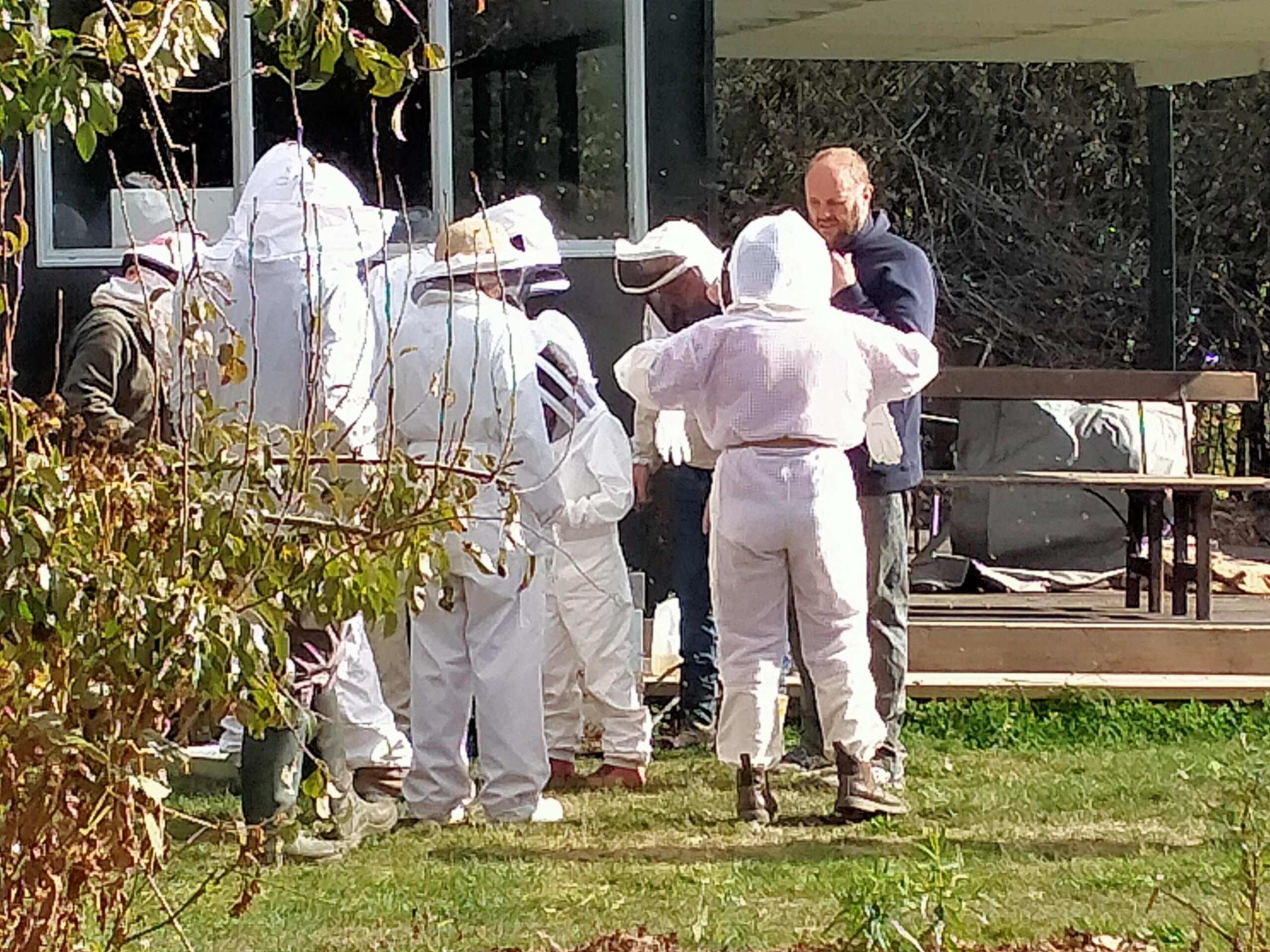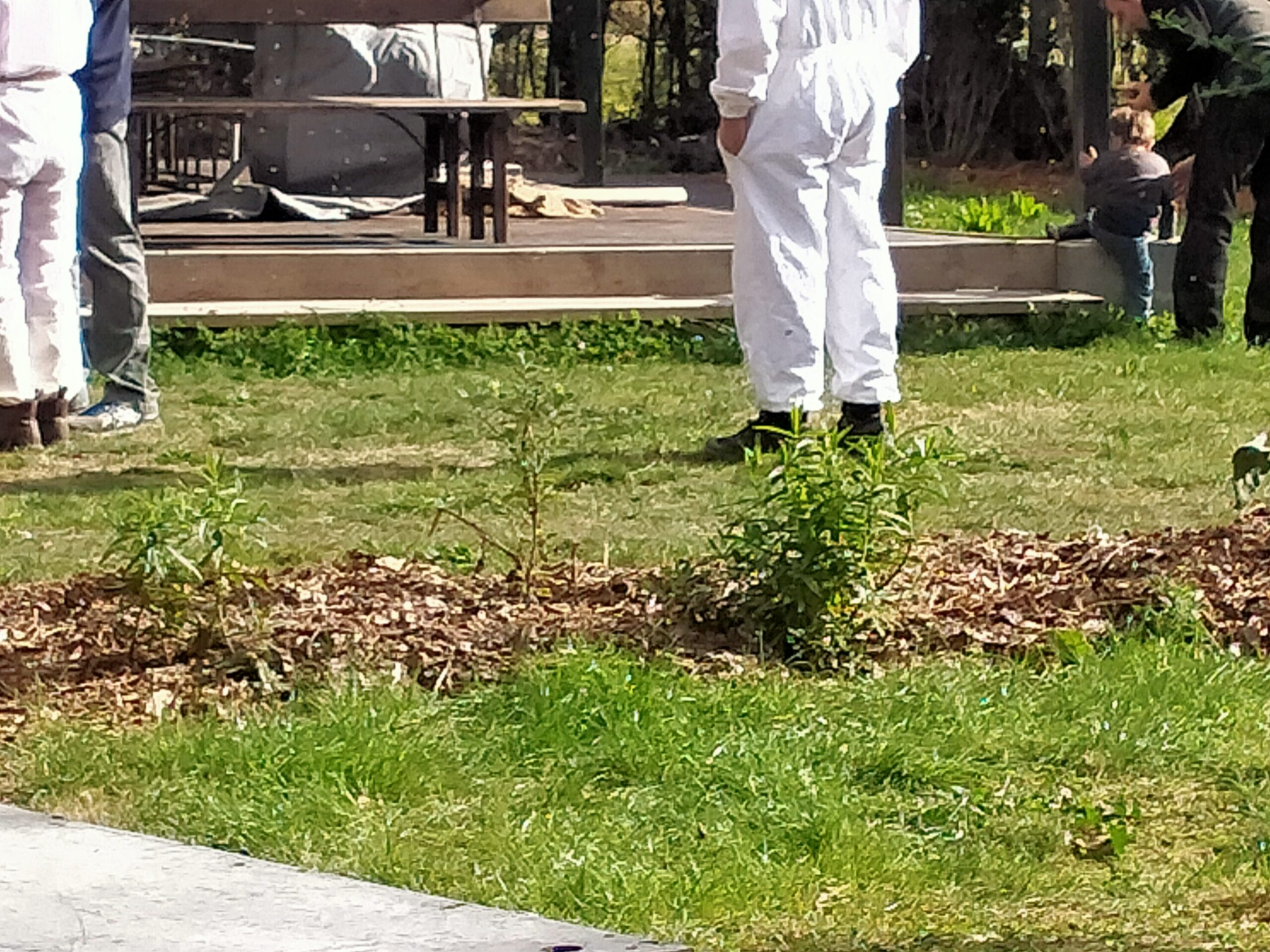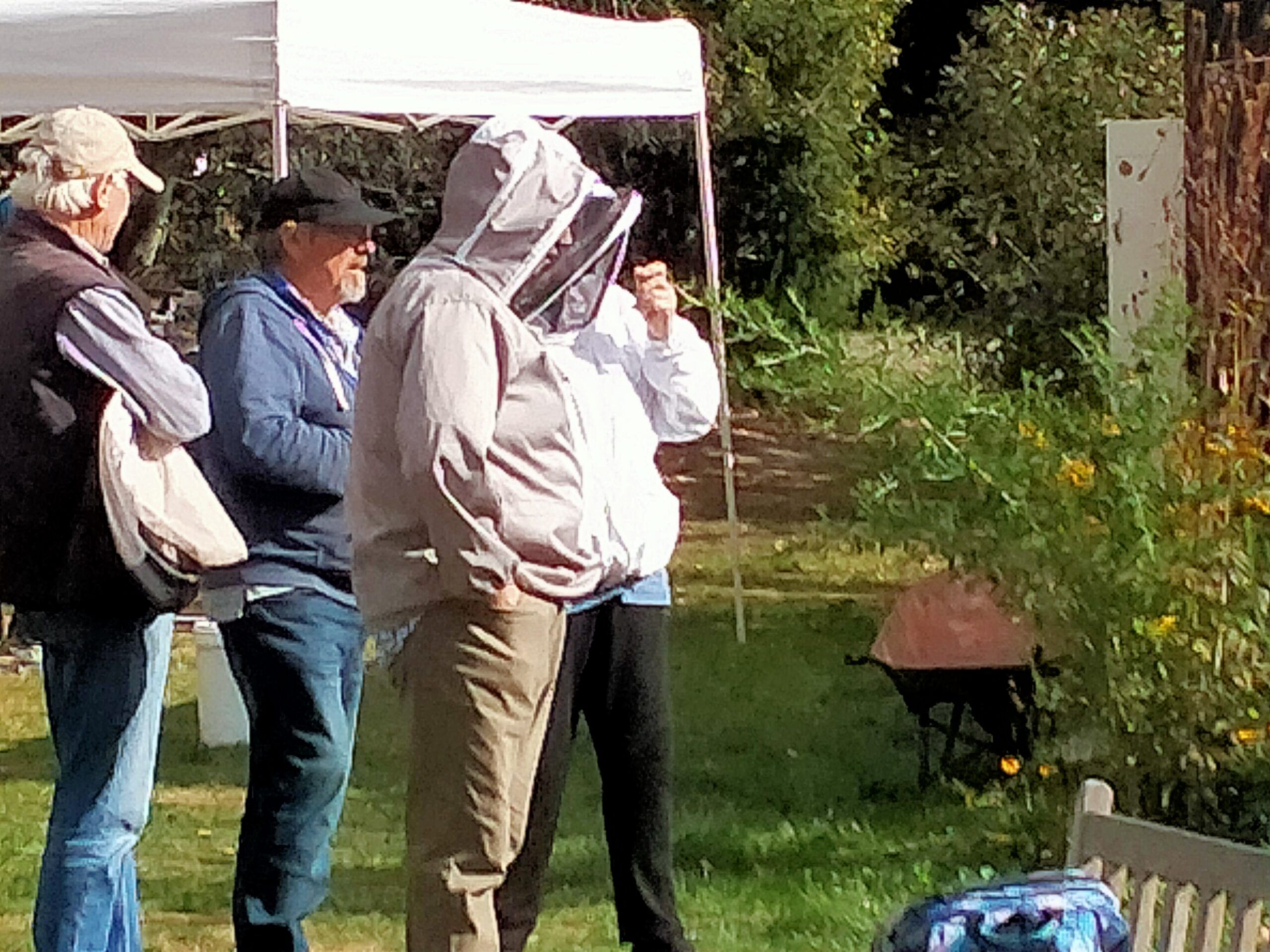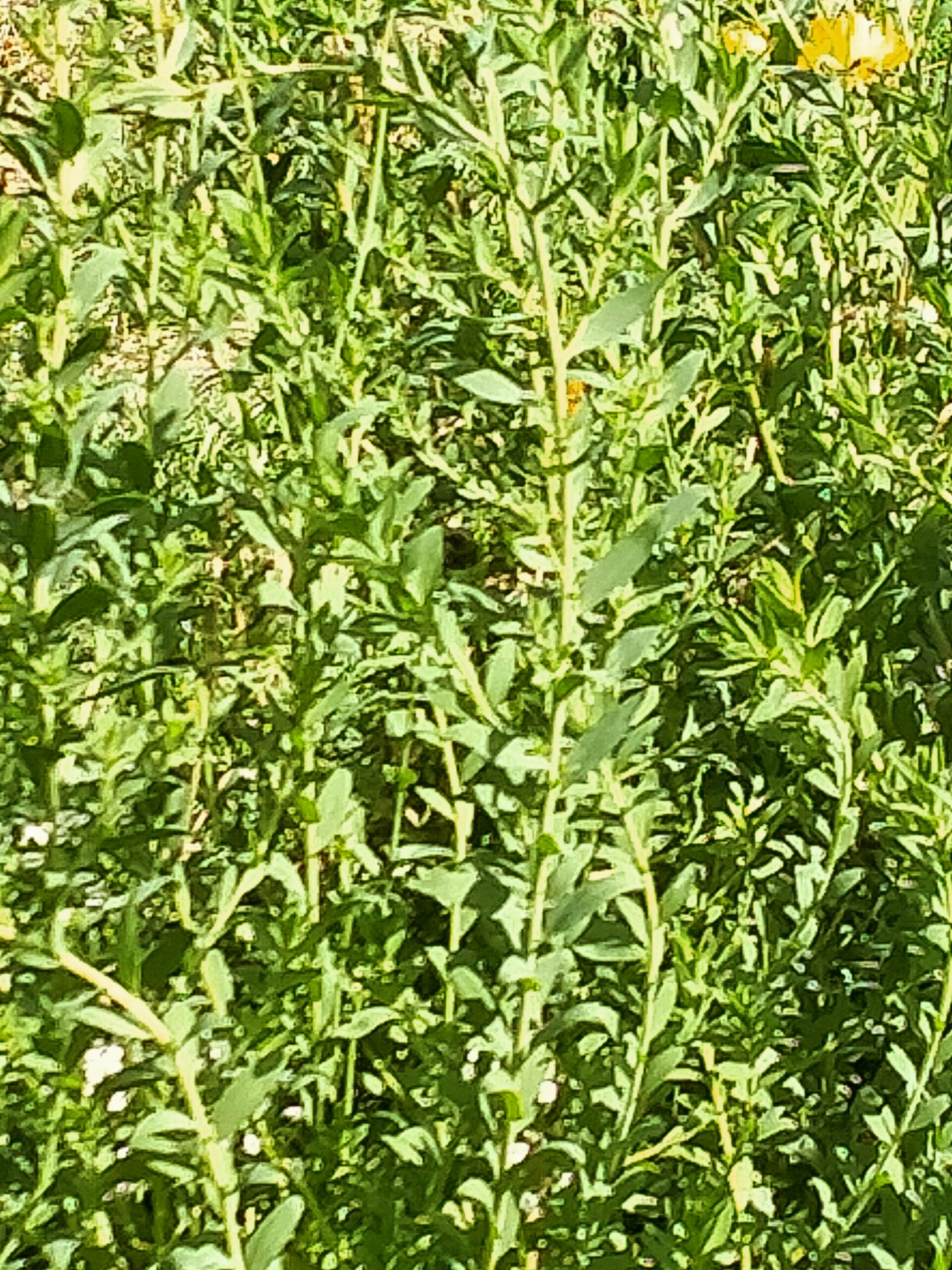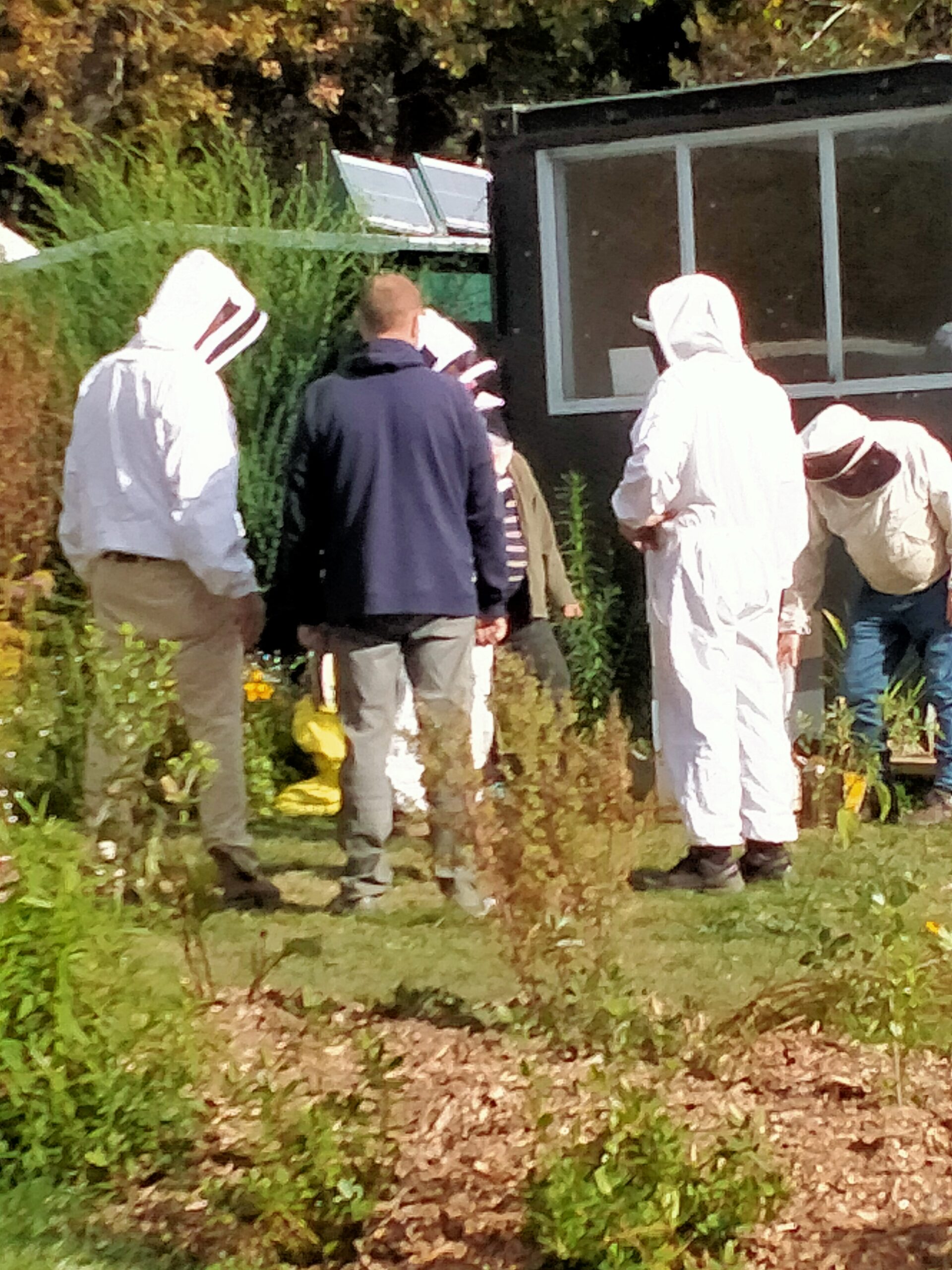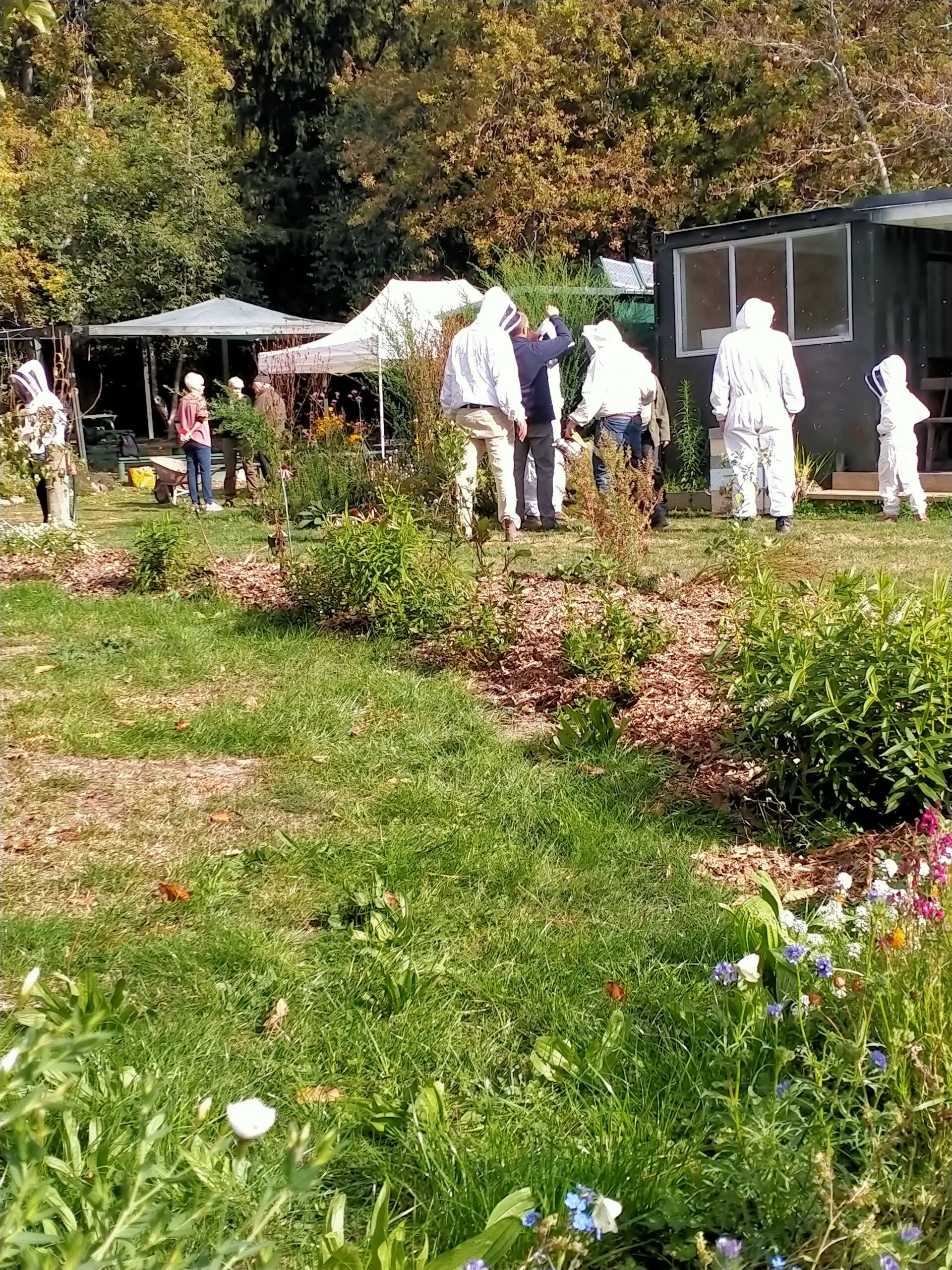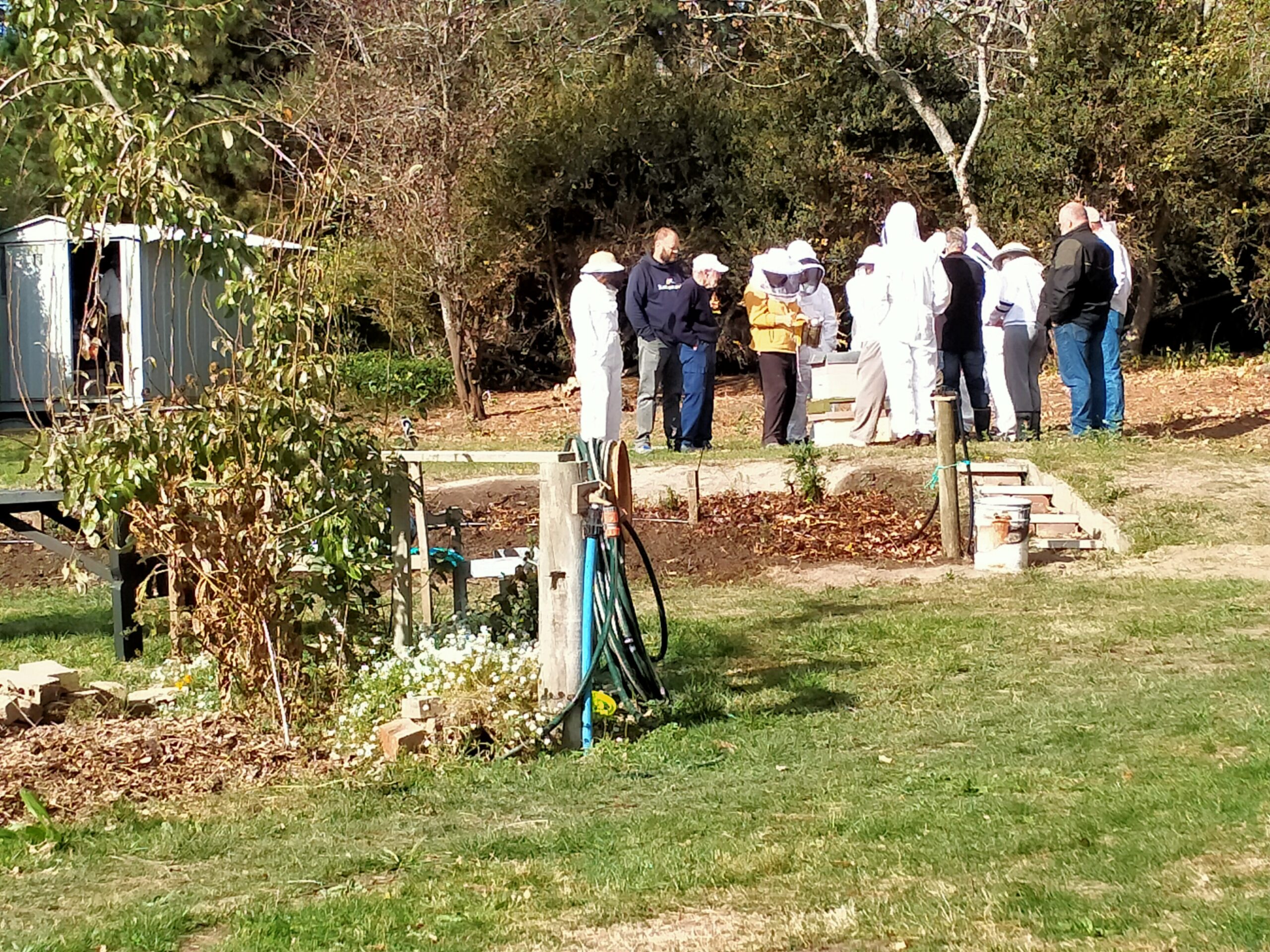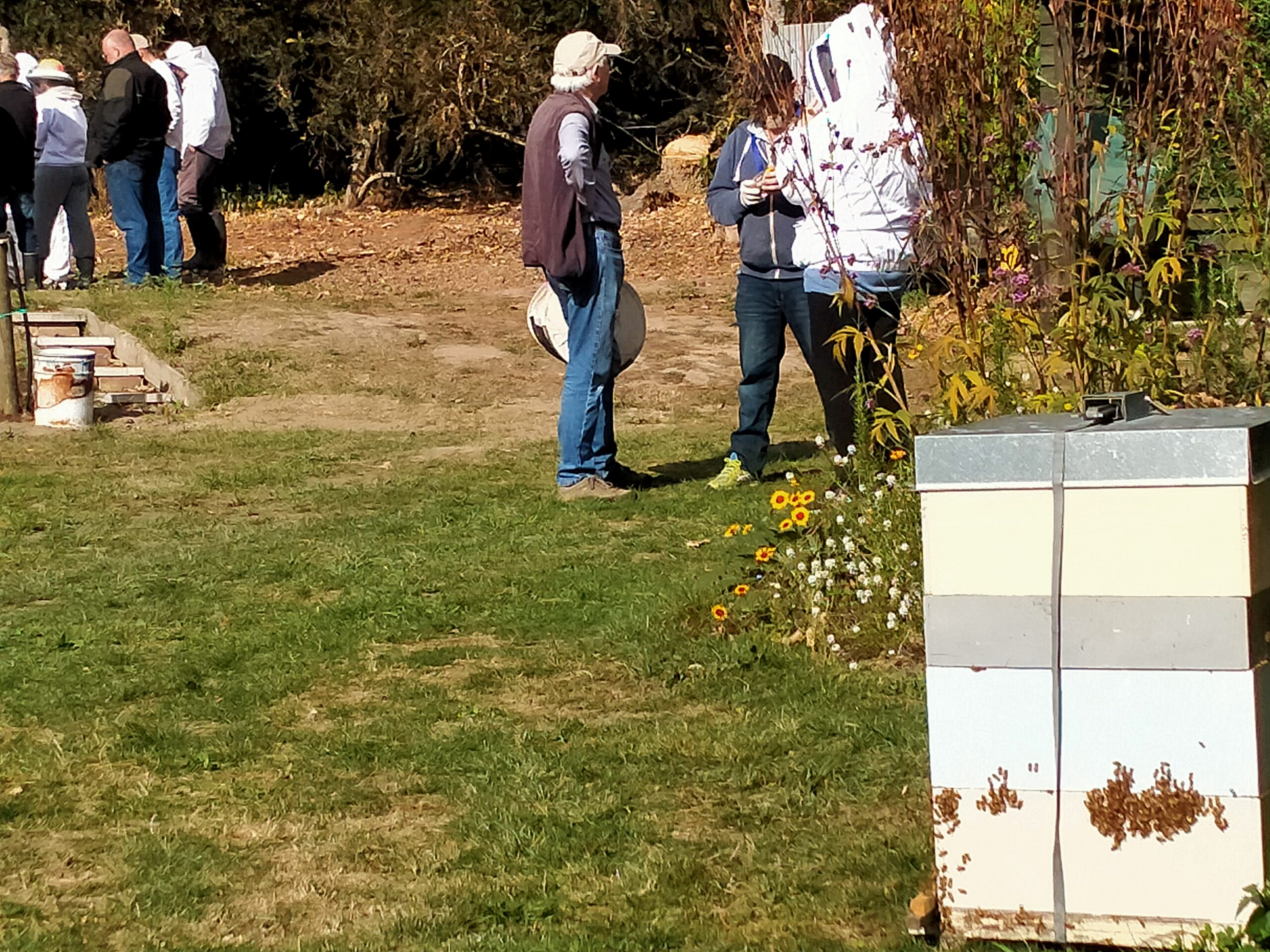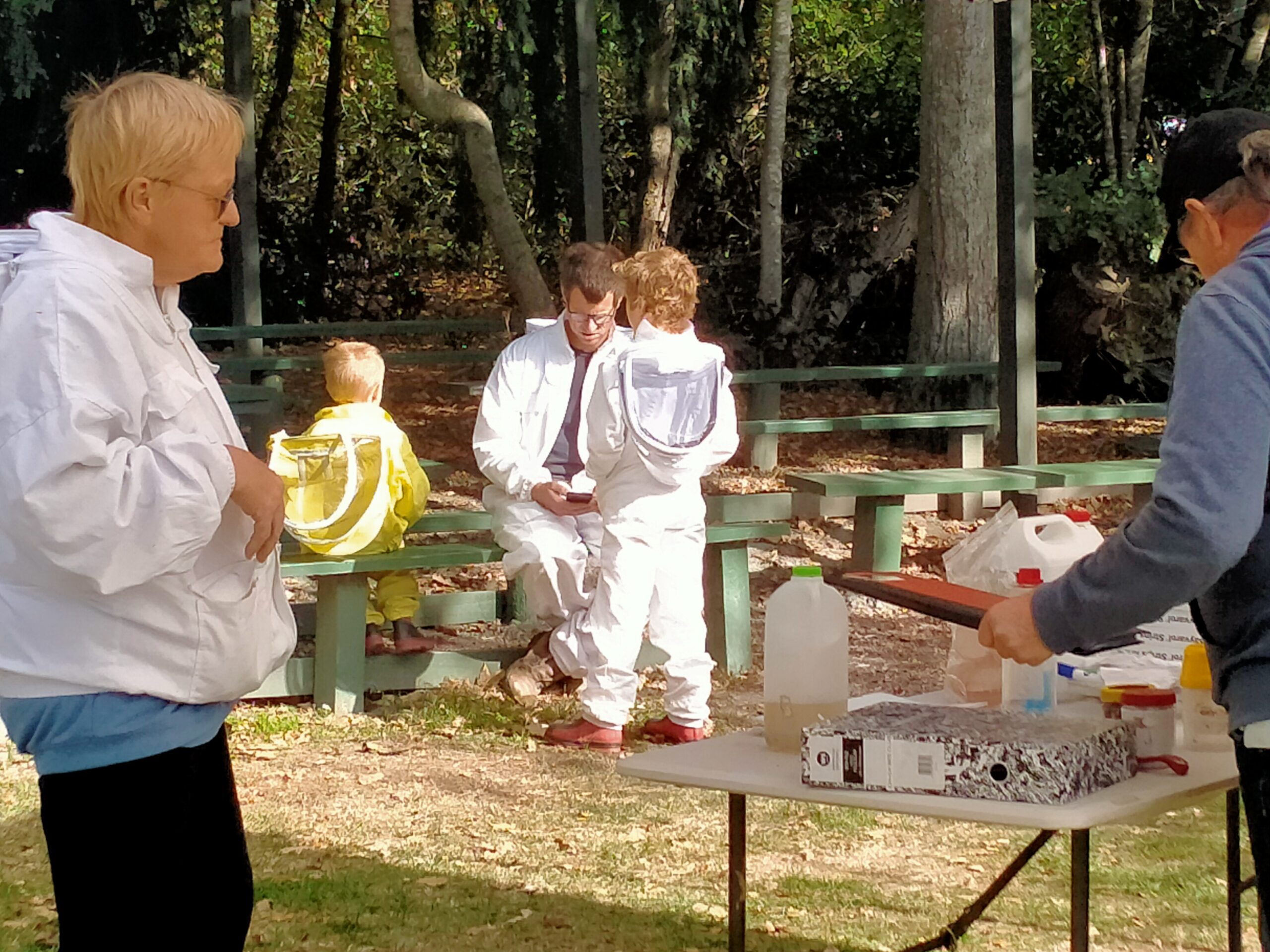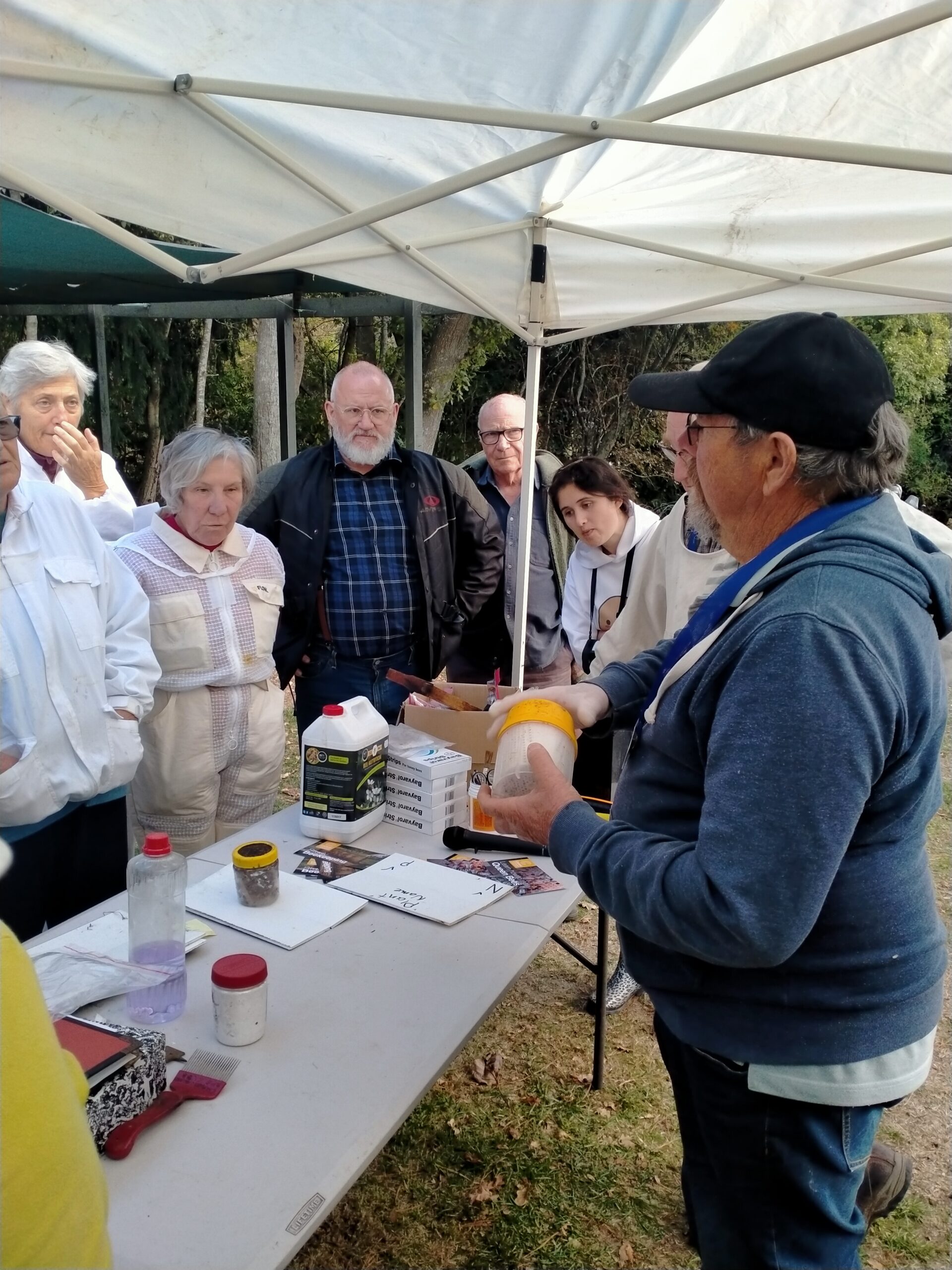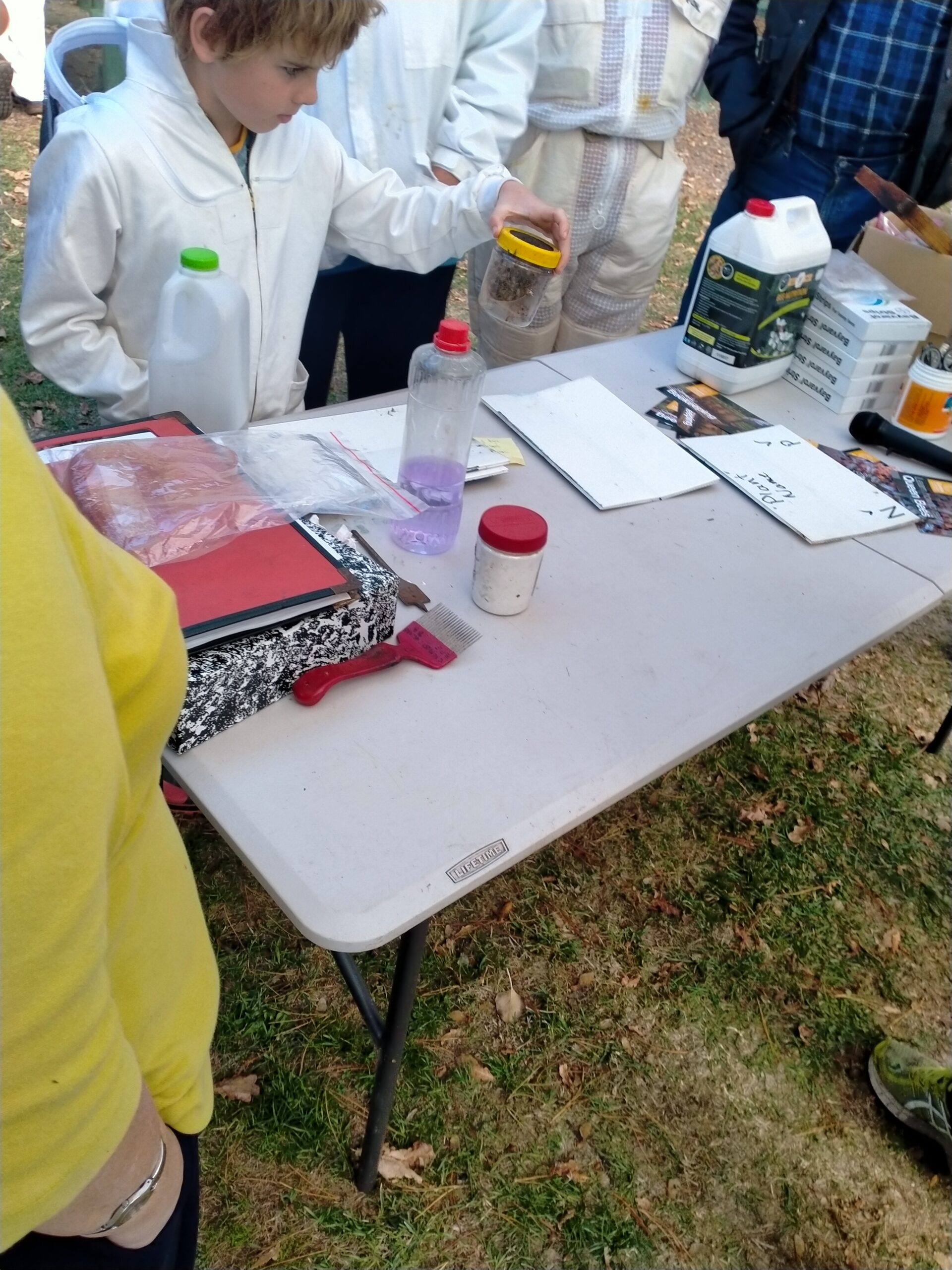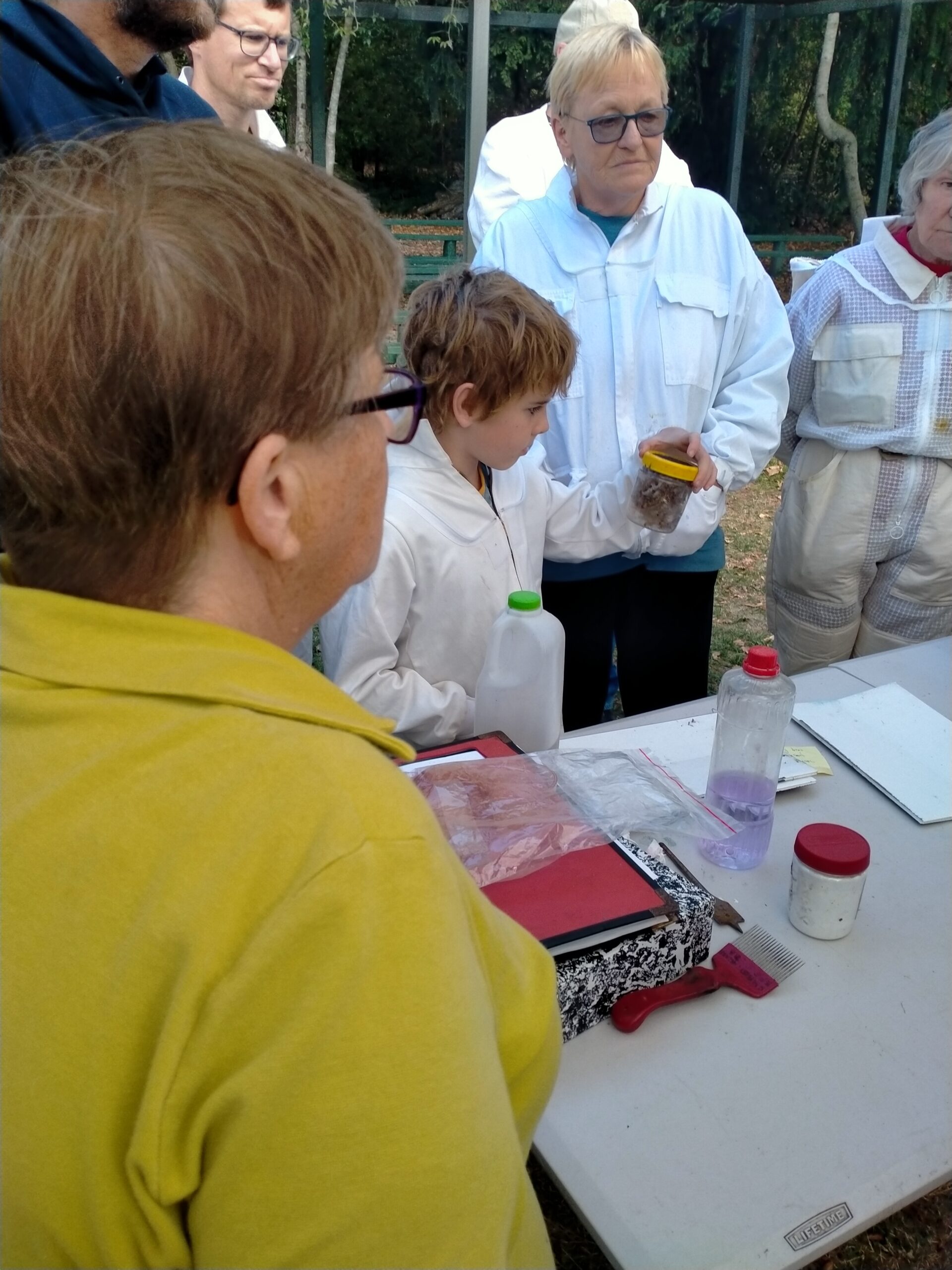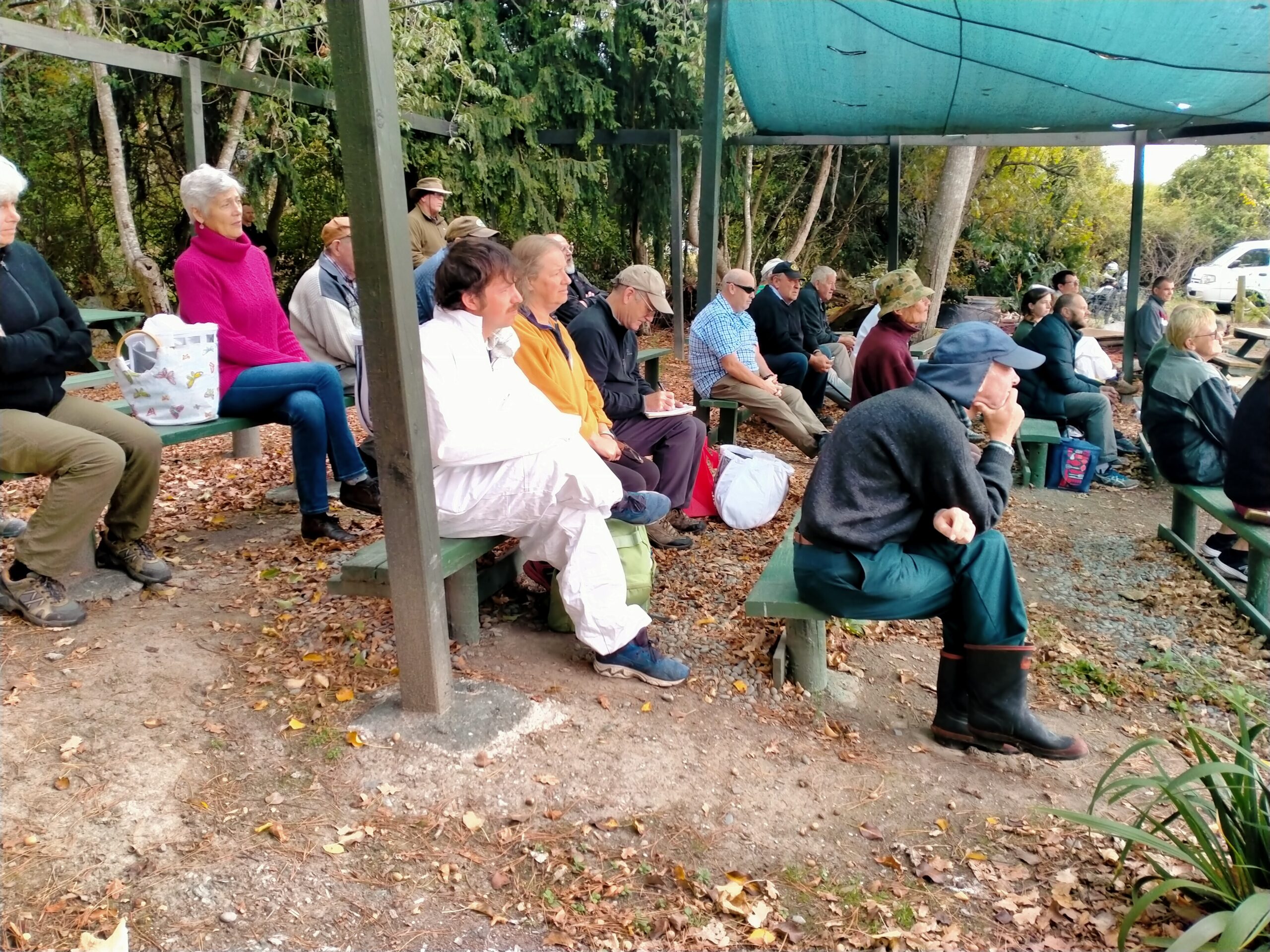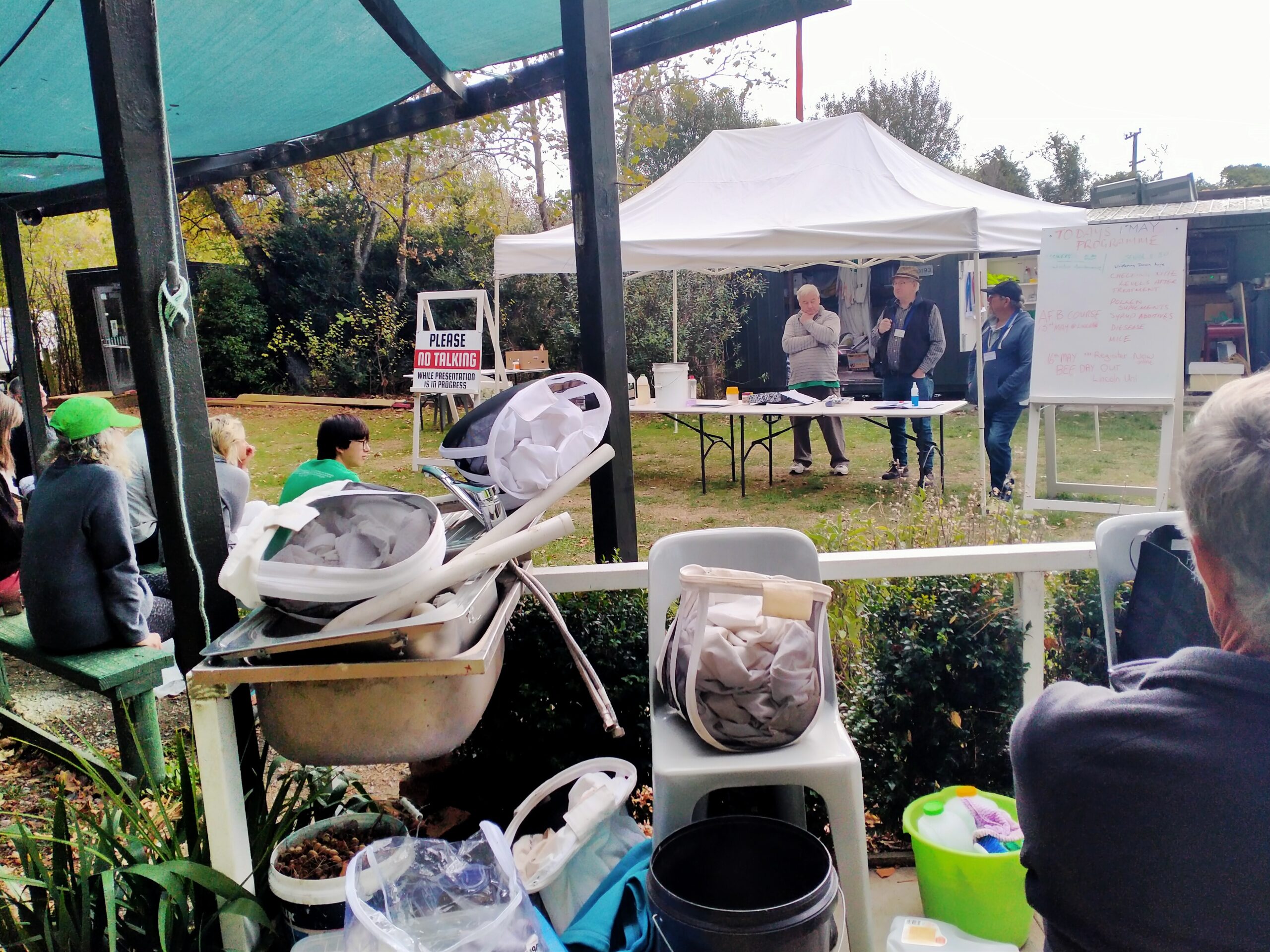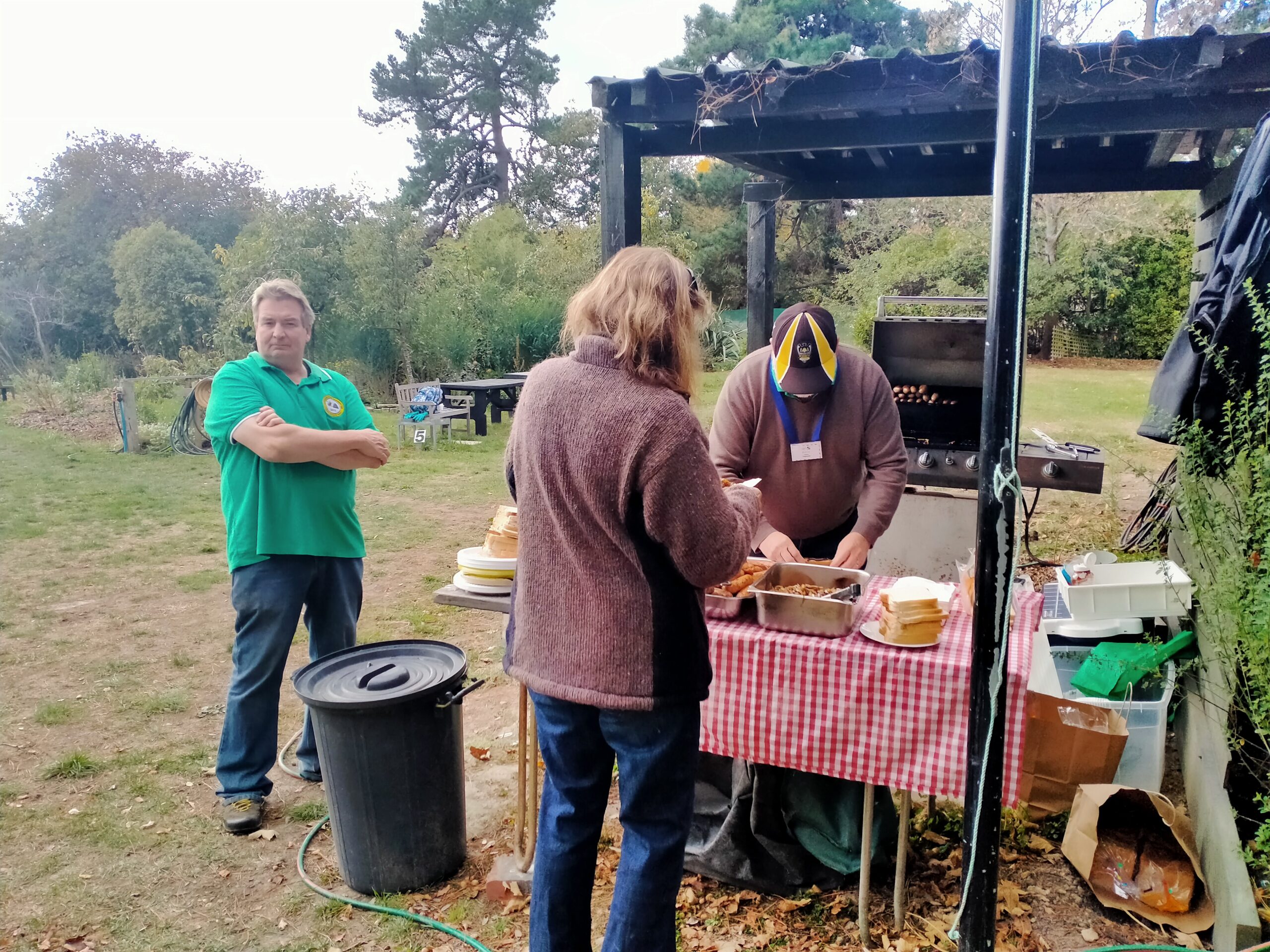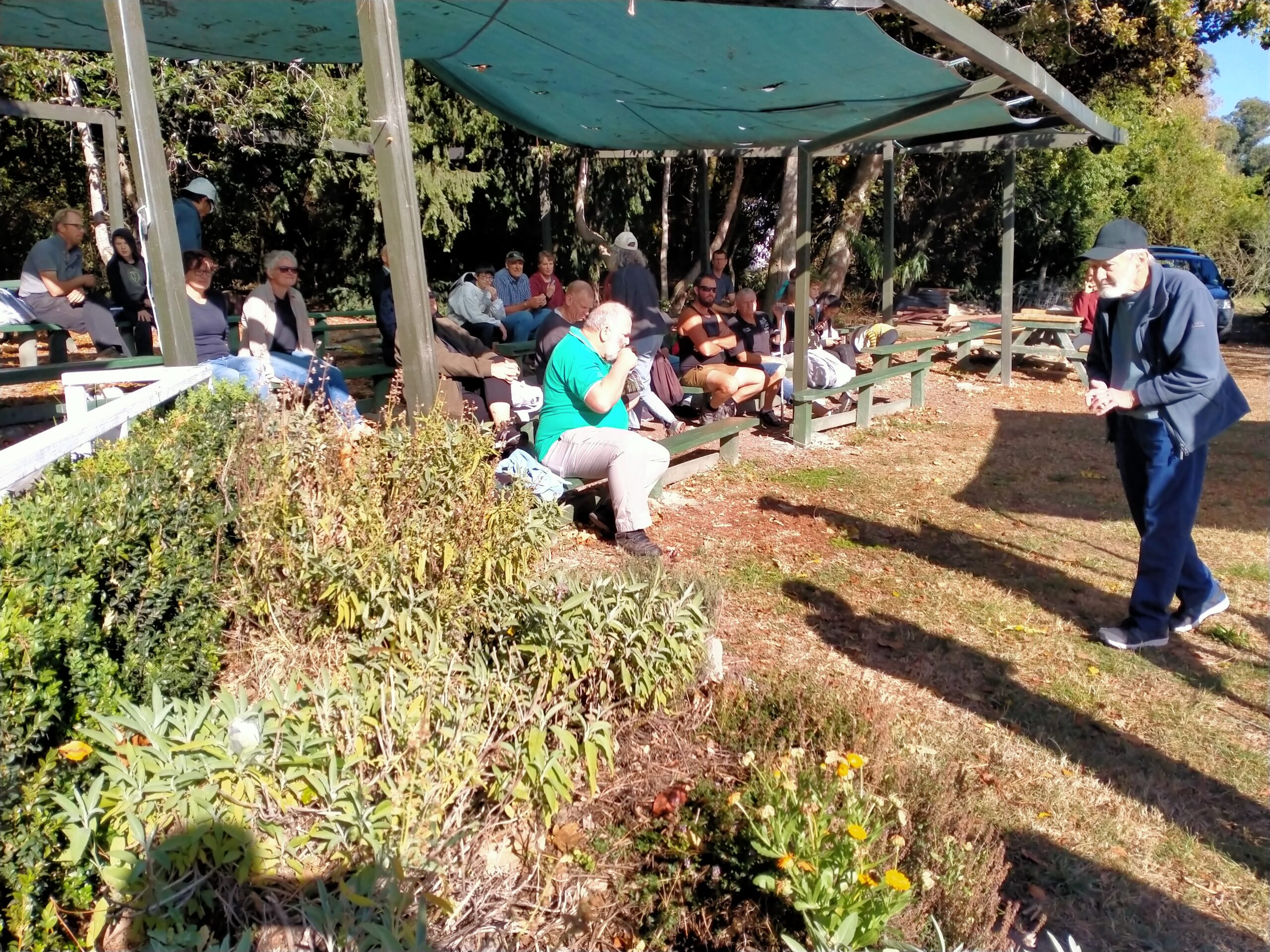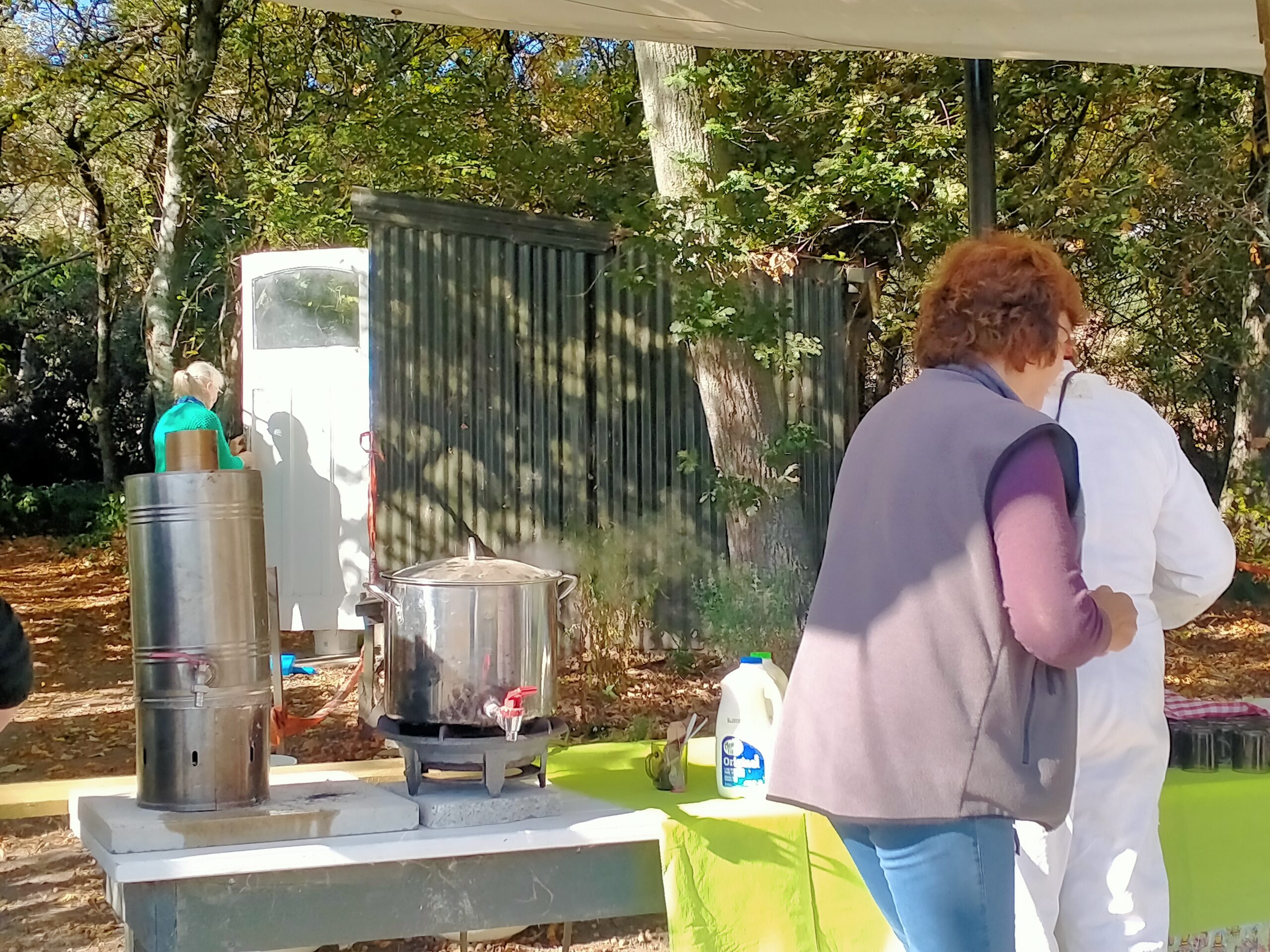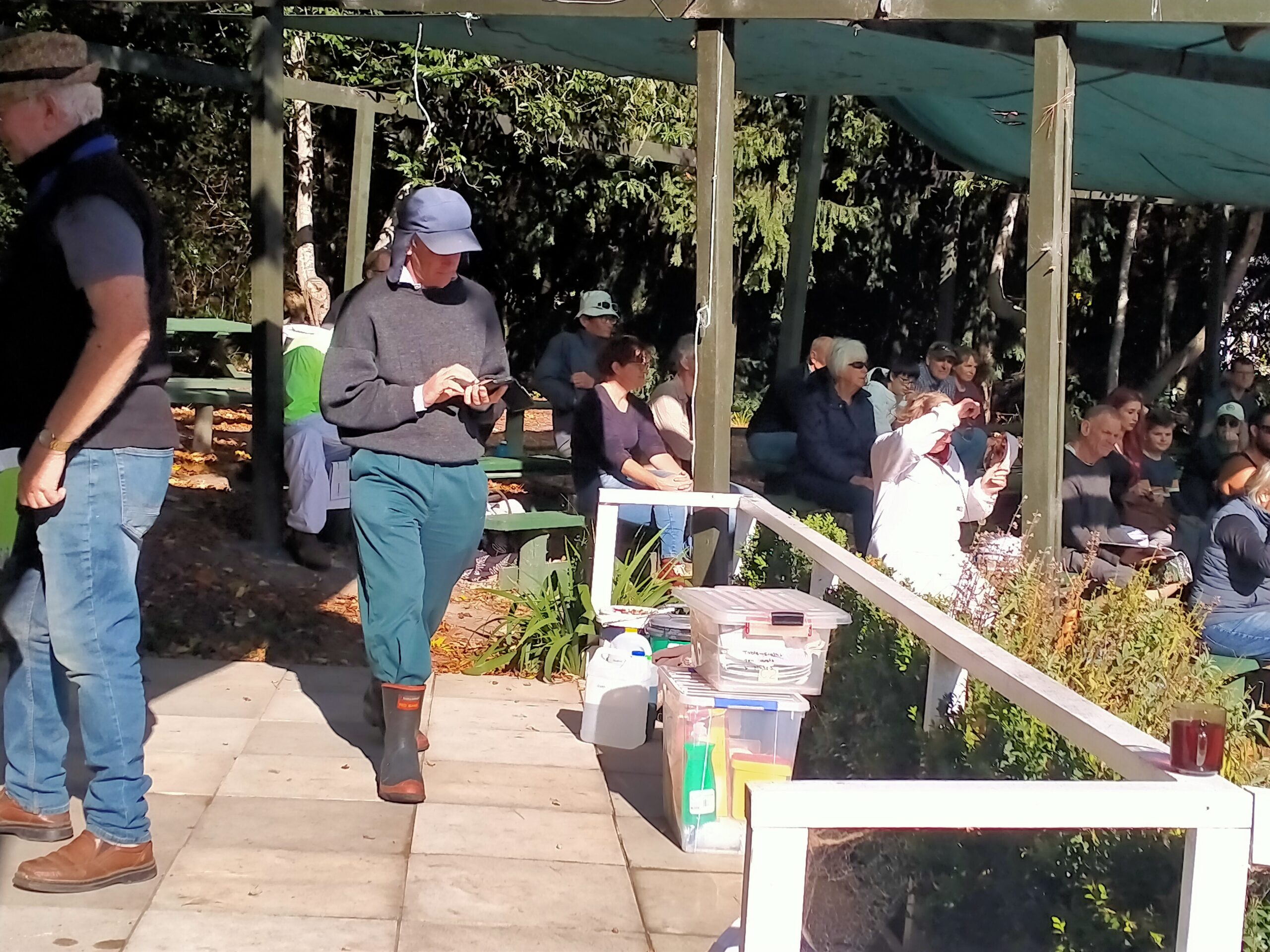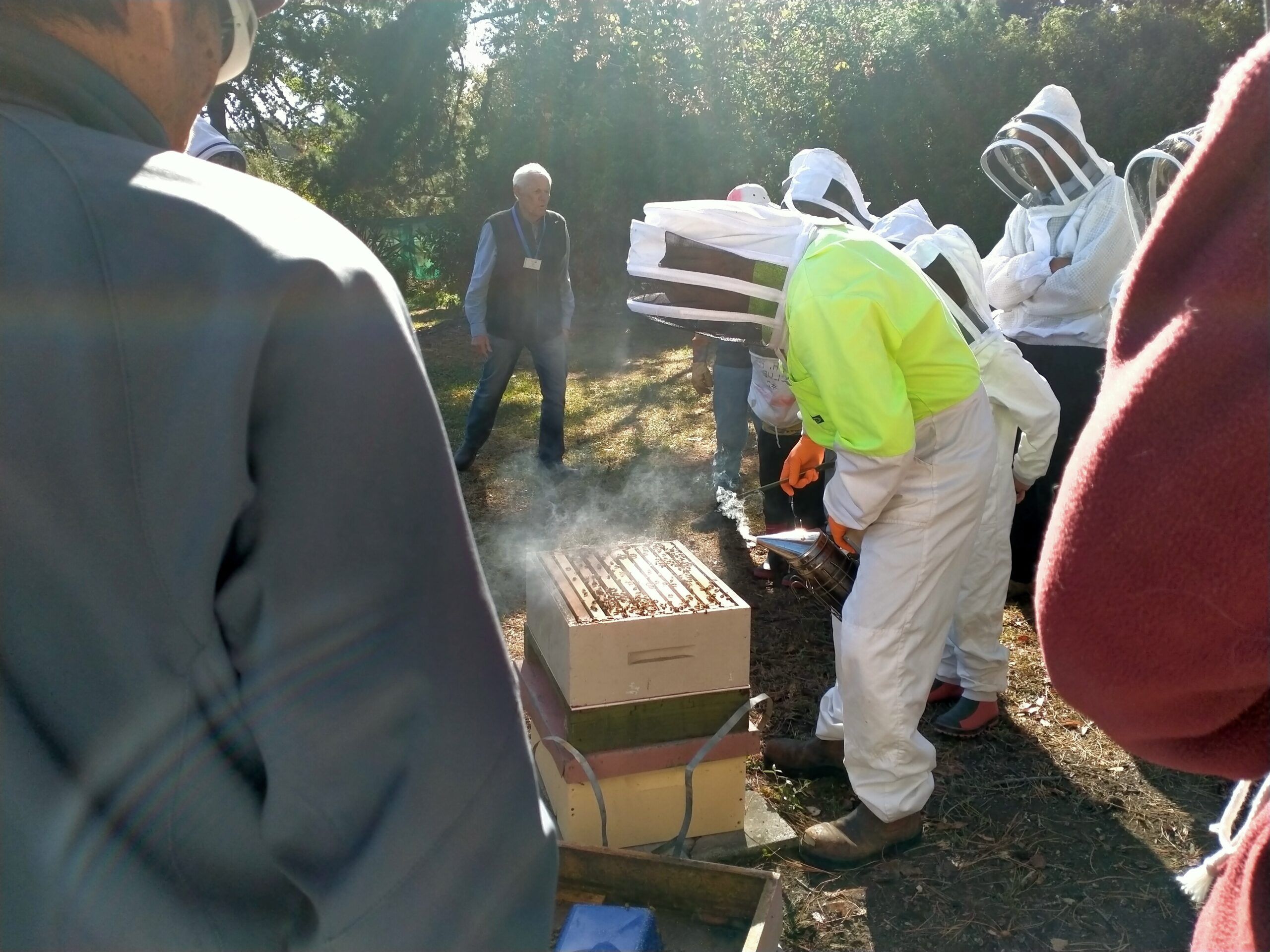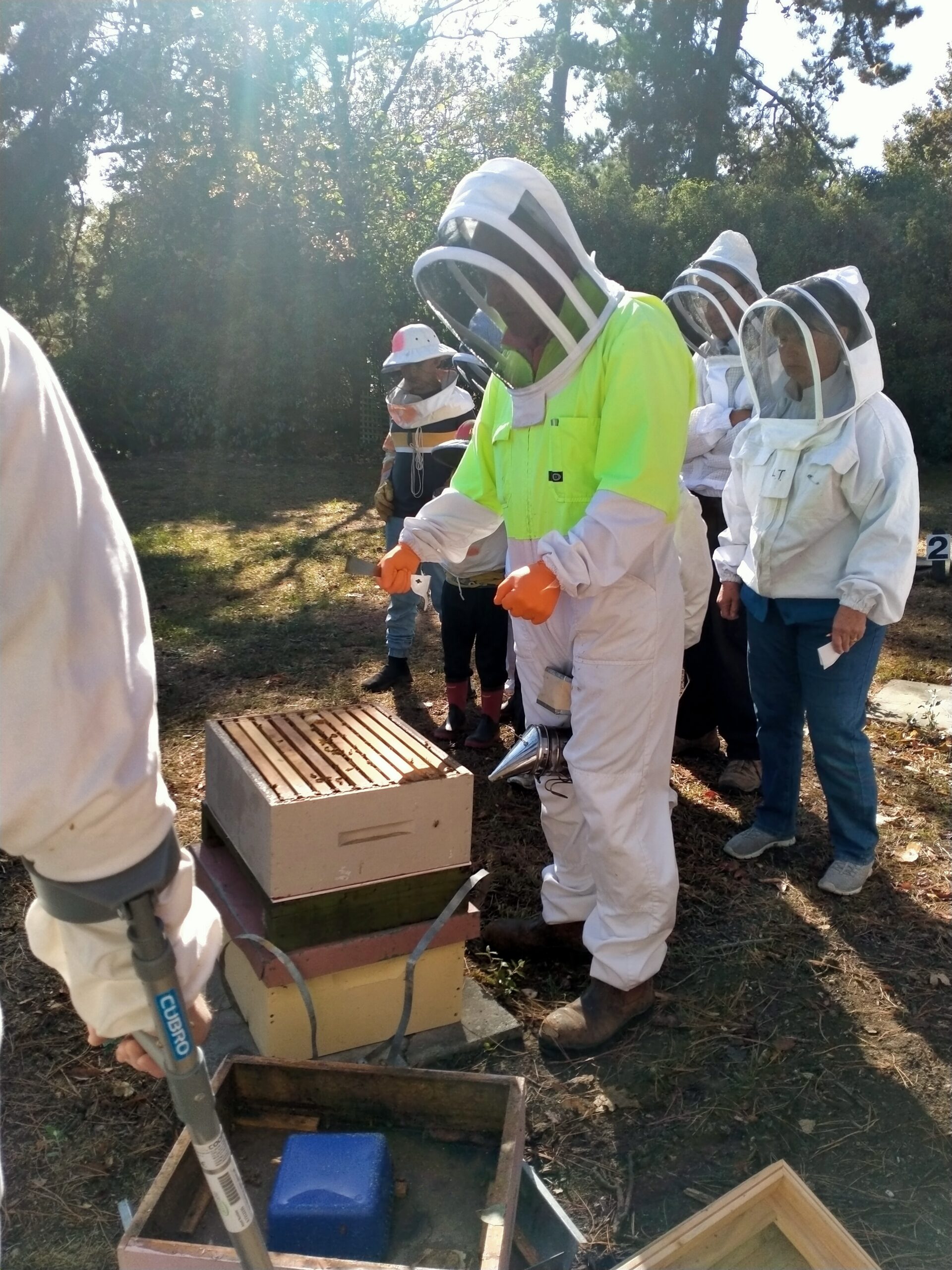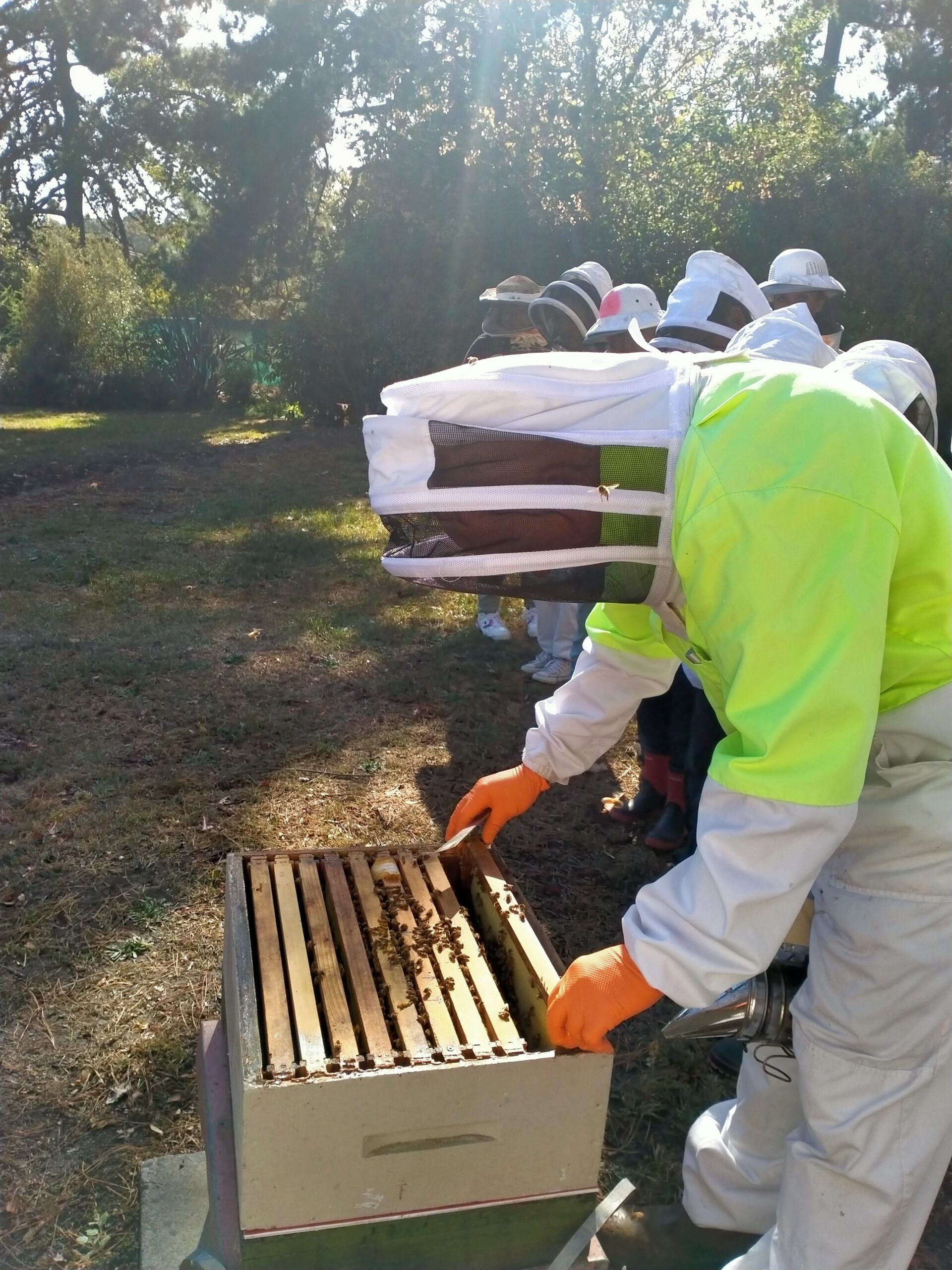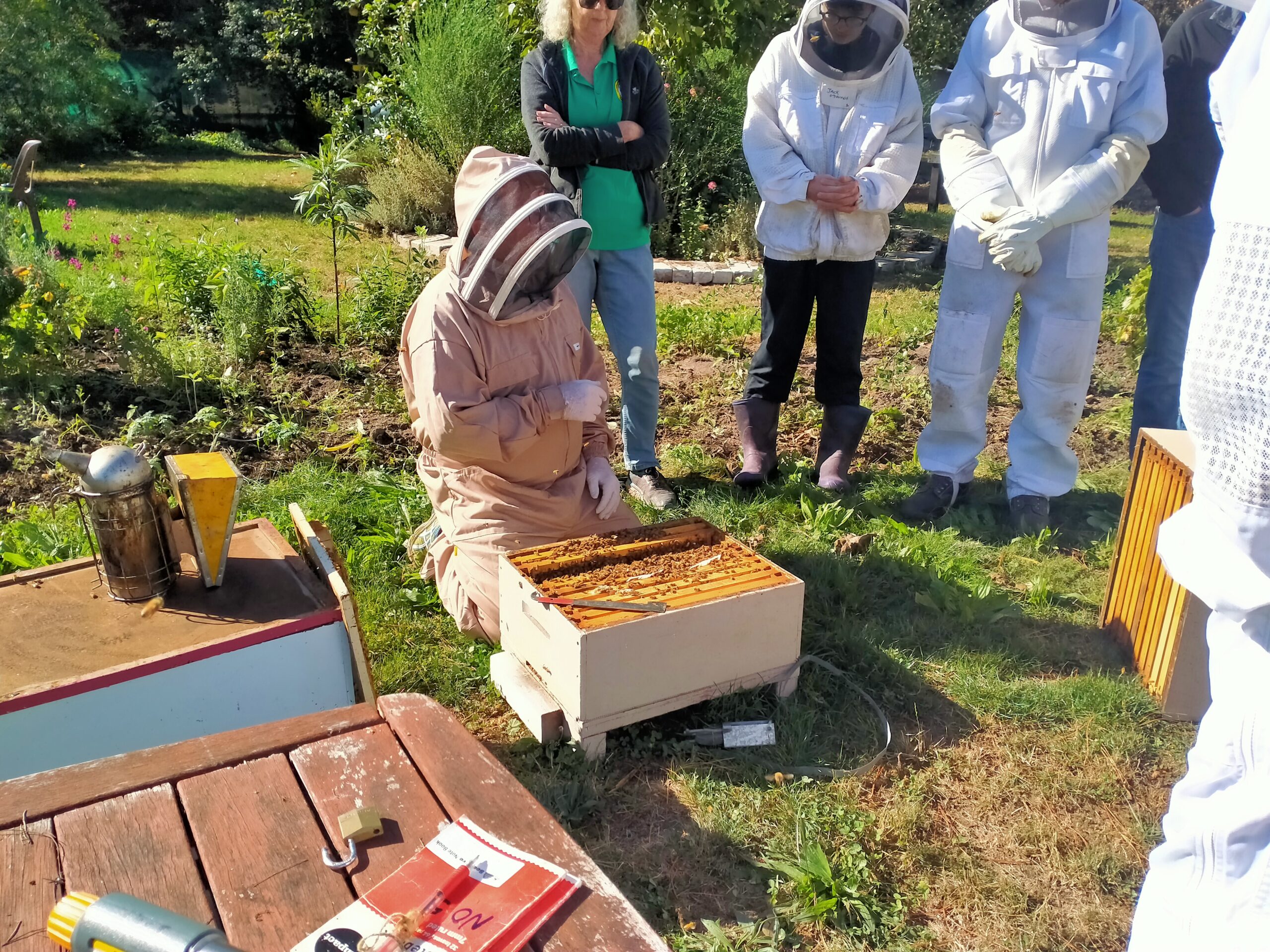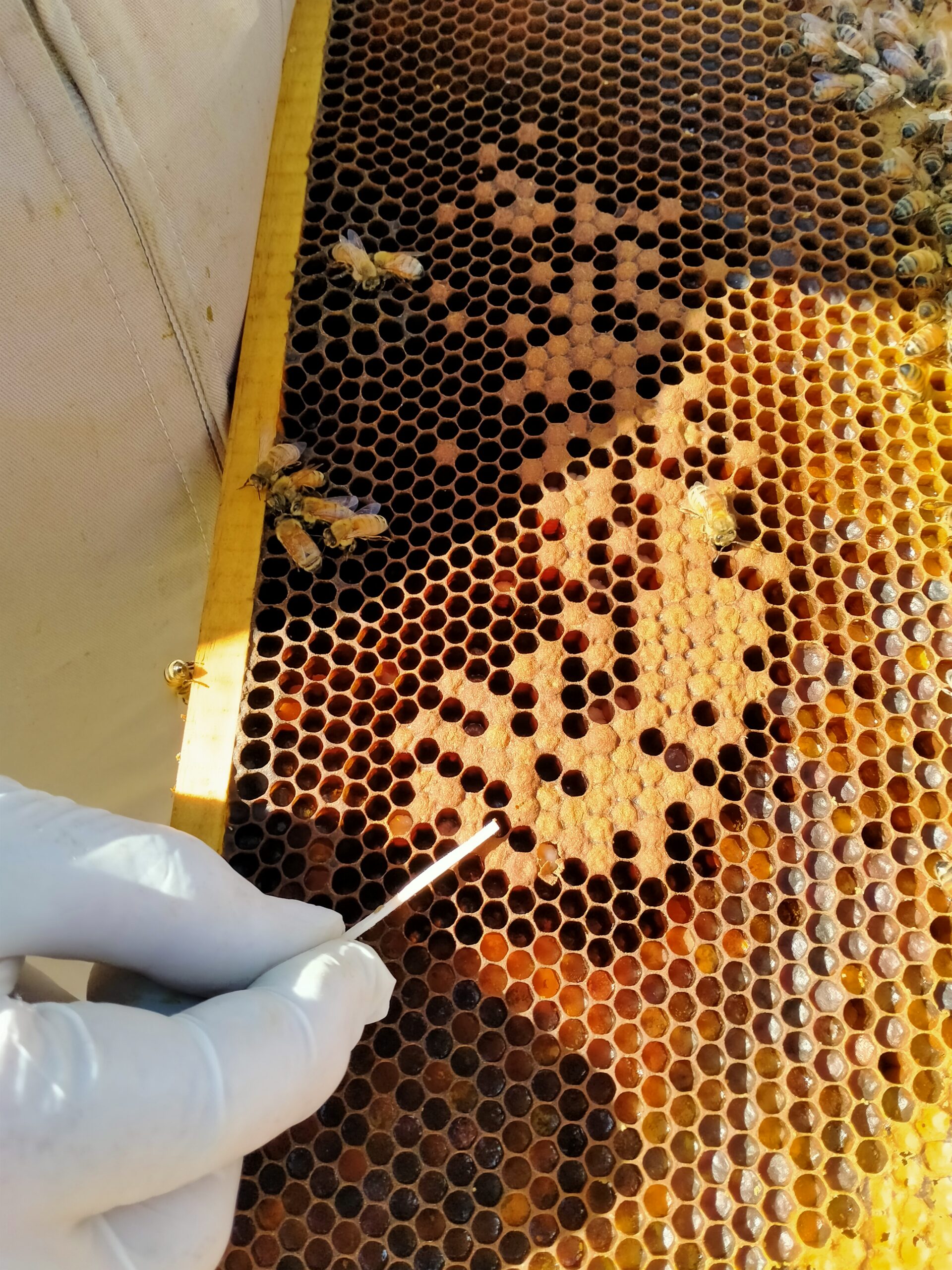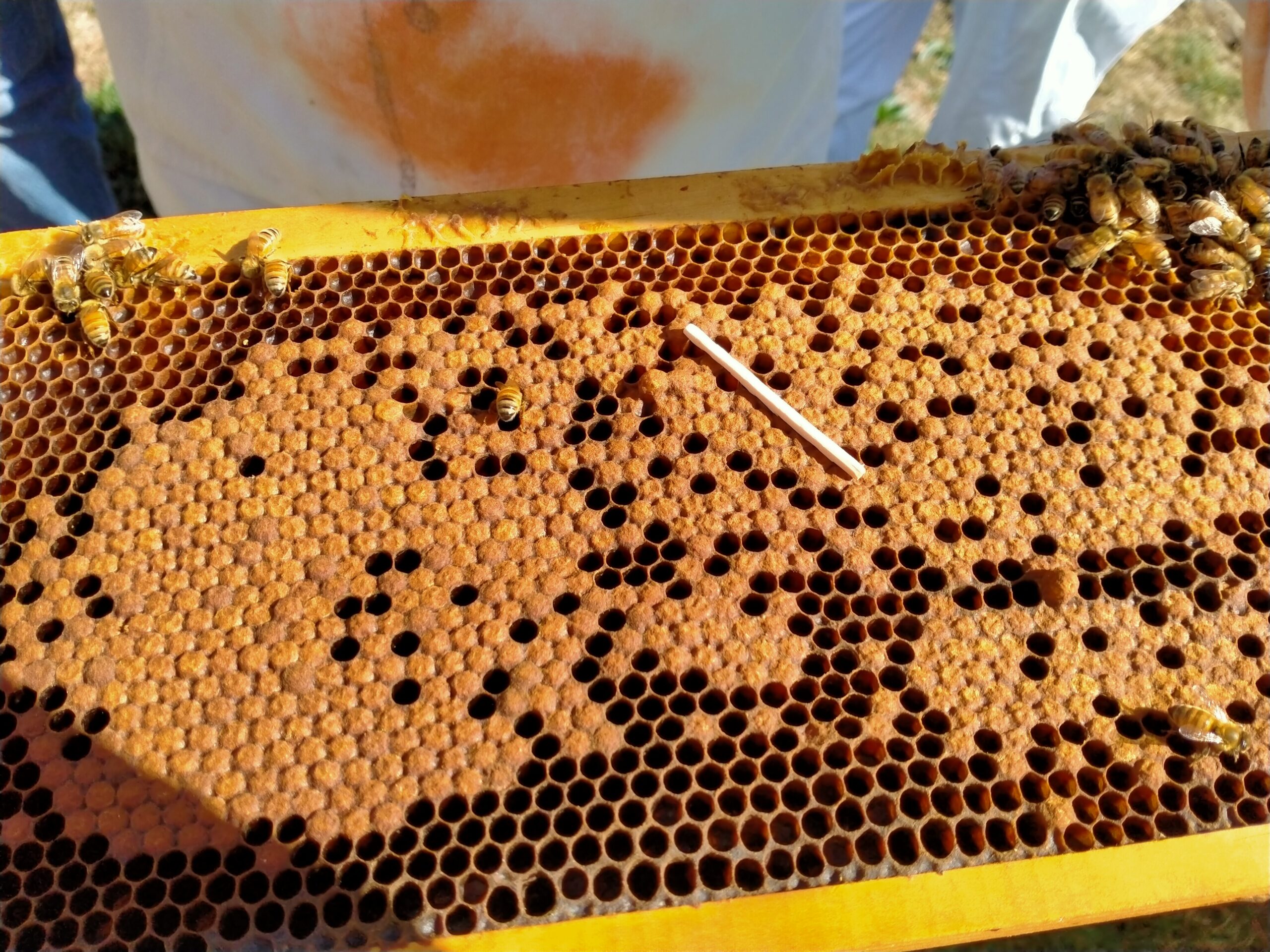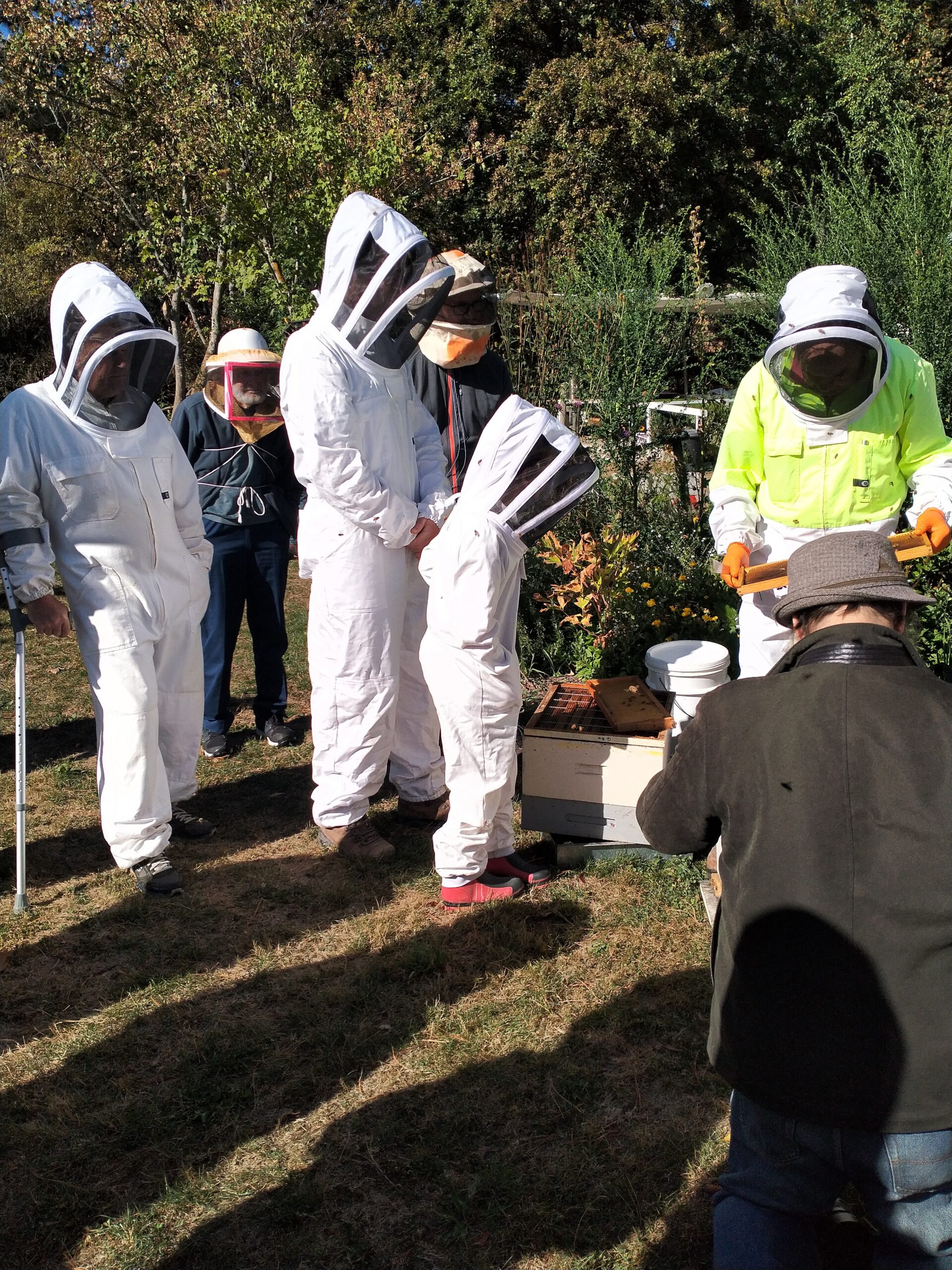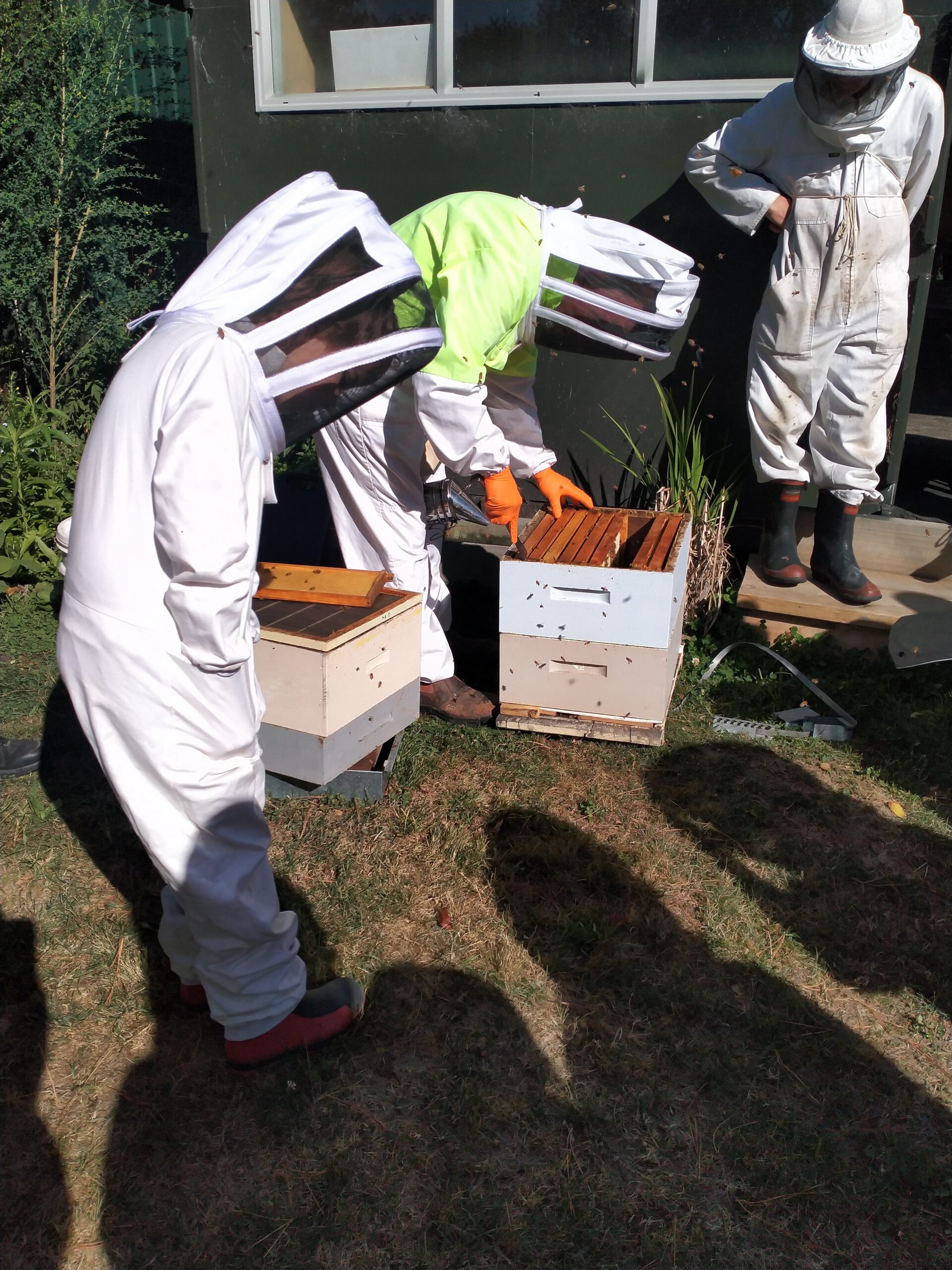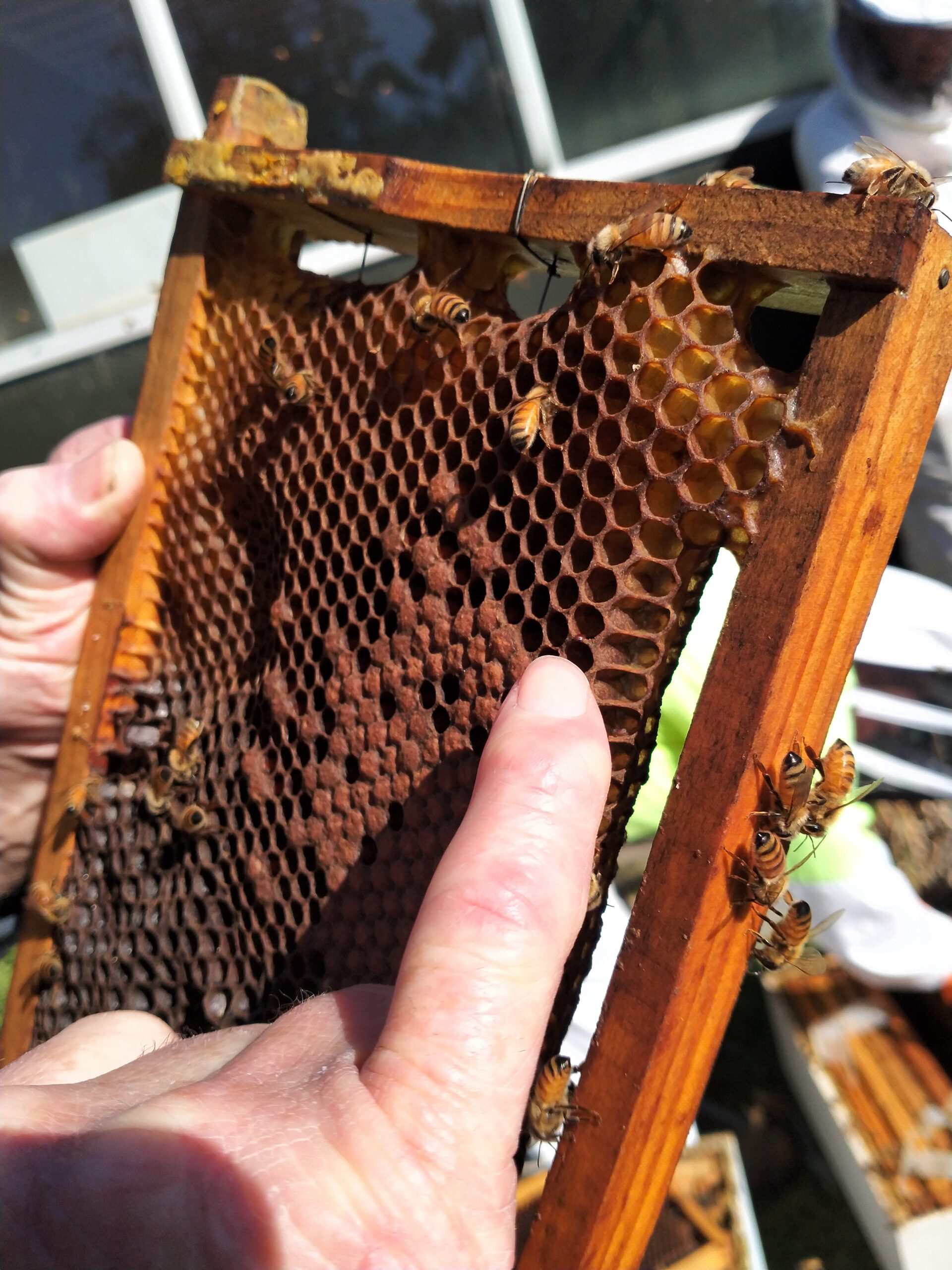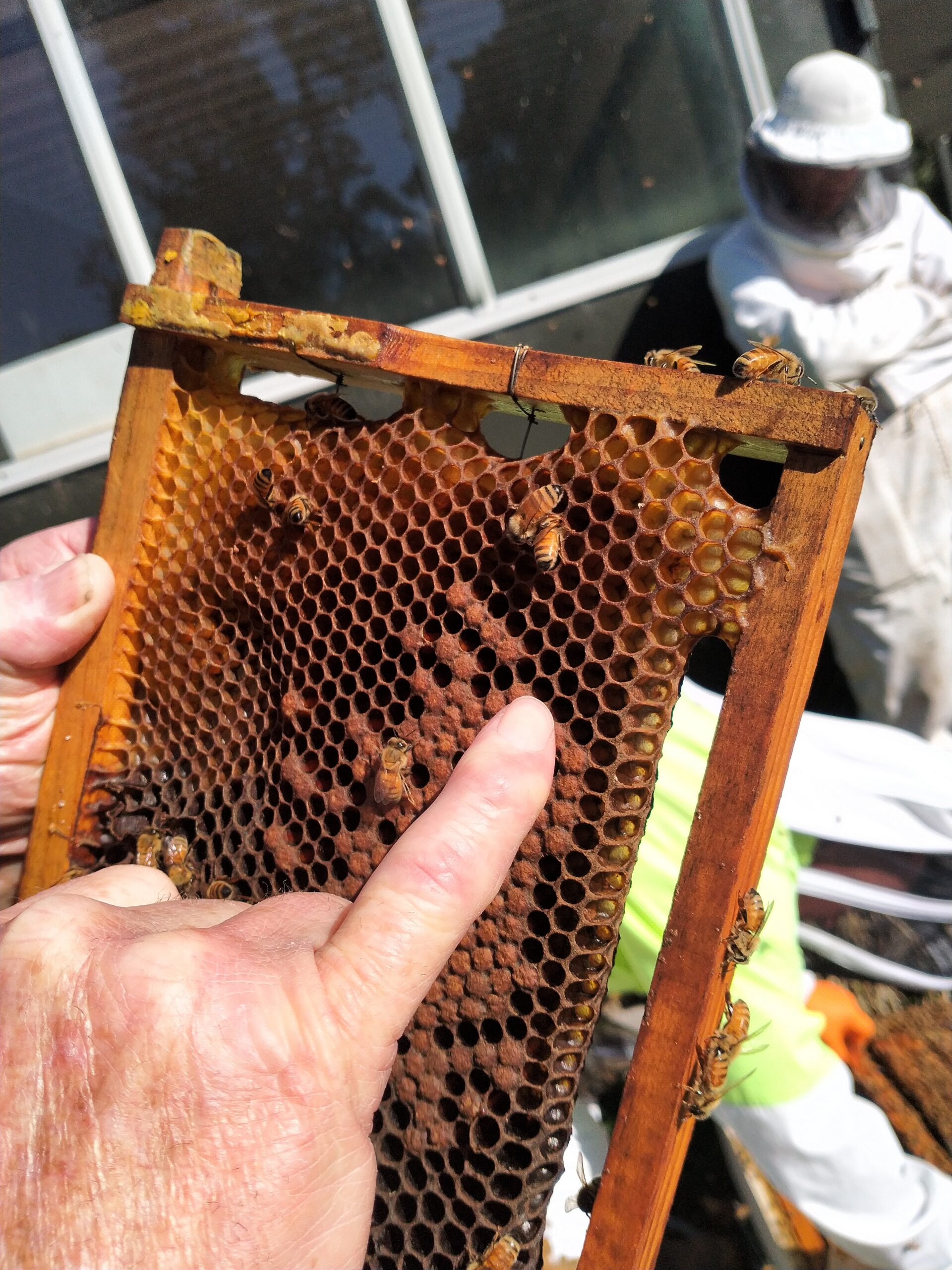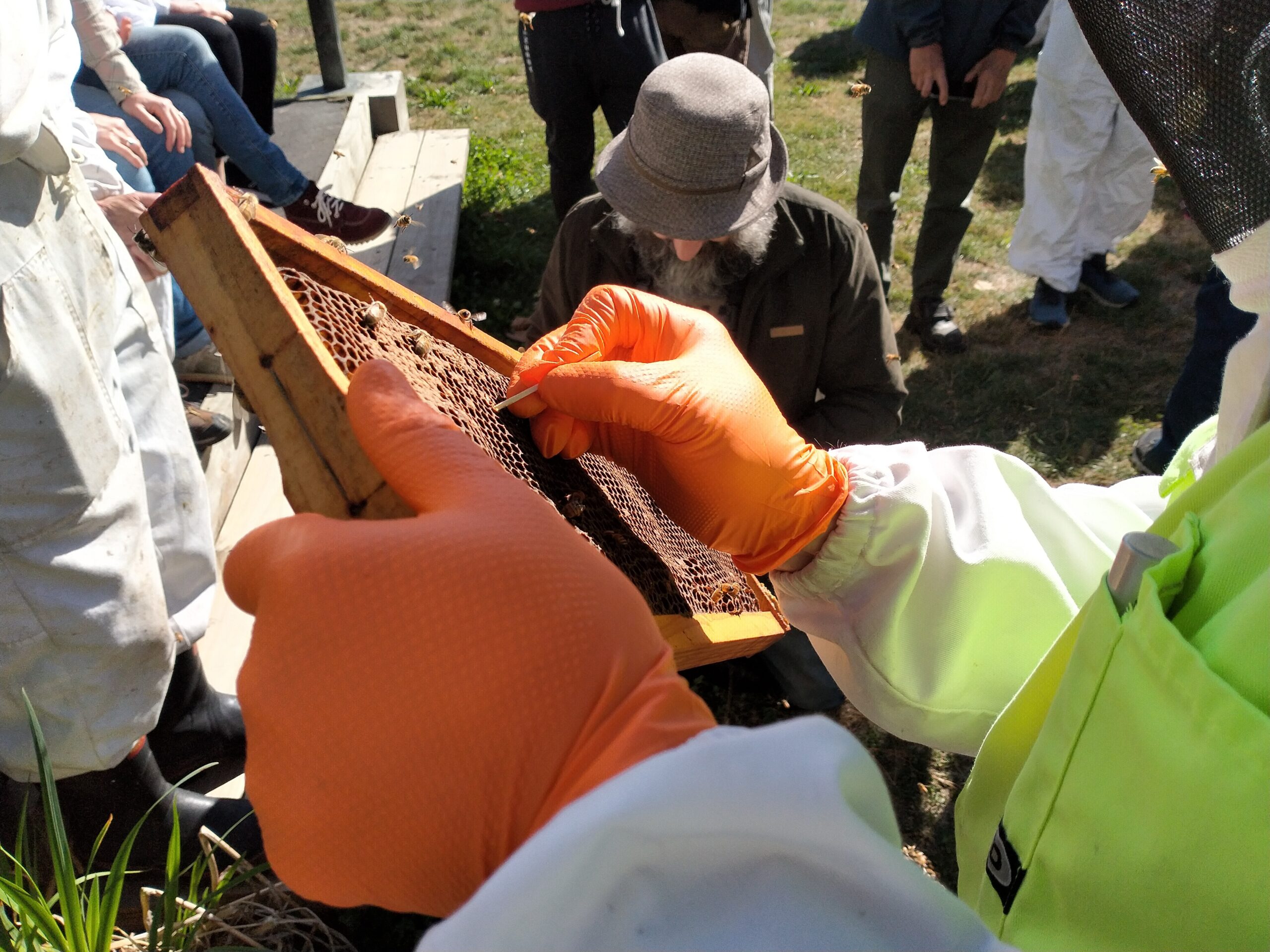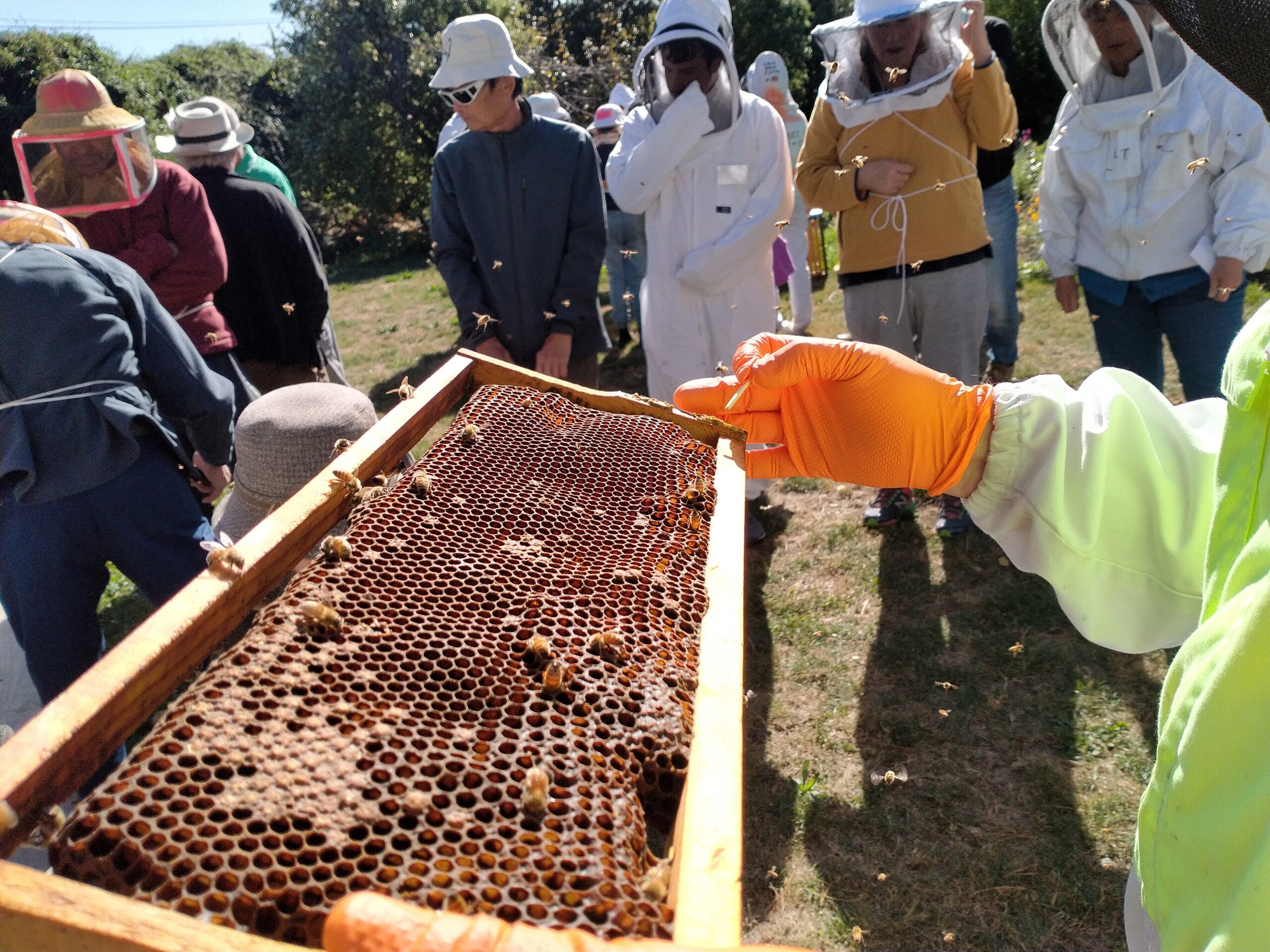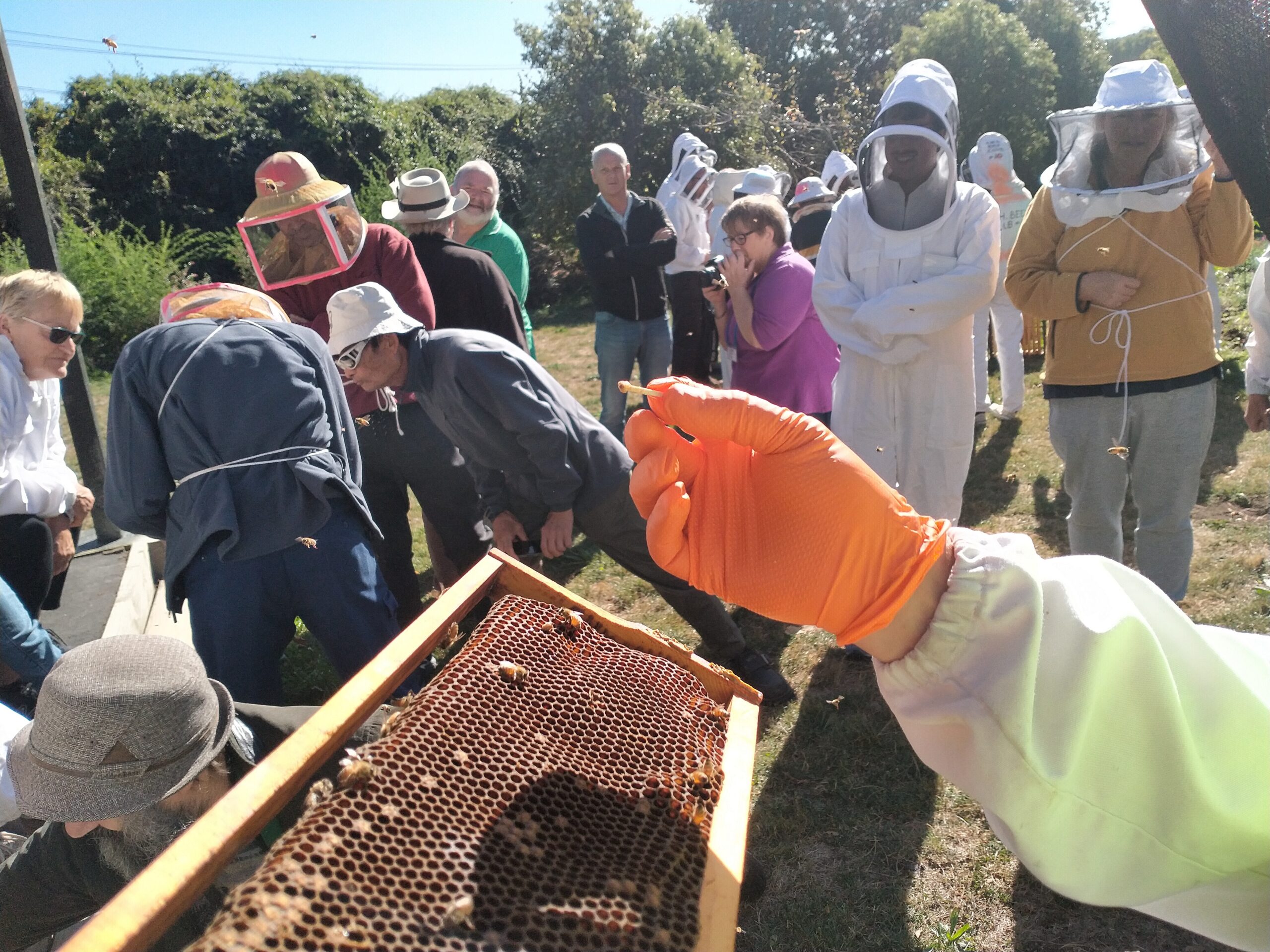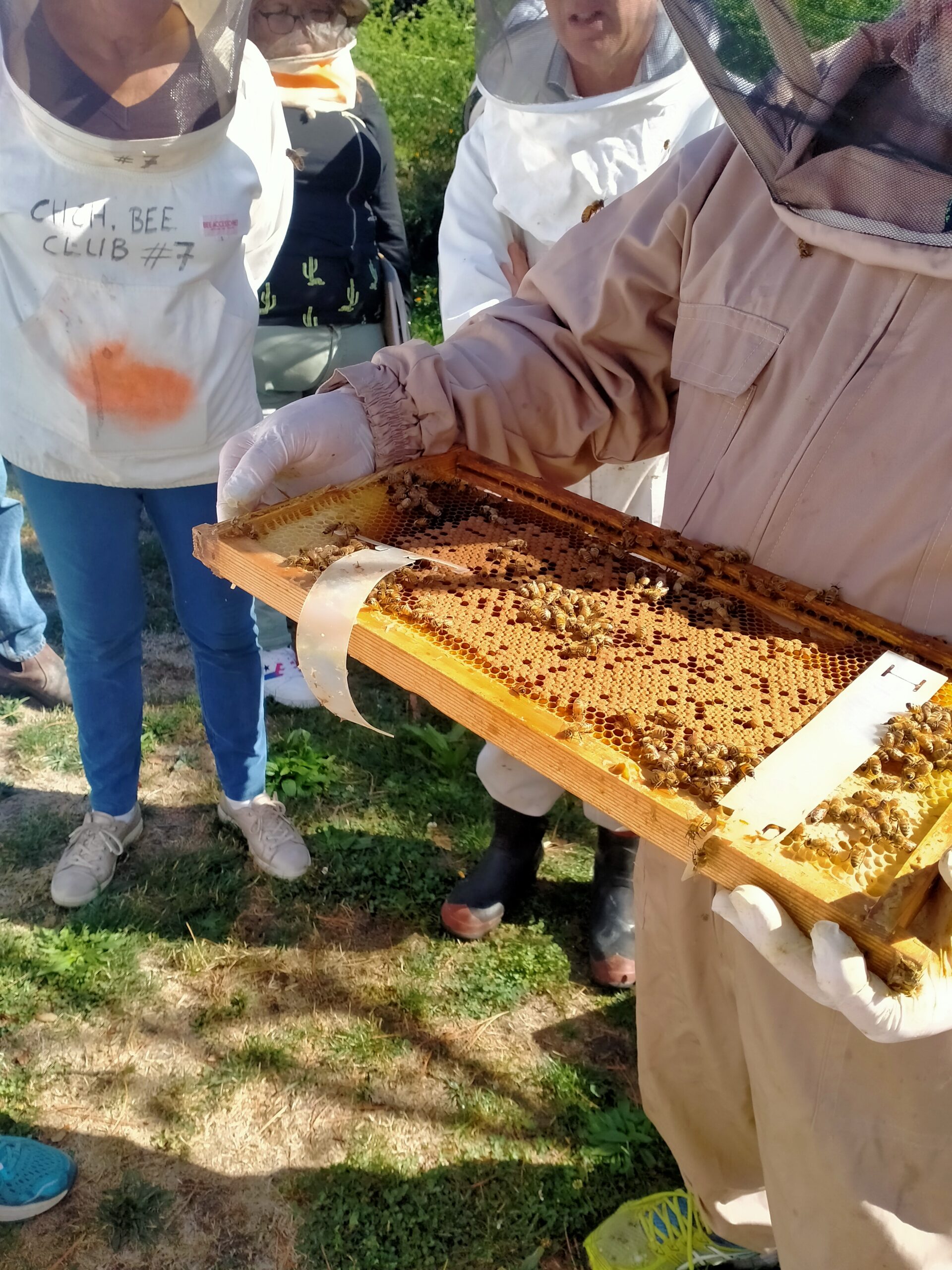-
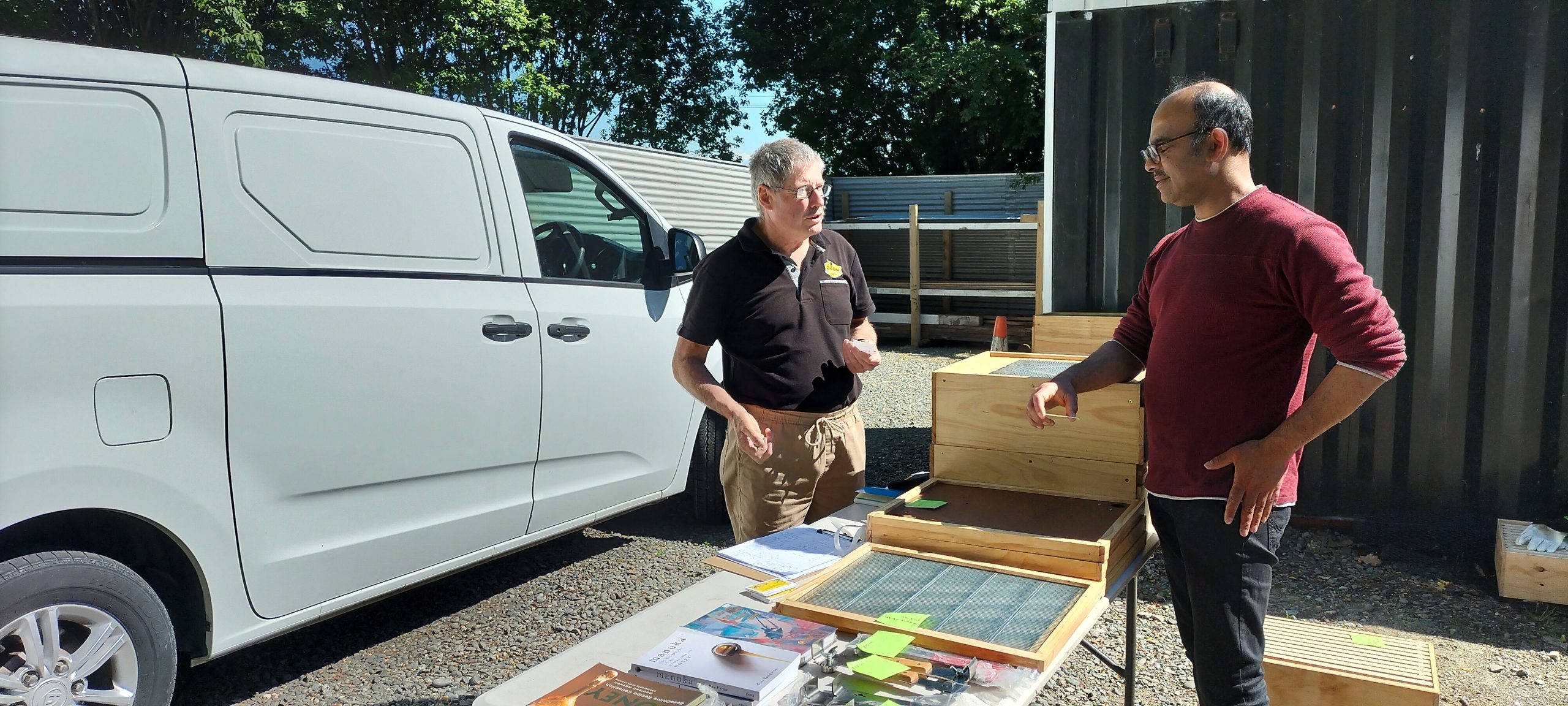 Beeline sales to members
Beeline sales to members -
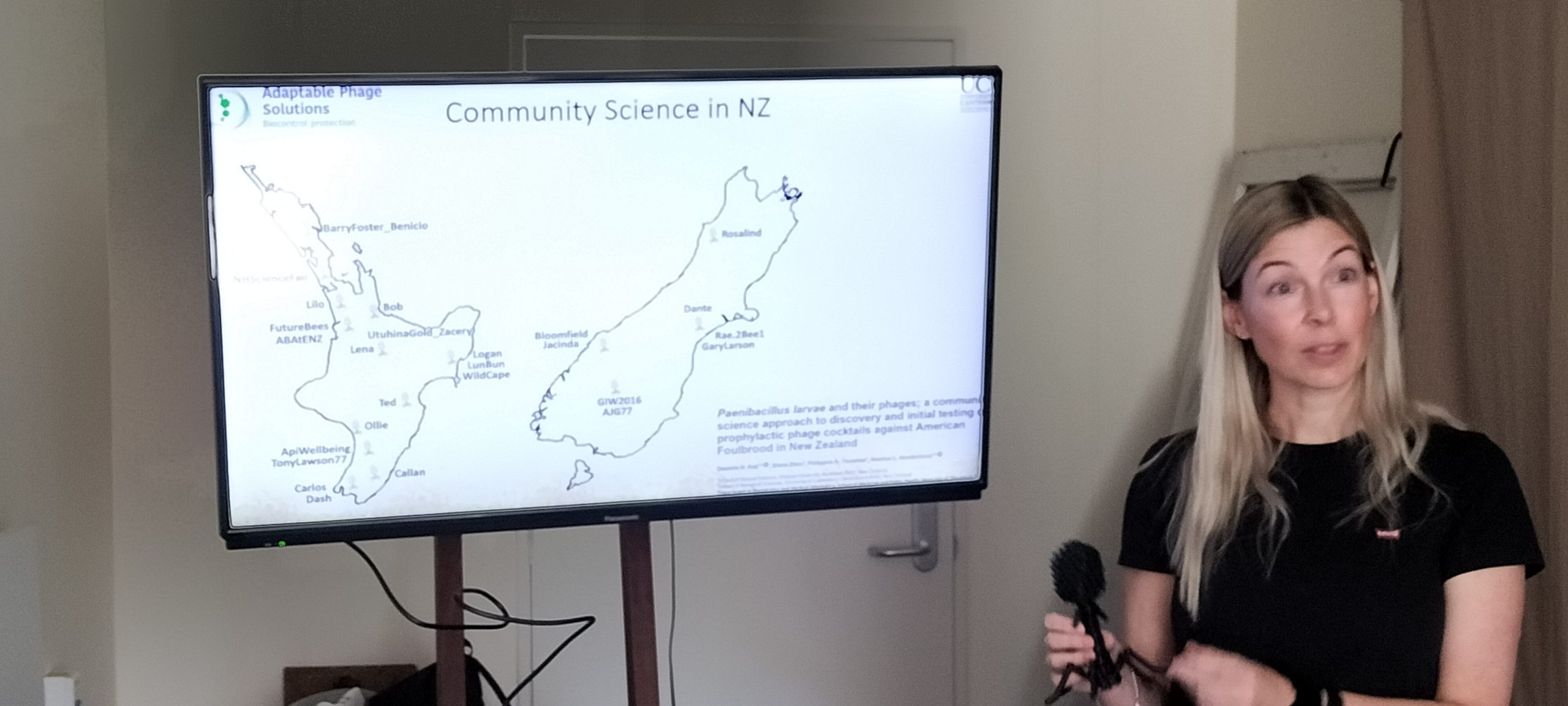 Talk by Danielle on the results of their resurch so far
Talk by Danielle on the results of their resurch so far -
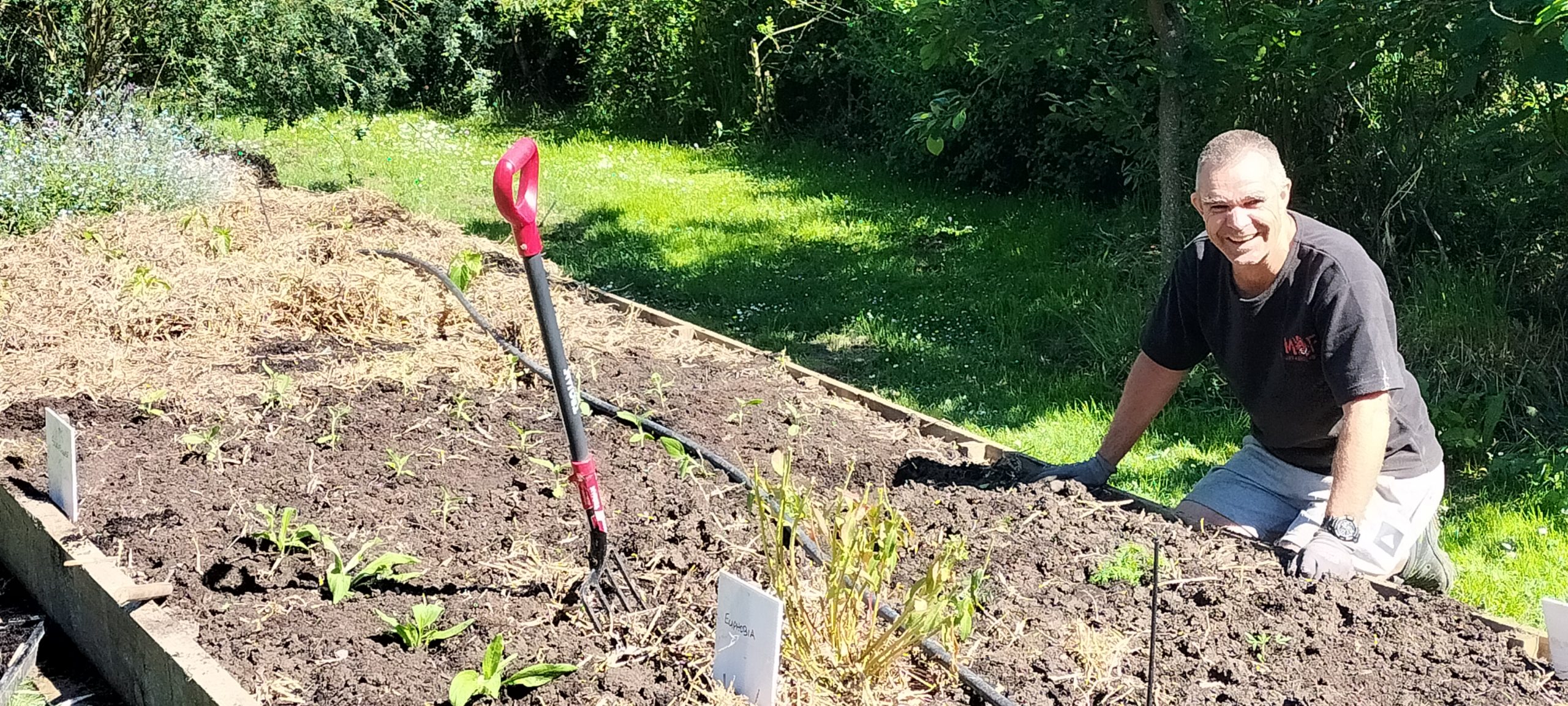 Murray waiting for your help in the garden
Murray waiting for your help in the garden -
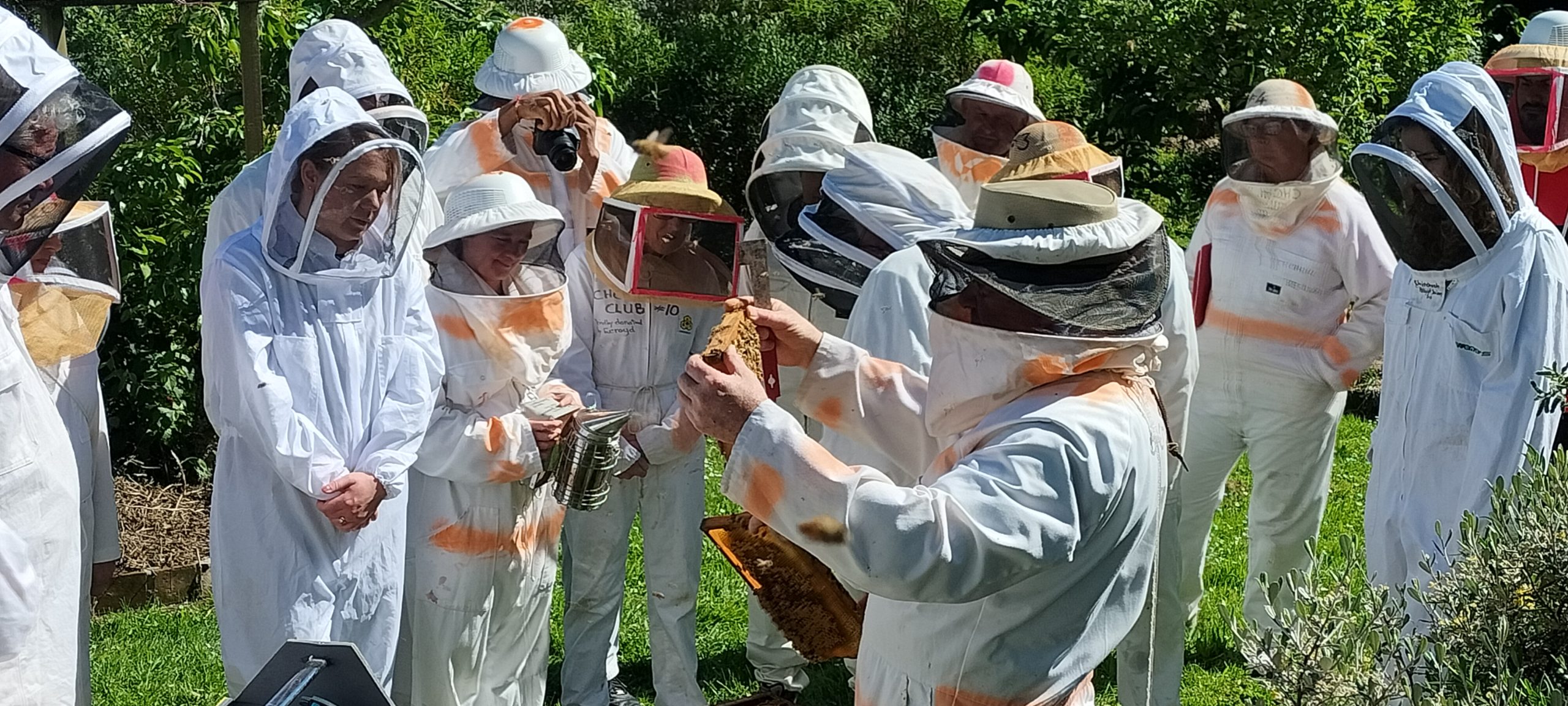 Looking for the Queen
Looking for the Queen -
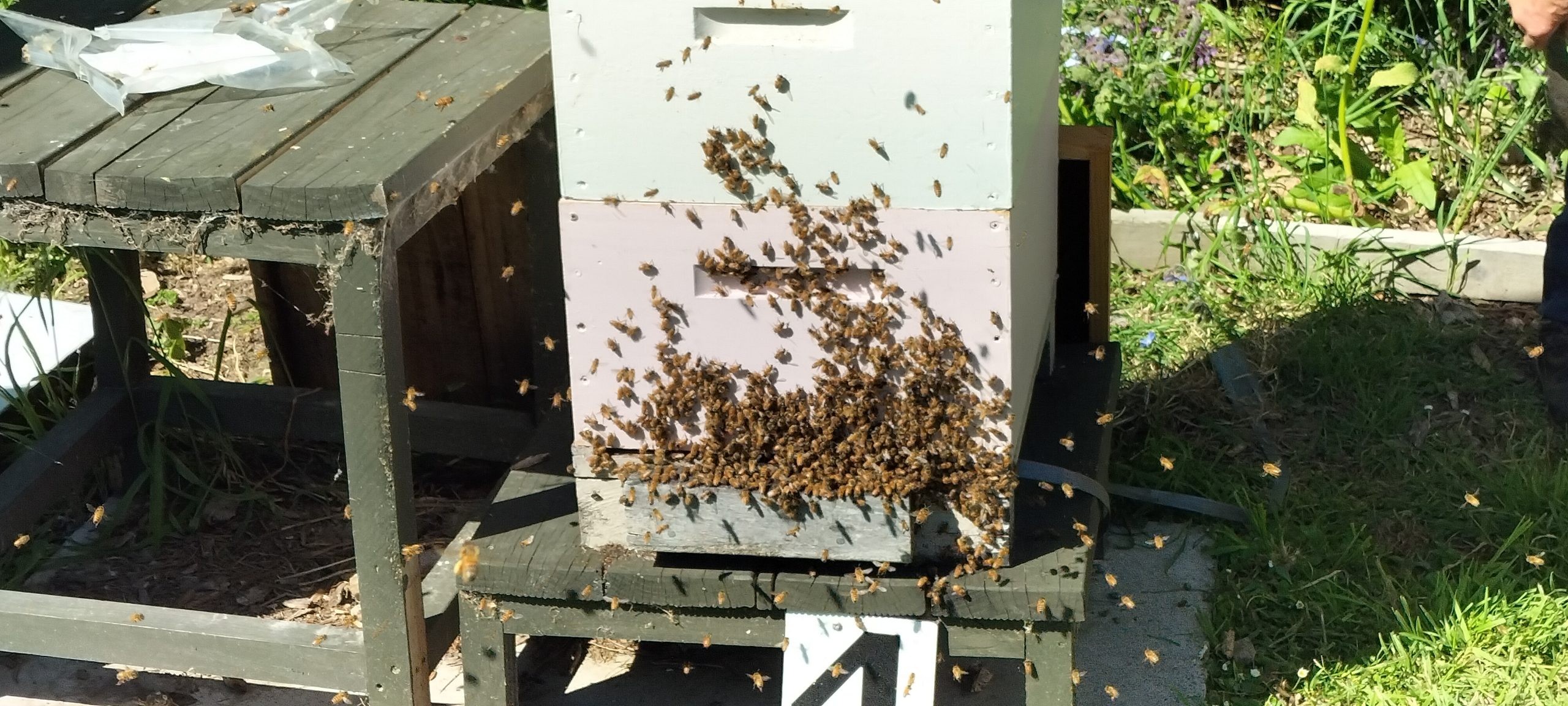 Tried to split the hive gave up with angry bees
Tried to split the hive gave up with angry bees
Tag: field-day
Why do hives die? First Field Day – Aug 5th 2023
Jeff Robinson
Our challenge on our first Field day was to learn how to prevent hive losses and to help us understand why we have hive losses -particularly over winter.
Jeff Robinson and Lindsay Moir went through both hives at the Club site that we lost this winter to check what were the causes and how could we avoid this happening in the future.
These are my notes from their talk, they might help you to diagnose what went wrong if you too have experienced the loss of a hive over winter.
Key Points to Check:
- Position- is the position of the hive good for capturing the best of the morning and winter sun
- Wet conditions
- Is there vegetation close up against the hive?
- Is the hive tilted forward for drainage?
- Do you have a mesh base?
- Is the base dry?
Observe the front of the hive.
If there are dead bees- check for deformed wings or mites.
Do you have a Top Feeder on board for winter?
First check your hive diary/notebook -check all the details you recorded about the hive the last time you visited.
Remember :
8 week cycle-for developing a strong box of bees at the beginning of the season.
If the Q laying now, help by offering good feed and sugar syrup to build up numbers.
Remember it takes 8 weeks to develop a worker bee- 3 weeks to hatch, 4 weeks growing up. 8th week a field bee collecting nectar and pollen.
In the Spring the bees wake up with the help of running the honey from the old frames onto the brood/ Queen workers.
Sugar syrup for Spring -you use the spring/ summer concentration of 2 parts water to 1 part sugar.
Winter feed is thicker. I just make it up – i jug full of boiling water stirred int 8 cups of sugar into ice cream containers- 1.5 ml holes in the top and use upturned in my top feeder boxes.
Queen breeders get ready now so they start raising queens in September.
Secret in the breeding is the feeding.
To allow for hive growth I move my boxes of bees down from their winter warm position at the top box to the bottom to give them room. To easily and quickly check hives in cooler weather when you need to avoid chilling the brood I move boxes aside to check bottom box if cold. Put in an insert feeder with green bracken or ladders – bird netting bubble wrap.
Don’t use fermented honey syrup because you will kill the bees.
Heave your boxes to check for weight of bees in the hive. (A quick check method.)
On observing the frames of the first dead hive, we saw:
- Bees heads in bums up – hungry bees
- Damp conditions, ventilation problems, lack of warmth
- Mouldy frames – bees need to be free of poor frames and need good ventilation,
How to help reduce this problem in your hive:
Feed
You can use another hive mat with a hole in the centre and feeder directly above
You can add polystyrene to fill the space or newspaper to absorb the moisture
You can add extra feed -pollen substitute or treatment strips, ‘Hive Alive’
Oxalic acid strips – be careful make sure mite count is low less than 35% infestation
Or use alternate treatments, Bayvarol or Apistan or Apivar- suggest use a hole punch and toothpick to put more securely into the hive.
Remember to put food near brood and your choice of varroa treatment
2-3 frames of bees need to be a box of bees and will need a box of honey to get through winter.
Moisture:
They can keep themselves warm but they struggle with moisture in the hive.
I use mesh boards as ventilated hives all year round.
I move my top bee box down to the bottom
The clue is when you see wax built up on the hive mat or them drawing out wax comb they are on the move.
On checking the next frame we saw dead brood and mould so it was important to check for AFB. Using the measure- if you can see eggs you can assess whether your hive has AFB or not.
If you uncap a cell and you are checking if you see a ‘cast’ a bee past the egg and grub stage you haven’t got AFB because the bacteria affects the larvae-pre-pupa stage and the bees never grow past this stage.
We also saw dead bees with protruding ‘tongue’
‘Protruding tongue in fully formed bees CAN be a sign of poisoning. Other issues can also produce extended tongue ie death due to varroa.
AFB scale with ‘tongue’ is thought to be brain parts this is comparatively rare if seen it is definitely AFB.’ -Lindsay Moir AP2 inspector
This first hive had many problems but bee heads and chewed comb indicated hive was attacked by wasps and due to diminishing numbers brood got chilled. Food stores were low and dampness set in.
The second dead hive had two mice in it.
Mice
Reduce entrance, remove chewed, destroyed and contaminated frames.
A final reminder for us all is that hives need to be in the morning sun – this is the best position for a hive. I’m reminded of being told on my beginners course that my hive deserved the same sunny spot on your section that you would put your house.
If you have found this helpful please send some feedback to help me judge if this would be good as a regular follow up to our Field Days.
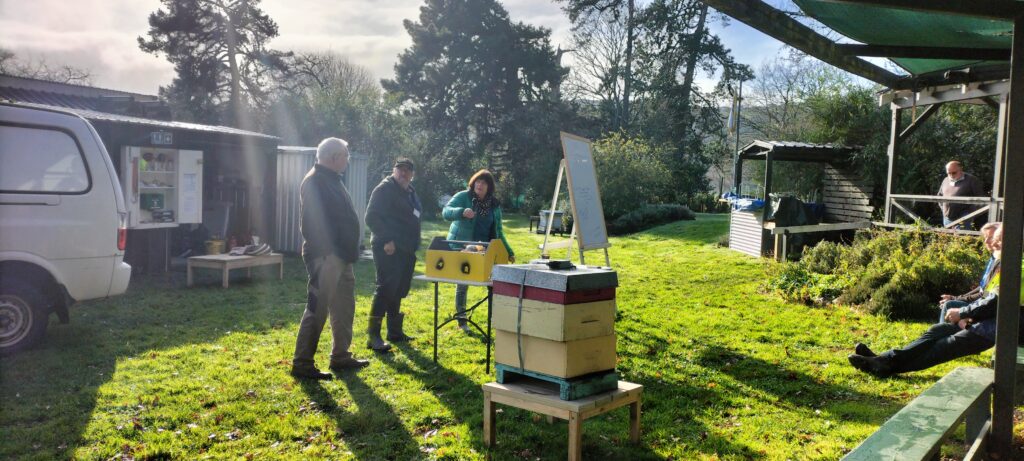
Last Field Day this season
Saturday 6.5.23. a 9.30am start. It’s time to plant the last of the plants to bed them in over winter. Enjoy and celebrate our successes with the Honey Show.
We have to check the hives for disease, remove varroa strips if necessary, clean up frames and feed the bees. Going into the hives is weather dependent but we will be meeting.
Bring your honey, wax and mead for the honey show on Saturday. Check the website for details or contact a committee member if you have any queries. But come and have a go! Beginners very welcome.
There’ll be a BBQ for lunch. We also love it when you can bring along a treat to share.
Nomination forms for standing on the and committee will be there and we’ll be encouraging you to help your club and share your knowledge and expertise by joining.
There are also conferences coming up soon and of course our 60th anniversary dinner. Please do come along to our big night!
We’ll be starting back on the first Sat in Aug. There are 2 beginners days planned to start the year; part 1 on the 22.7.23 part 2. 9.9.23(to be confirmed).
The AGM will be held on the 19th of Aug check the website for more details.
During June and July we leave the grounds to rest and it’s time for us to put our feet up after a busy and satisfying beekeeping year. We’re looking forward to see you all there Saturday.
La dolce vita,
Jo Winter
Field Day March 4th 2023 ‘Gadget Day’
Inventive, genius at it’s best! We had so much fun. Here’s a taster of some of the brilliant ideas that our creative members came up with and demonstrated at our ‘Gadget Day’
I will also share the three winners. Peter Heeringa came first, Andy second with the repurposed pet water bowl and Lee came third with the gauze bag to protect others from bees when they are close by, either gardening or allergic visitors.
- Jeff Robinson
- propolis collector
- Gordon Nairn
- top feeder- 4x 2 litres
- wasp guard
- Bronny Kirkwood
- easy wedge tool
- Kevin Gates
- lifting tool
- Andy McGill
- protection for nucs etc while transporting in the car.
- Repurposed pet water bowl for bees
- Peter Heeringa
- small power tool run honey extractor
- Jeff Chandler
- toothpick and hole idea in your varroa strips
- Brian Pilley
- stacking base for collecting honey supers
- Murray Baxendale
- hive tool holder and hive porch roof
- Skippy Liddicoat
- swarm vacuum
- Lee Carmichael
This was a day when we could all learn something new. Even those of us who get a little lost when the talk turns to different types of vices’s – and some of us only get as far as thinking -GIN?
We are all planning our new inventions for the next ‘Gadget Day’ and looking forward to similar events.
Field Day 3rd September
I’d like to welcome all our members to the September Field Day, the second of our season. It will include a BBQ, gluten free sausages will be available. It would be great if you would bring along some other food to share as well.
The programme for the day is focusing on Varroa mite.
How do you detect evidence of an infestation in your hive before it’s too late?
There will be demonstrations and practical participation to help you learn the skills you need to stop varroa in its tracks.
- varroa checks by sugar shakes, alcohol wash, sticky boards (and how to make them) and how to spot varroa on your bees or evidence that your hive has been infested.
- treatment options will be discussed
- we will be opening all the hives – weather permitting
- we will also be checking for diseases
- checking all frames for the season ahead and replacing frames to give the bees a clean foundation to build on and allow space for food and brood
- we will have reminders of how to clean your tools and also how to light a smoker so it will stay working while you are in the hive.
It will be great to see old and new members down at the site on Saturday. Early birds (9.30) to help out onsite.
Field Day Cancellation
To All Members,
As president of our club, after consultation with some members, some emails received and given
the current state of affairs in regard to Covid, I have come to the conclusion that we must cancel the Field Day this coming Saturday.
Ara and the university are suffering an outbreak of Omnicom and Covid, as indeed are a number of people in gathering places both in Christchurch and other towns. Over 100,000 people to date have been recorded with this disease in NZ. Some members are definitely nervous.
As your President I have made the arbitrary call to protect our members: no matter how insignificant the risk is by wearing masks and social distancing.
I alone will be held responsible for this call. Even if you are vaccinated you can still pass this disease on, particularly to children etc.
If you have a bee problem, or wintering down query, call Hive Master Gordon Nairn 0275389568 or any member or myself.
Be Safe!
Paul O’Donnell
President.
Tomorrow’s Field Day
As promised I have waited till this afternoon to post the notice for tomorrow’s Field Day..
You will be well aware that the forecast is for rain starting at 7am approx. at 60% chance of precipitation working up to 80% by 12P.M
Gordon our hive master has offered the following to members:
“12th February is our Field Day and again the rain  ️
️ ️
️ ️
️
 is forecast.
is forecast.
But still work has to be done.
We have jars to be bagged up @ 50 per bag and they are 250ml for sale at the Club…$30.00 per bag.
We can talk about treatments for the hives how to use them.
No doubt some questions to ask.
Good news is 5th March next club Day hopefully a fine day.
Thanks Gordon,
Hive master for the Club.”
The grounds are quite soft so wear good boots. There are a lot of midges because of the wet conditions,
They can cause quite an itch so wear long pants and bring some dimp…..just in case! You will still need to show your pass as usual and wear a face covering
even if you are working in the container with people.
Beeline will not be attending but ring Brian on 0272456427 to place an order.
Also, subs are due and Kerry will be accepting them as time is nearly up!
WOULD COMMITTEE MEMBERS please txt/email me that you will or won’t be attending. Unfortunately I cannot attend but our V.P Jo Winter will be.
Regards All
Paul O’Donnell
President.
Last Field Day of the season 2021
Photos from field day 3rd April
Field Day 6th March
Beeline Supplies will be back – if you’re needing any gear check out their website and get ready to pre-order.
As a club raffle fundraiser, drawn on the day, Maggie James has generously donated a caged mated laying queen. Good temperament, good brood pattern.
Available to members – Bayvarol strips in packs of four strips (enough to treat a two story hive) at $10.00 per pack. Available at club field day on a first come first served basis, Cash only on the day.
Dinner on Thursday 13th of May at Ara’s restaurant Visions a three course meal for $45.00 per person see Dave Spice for more details.

